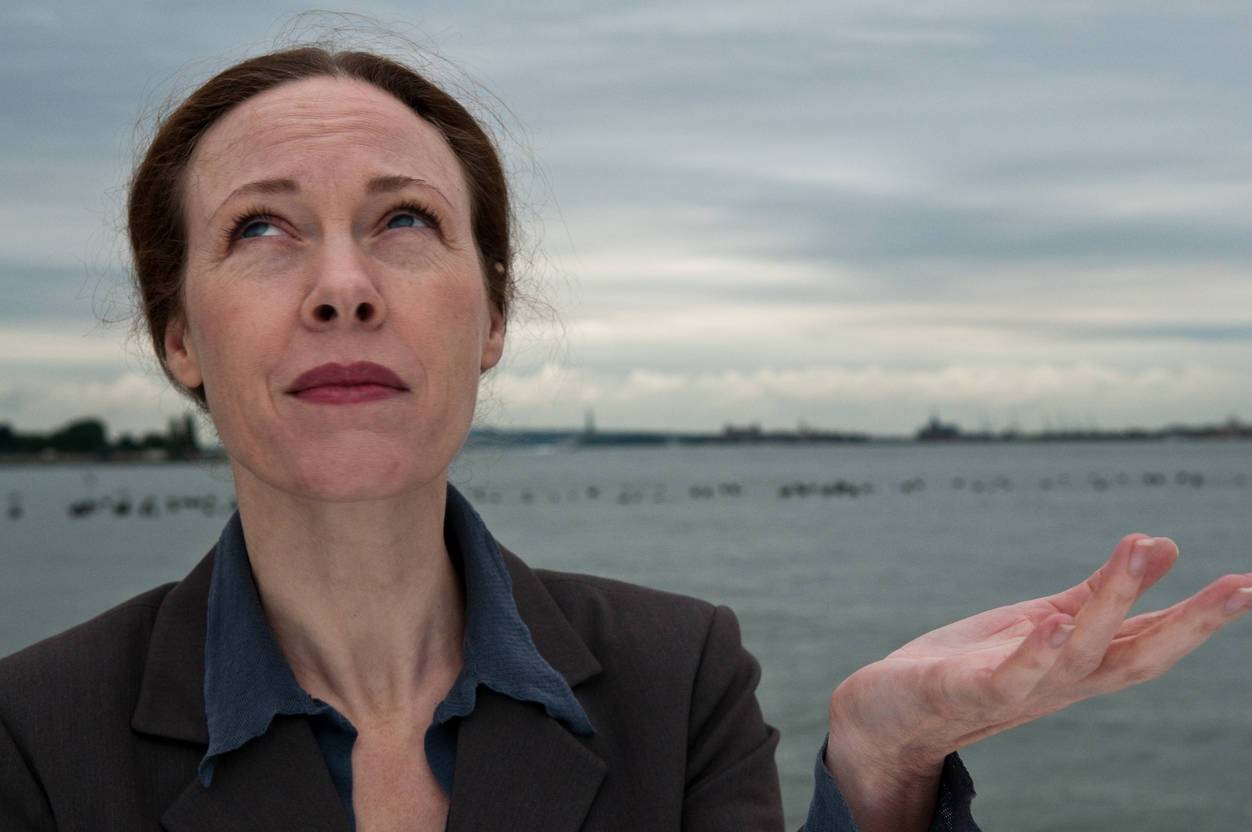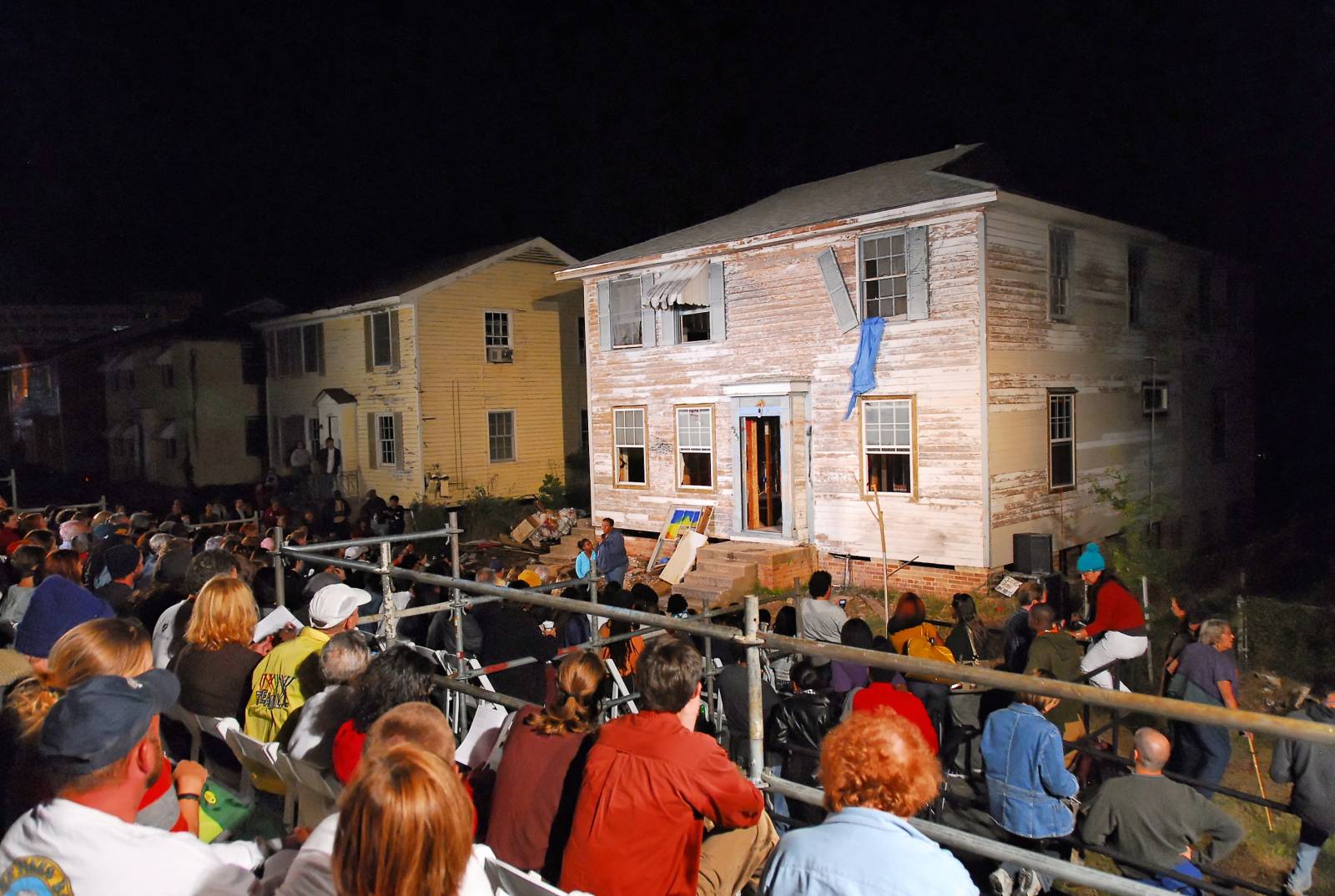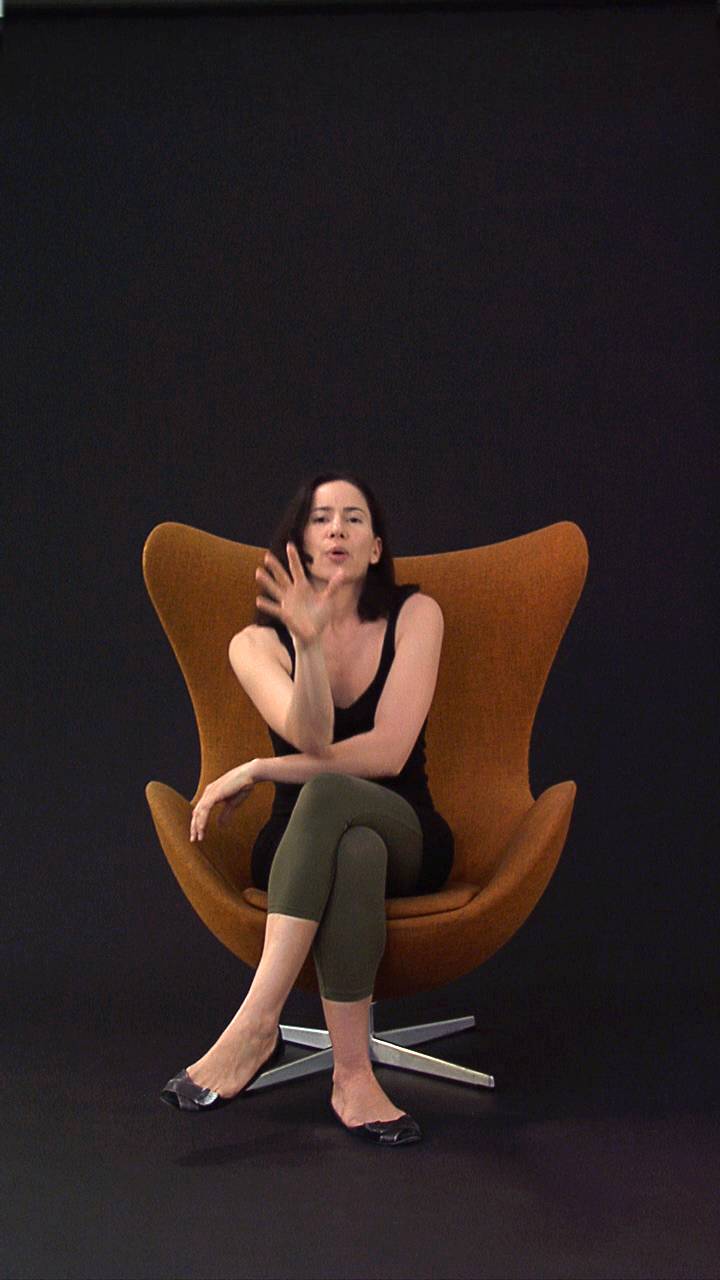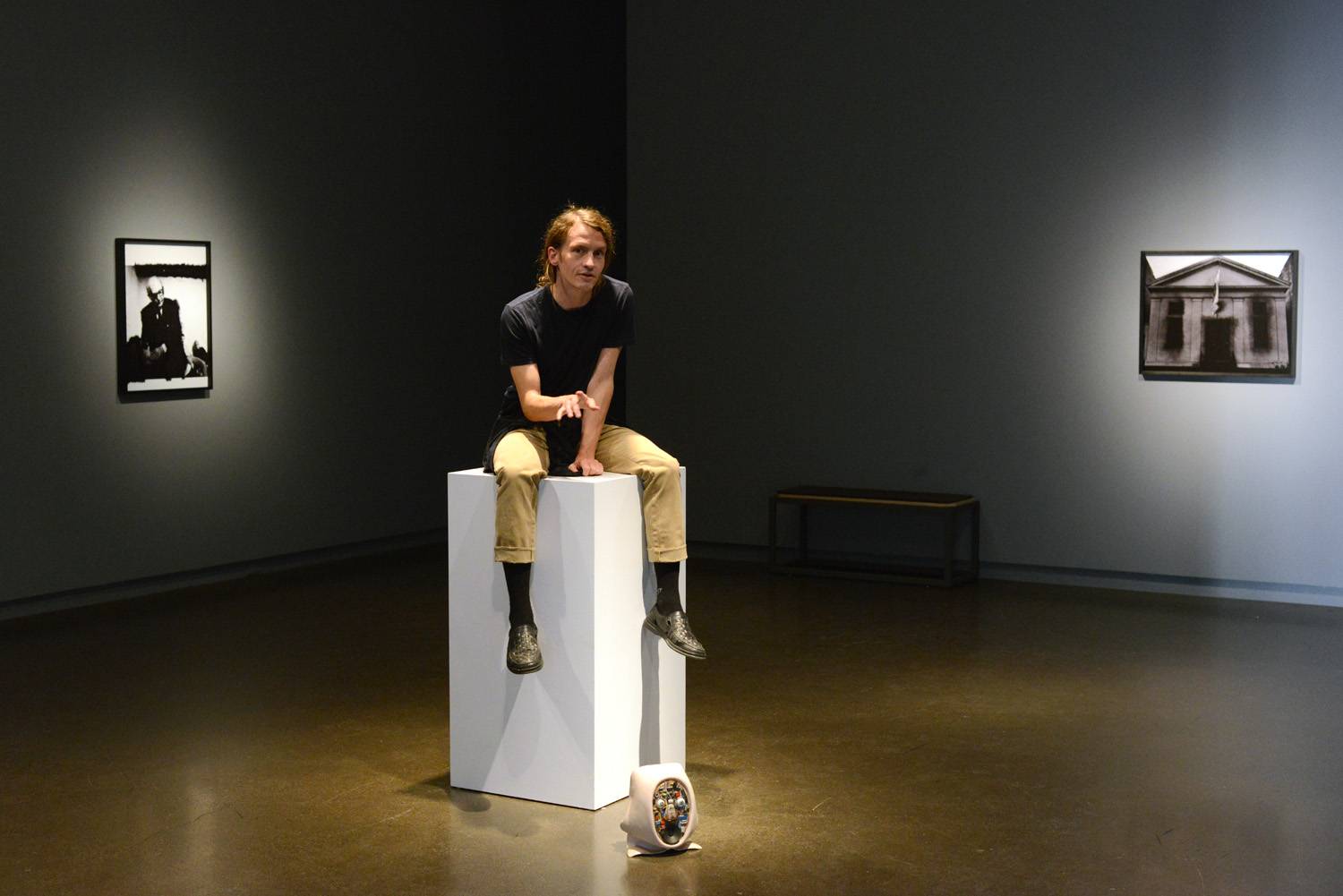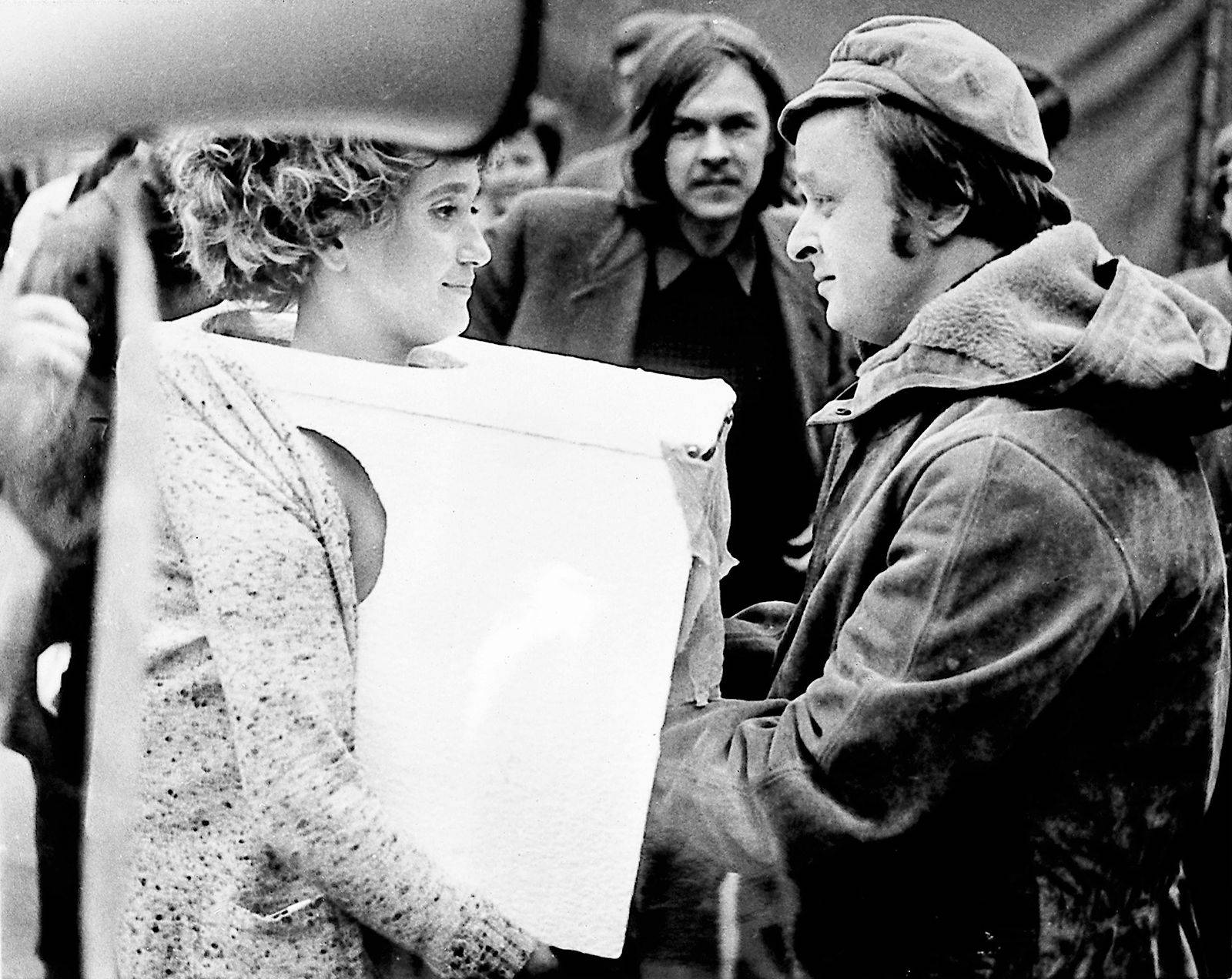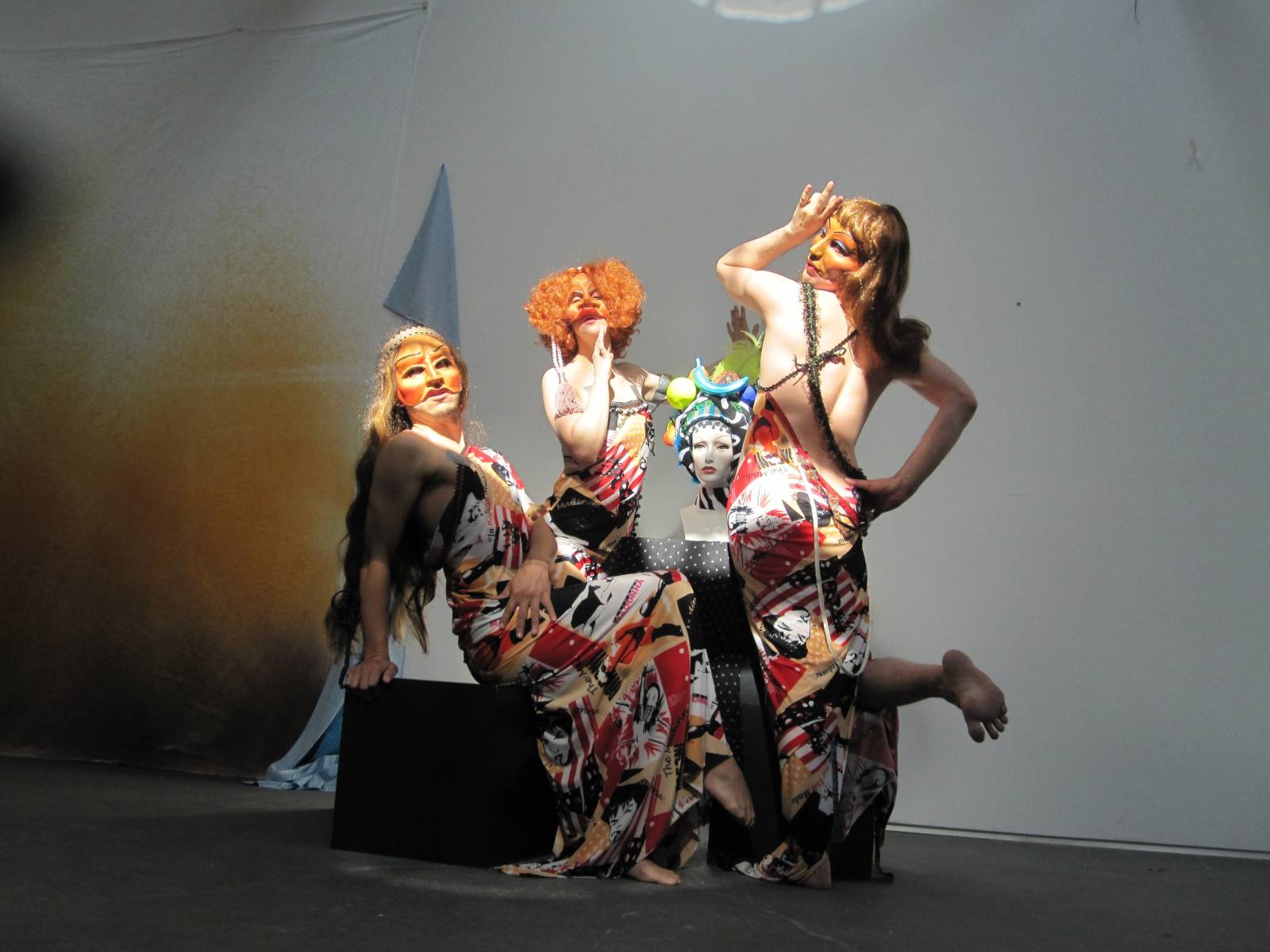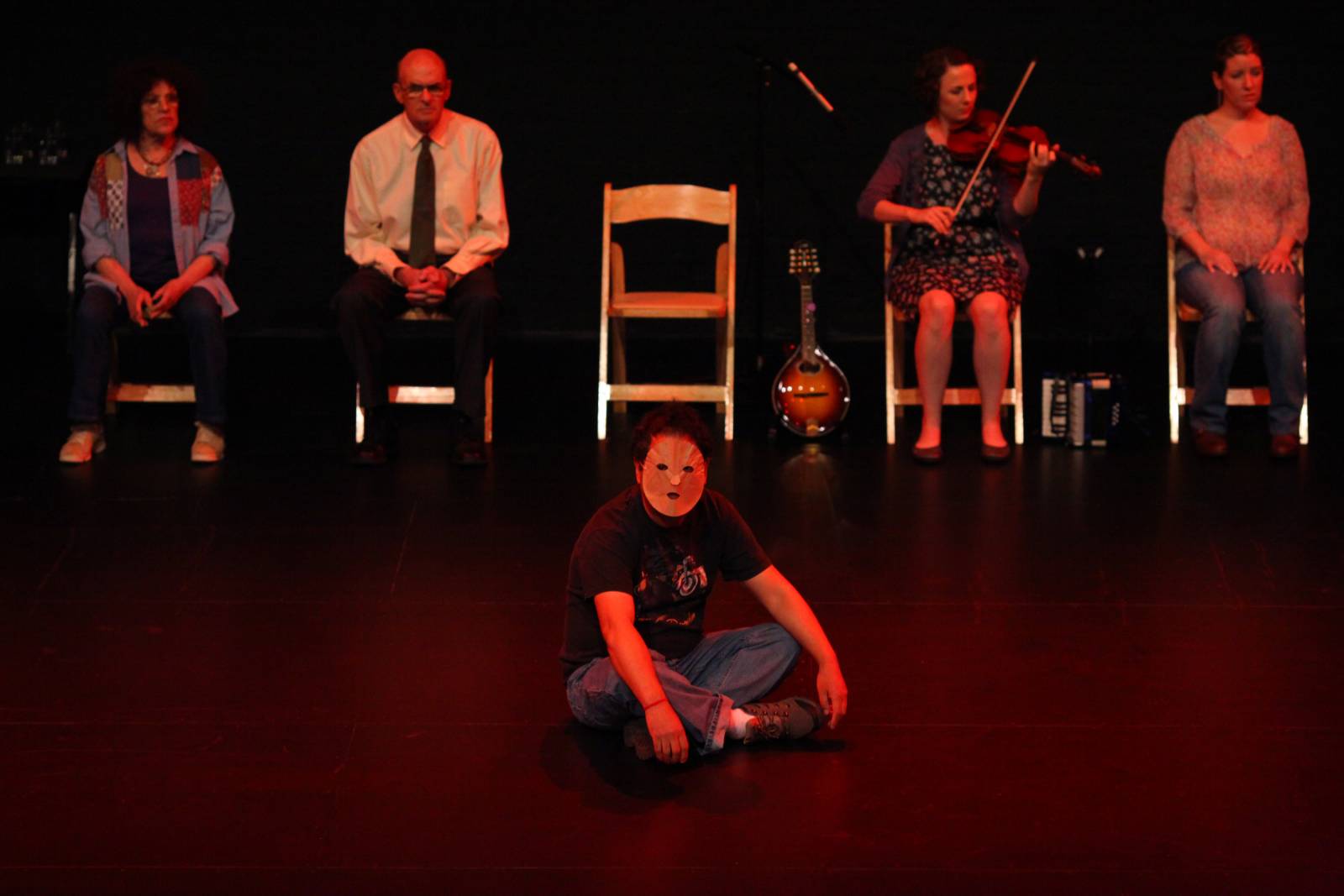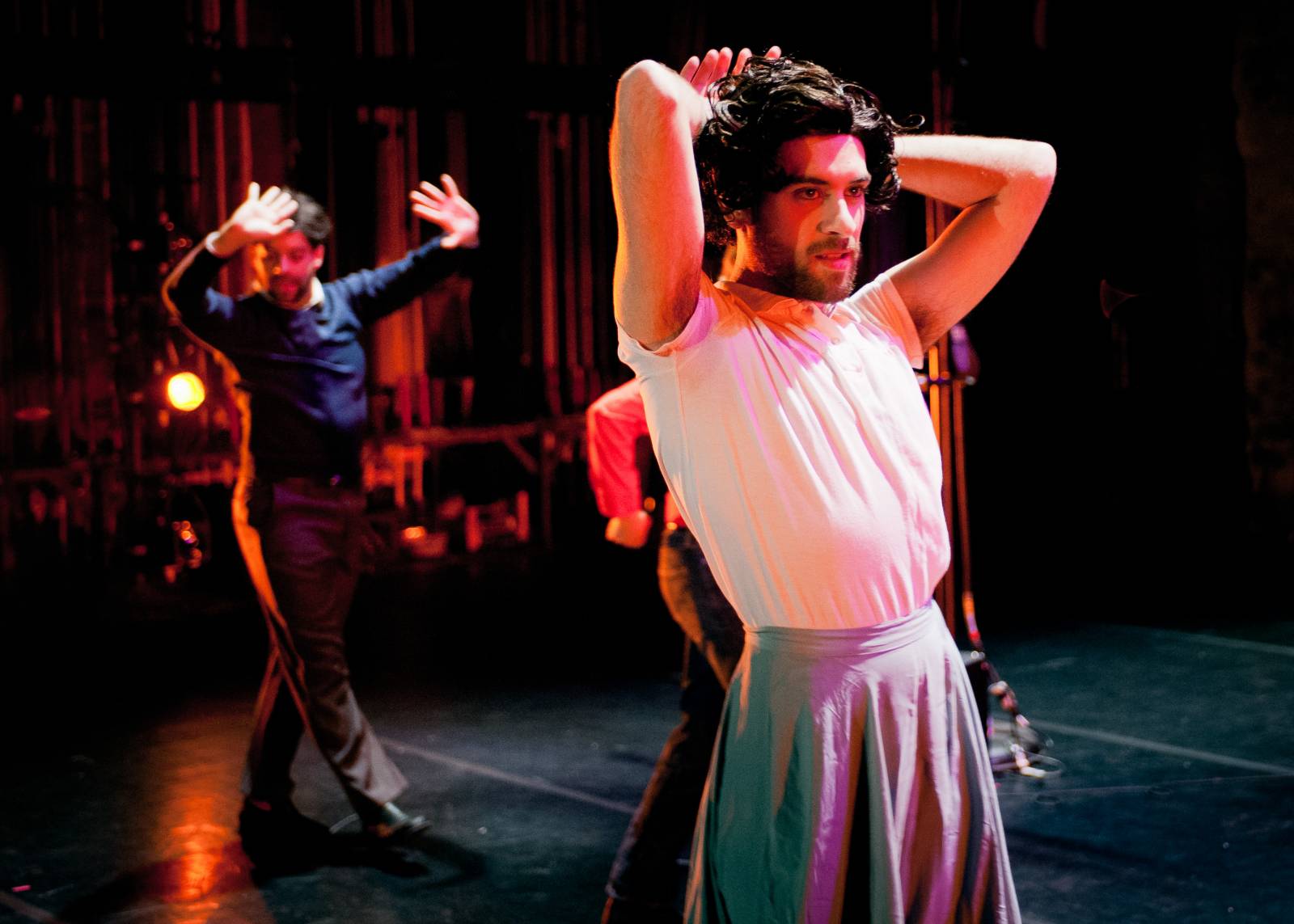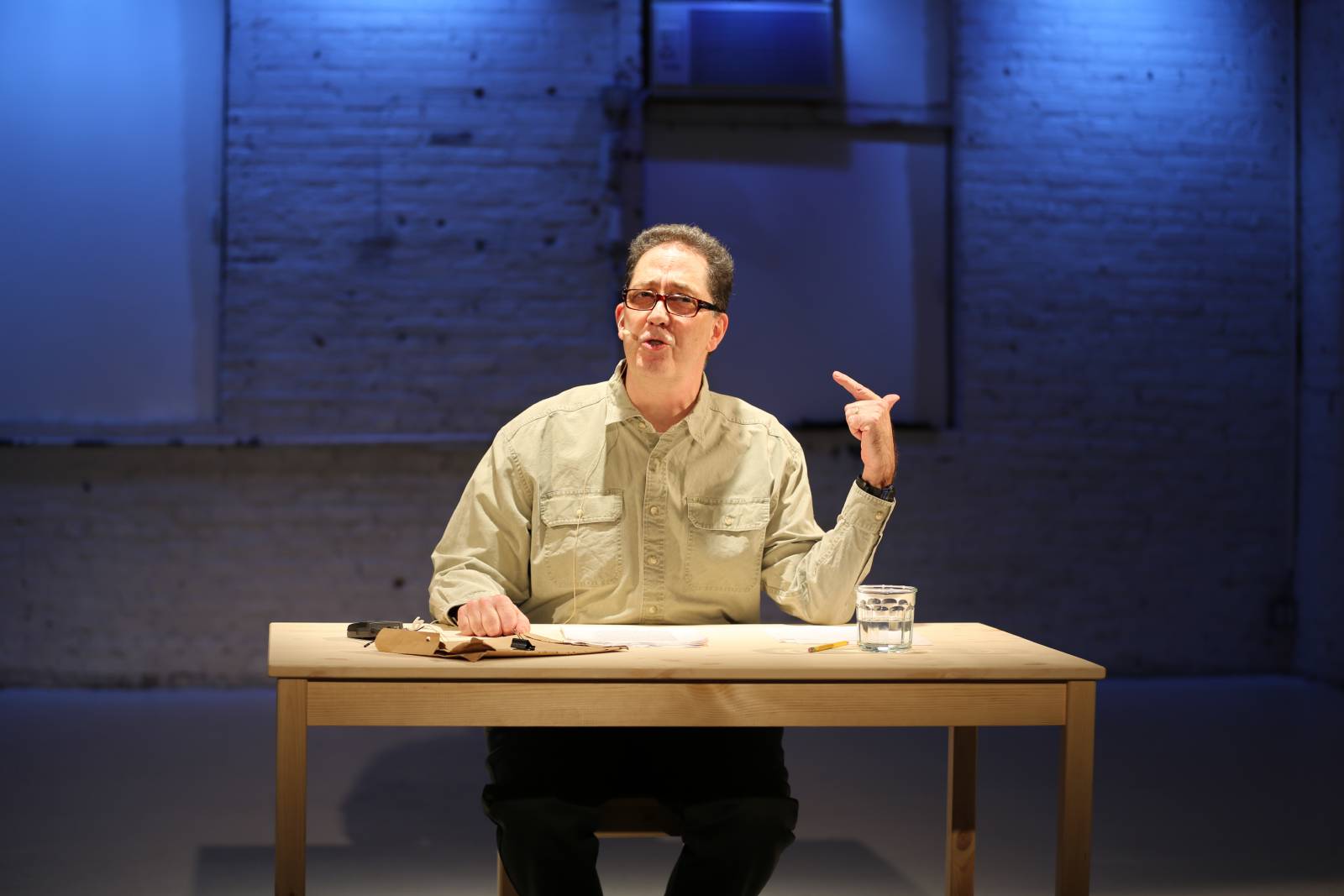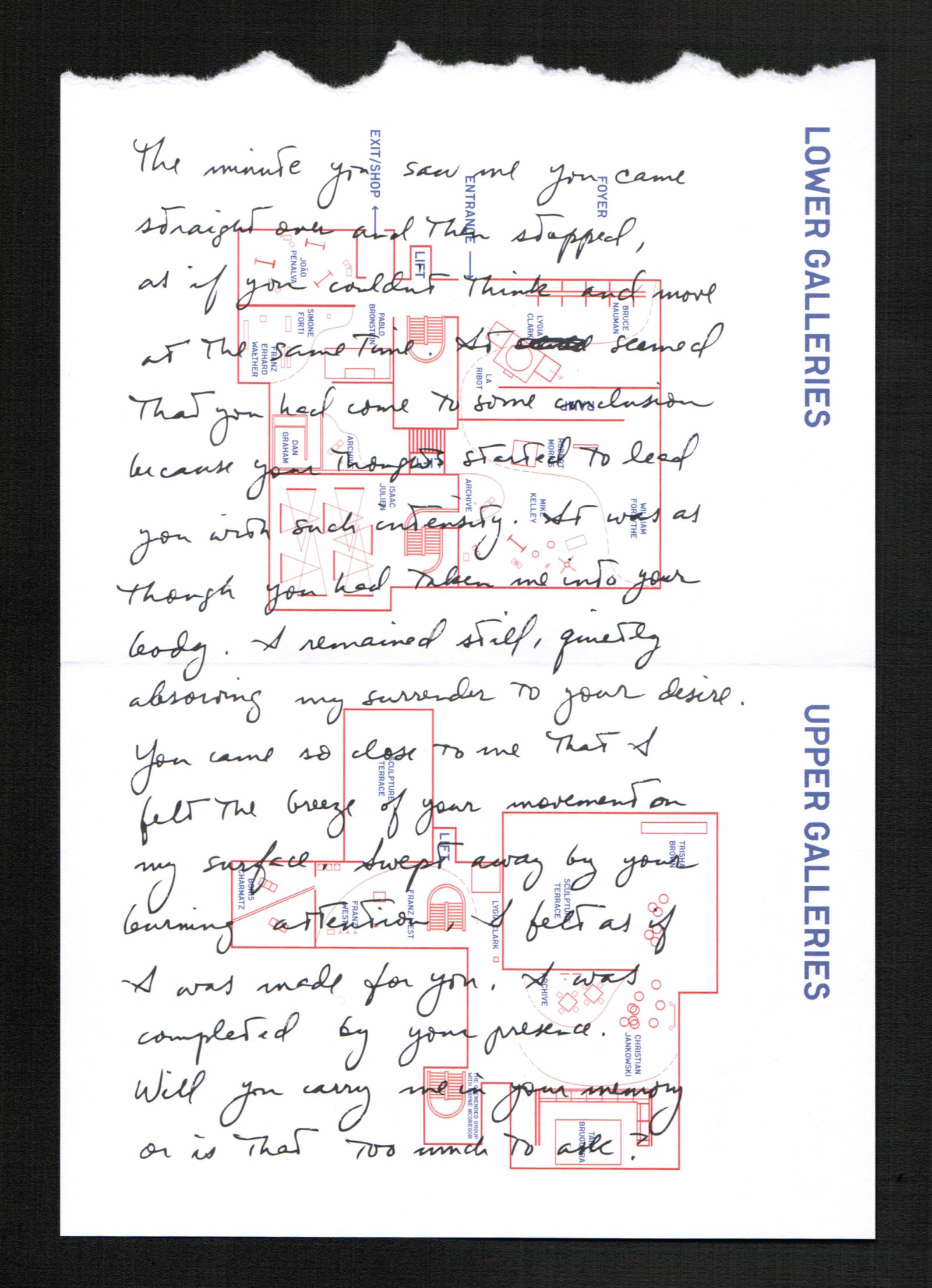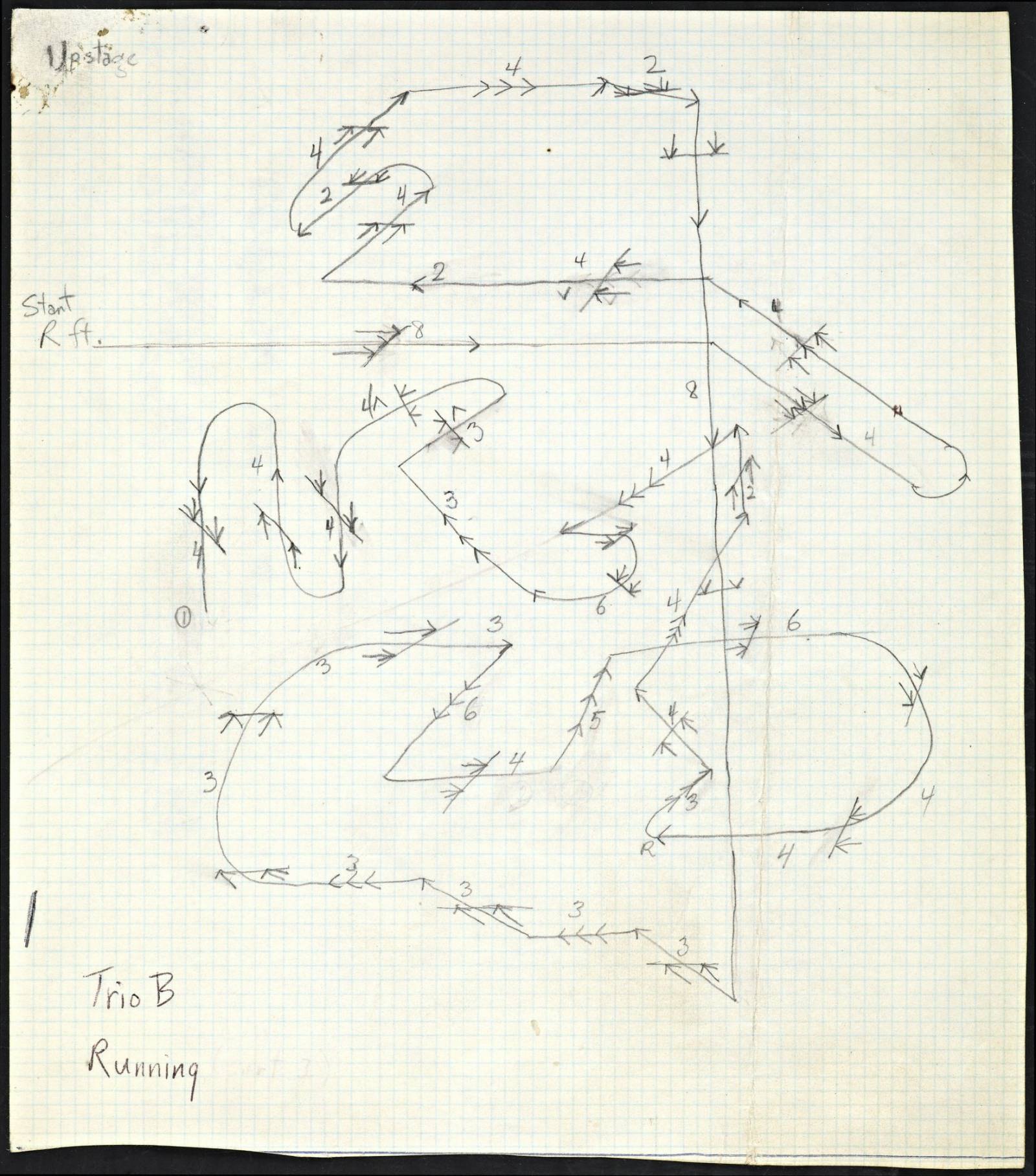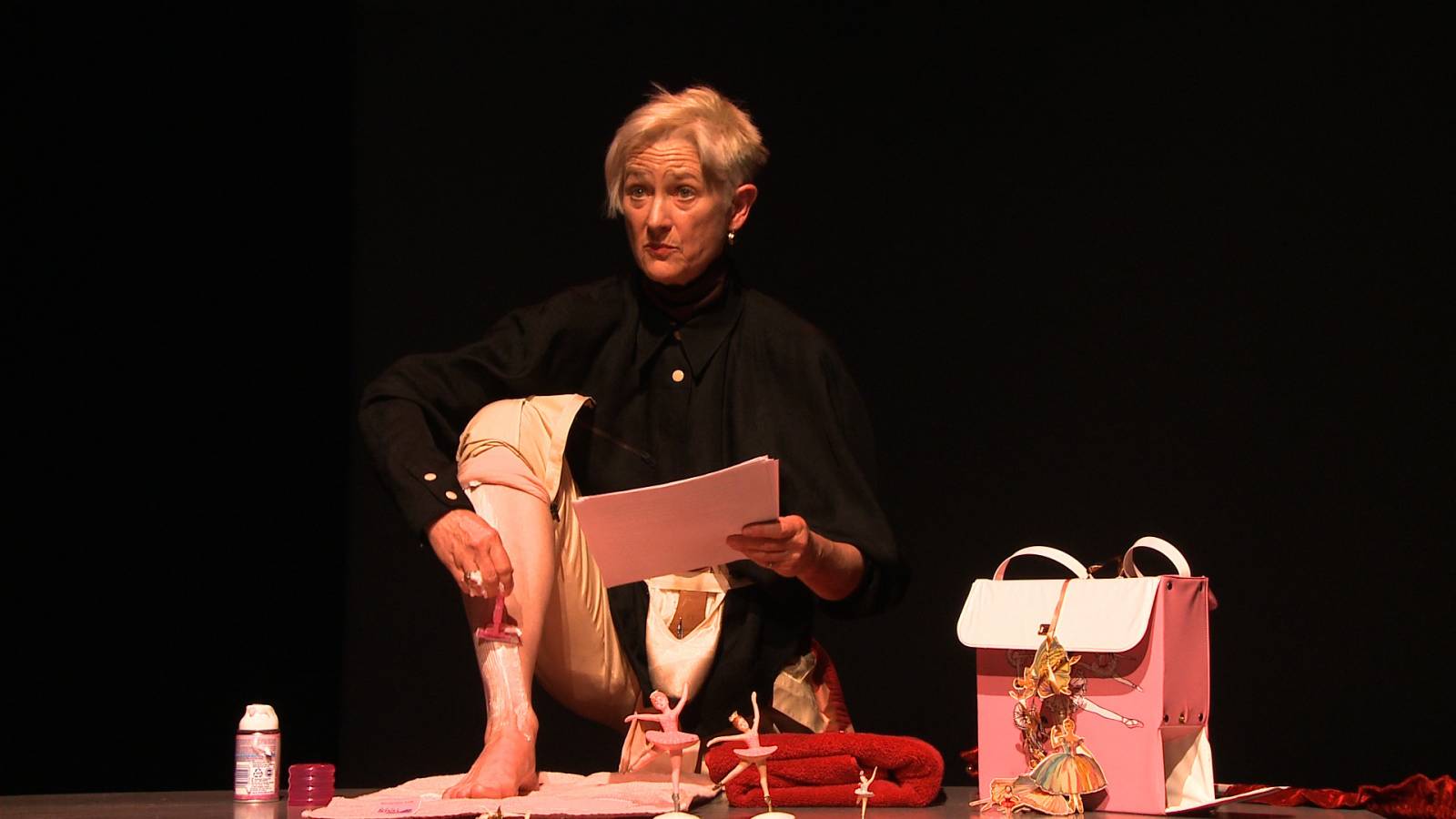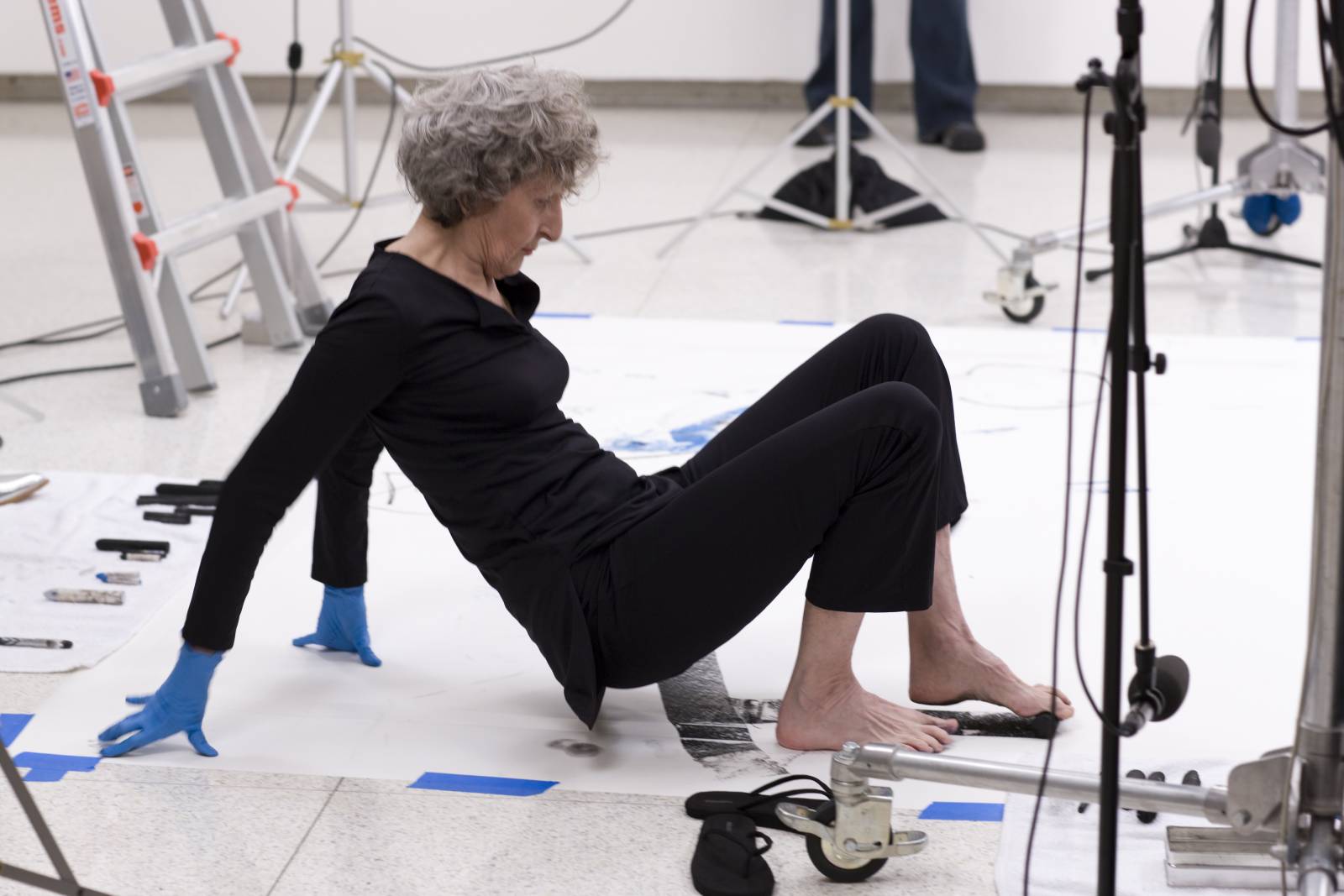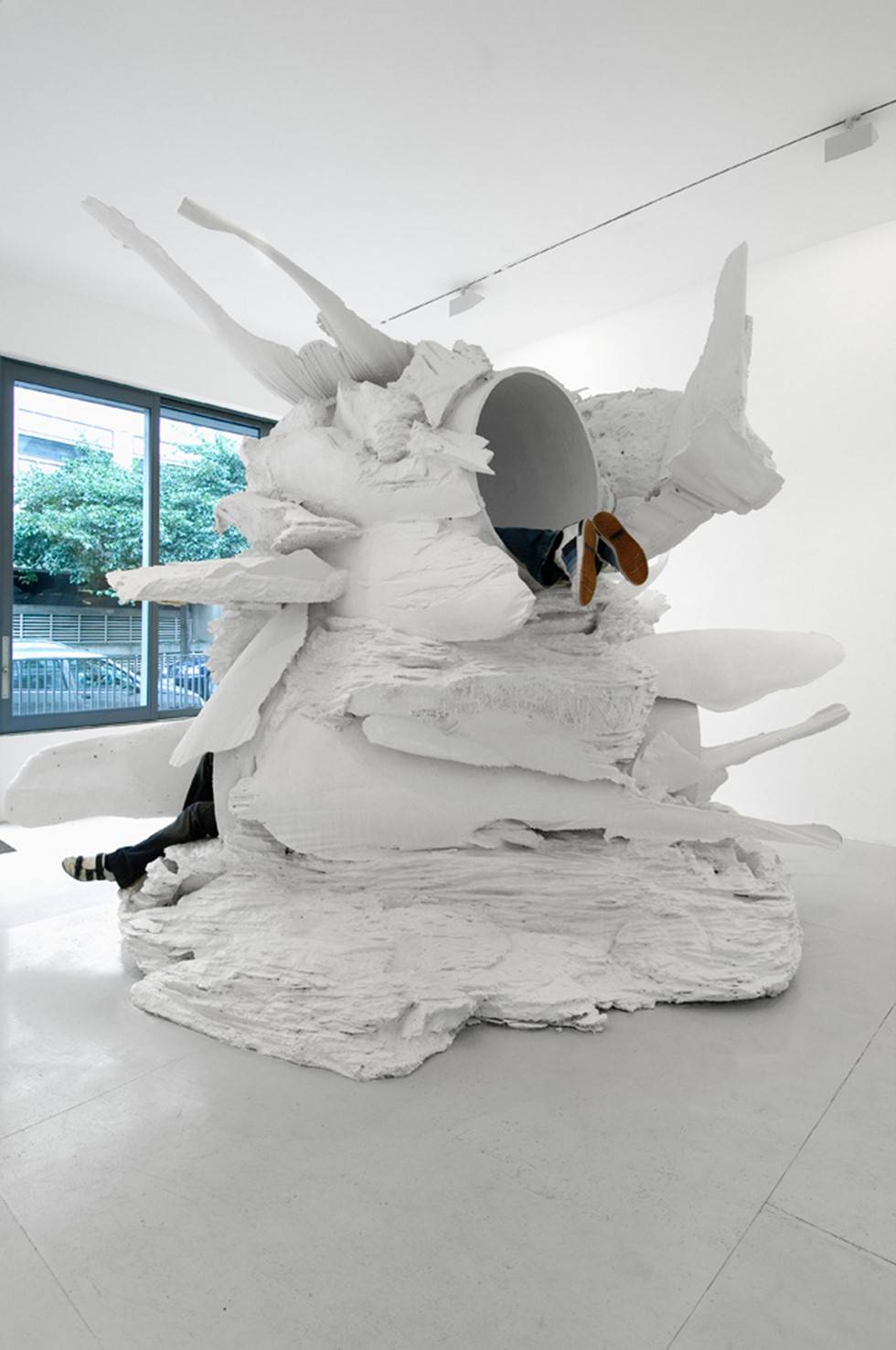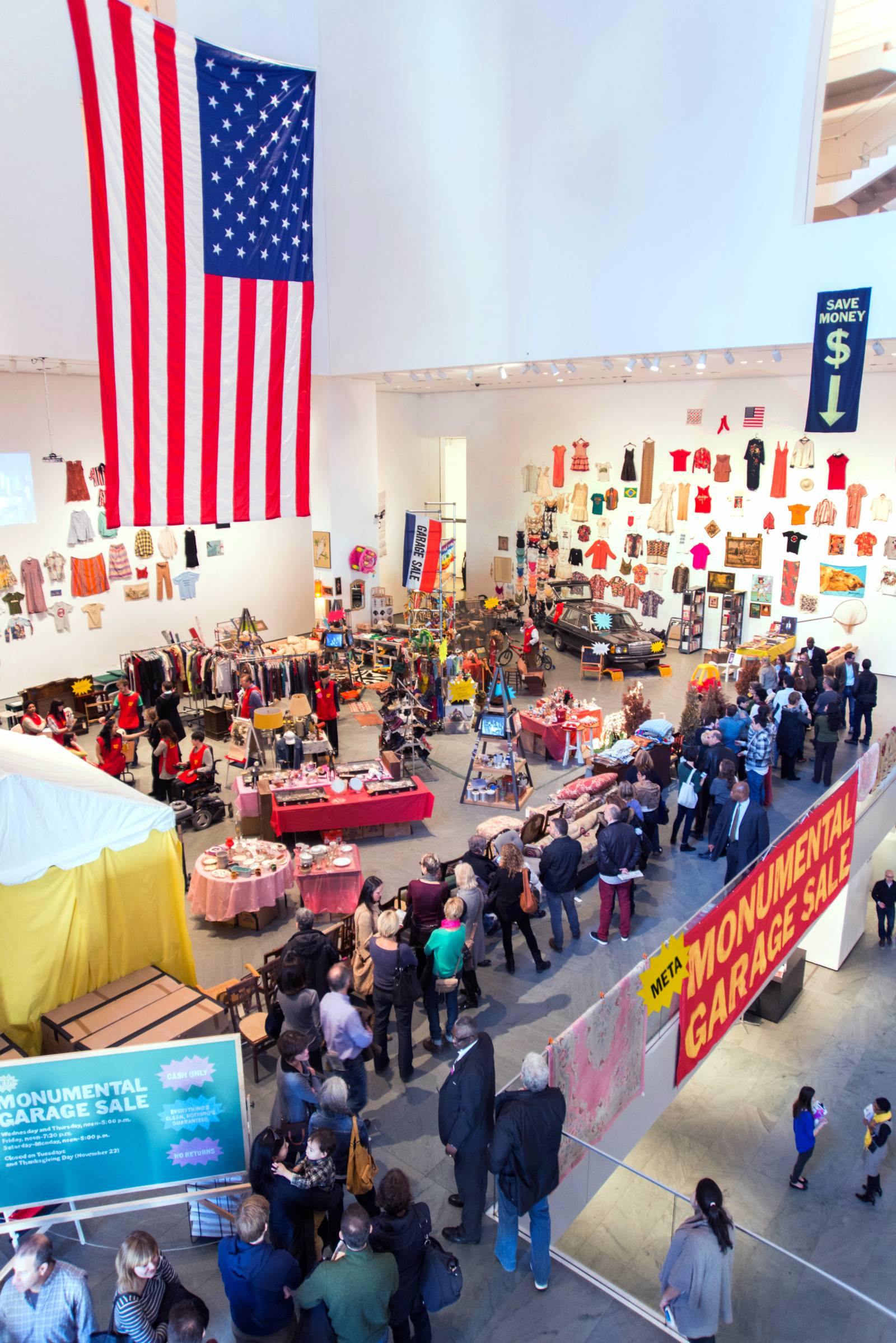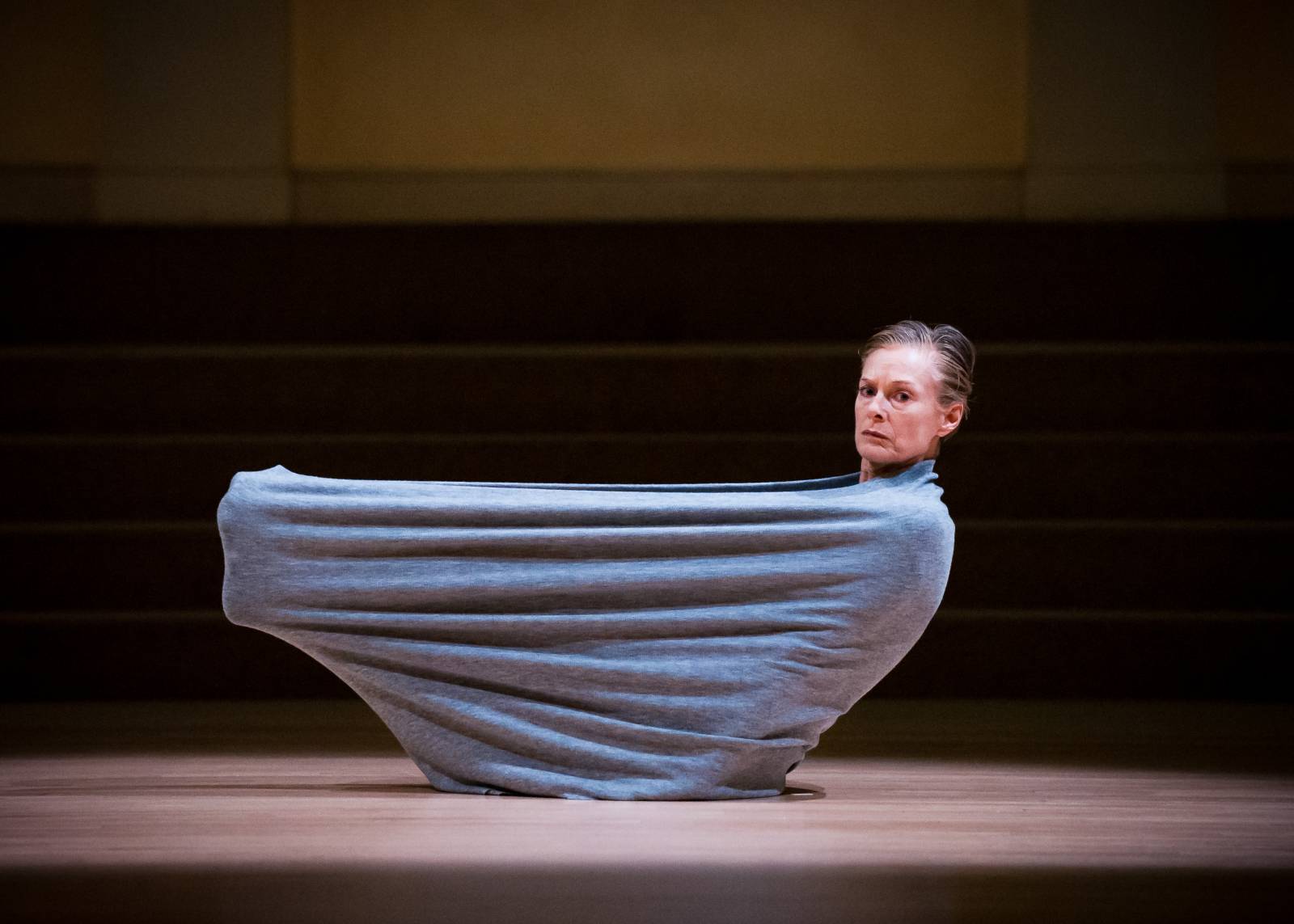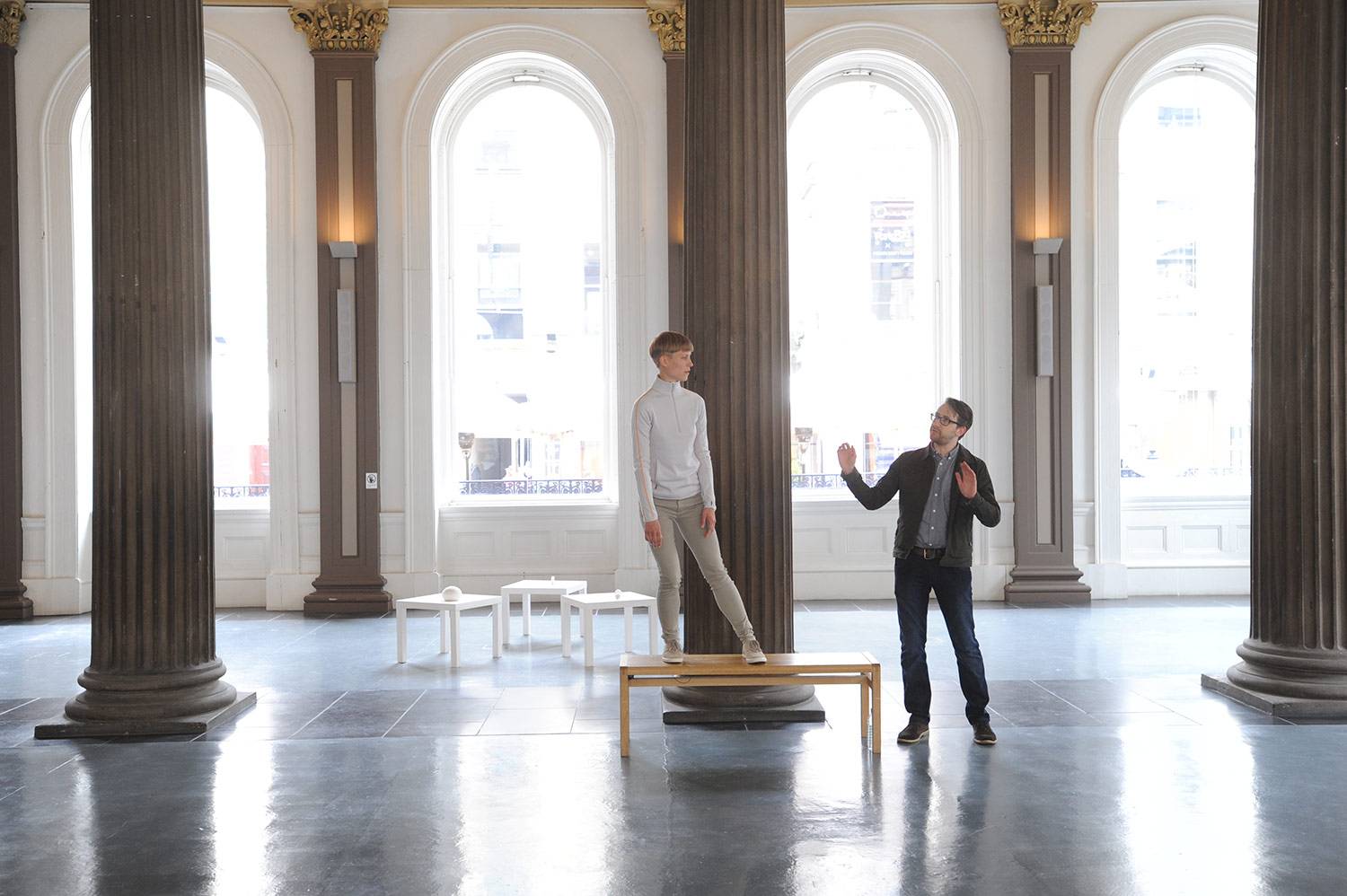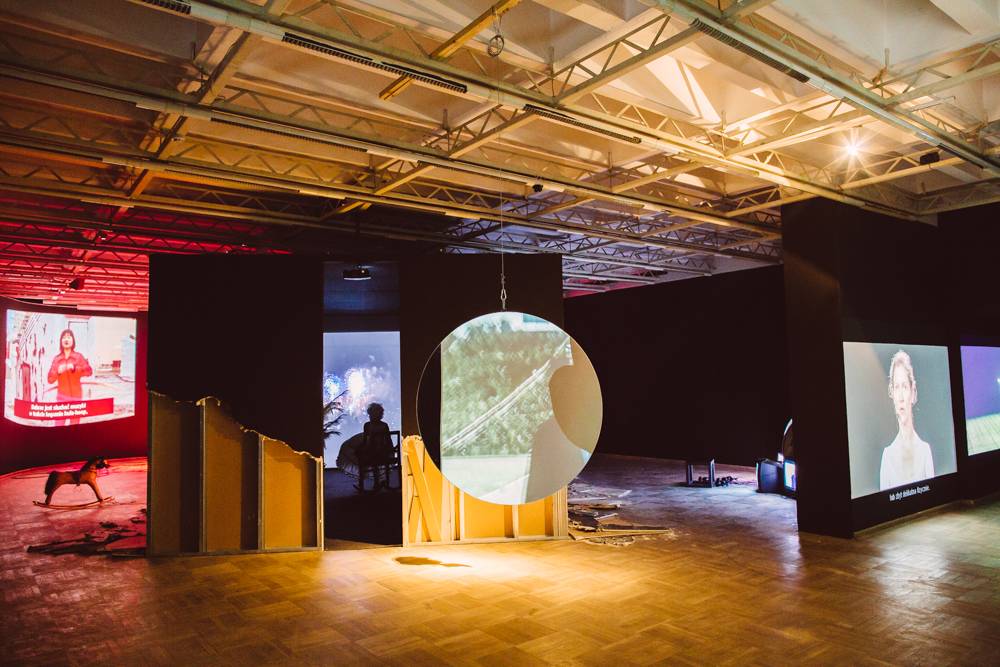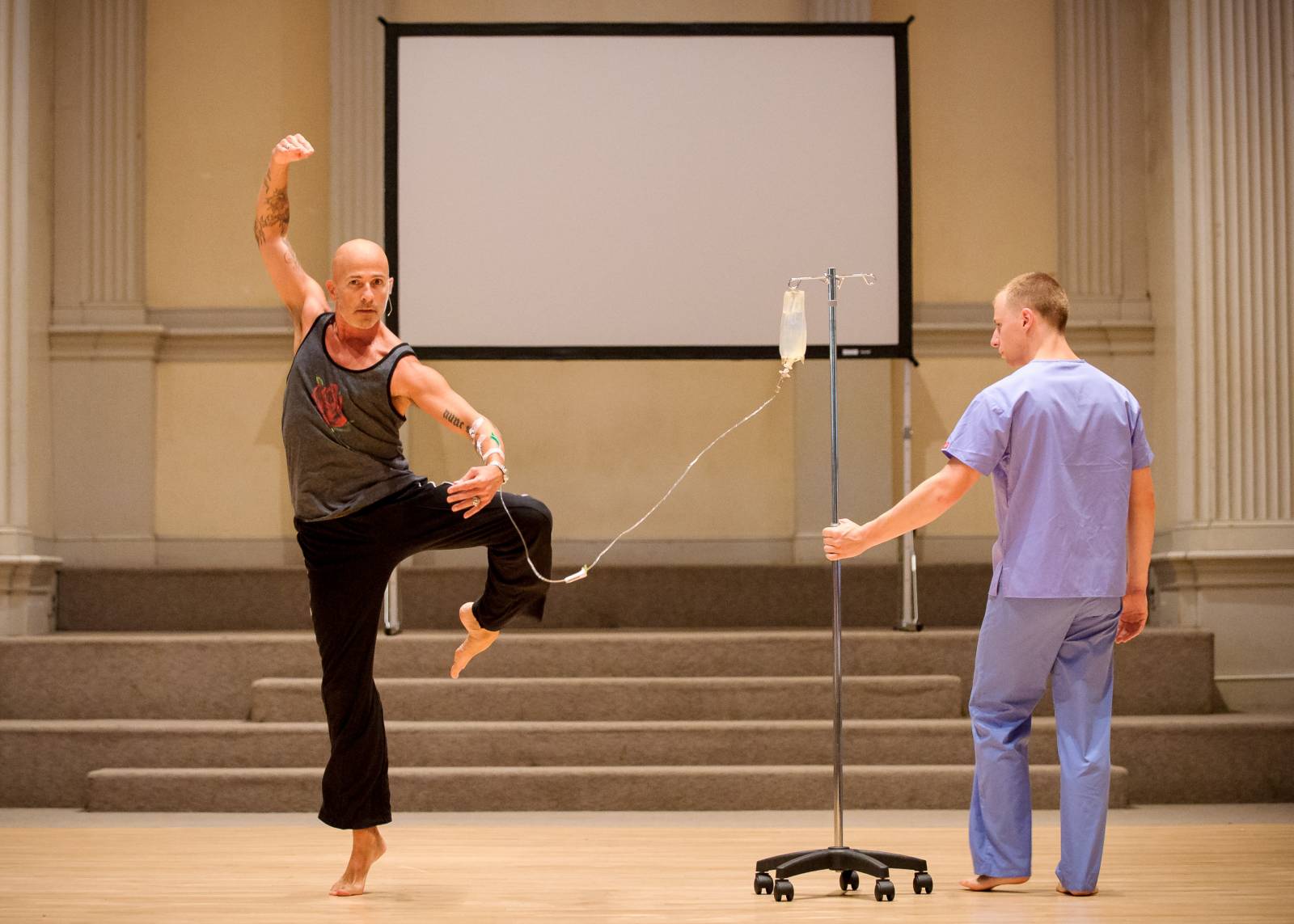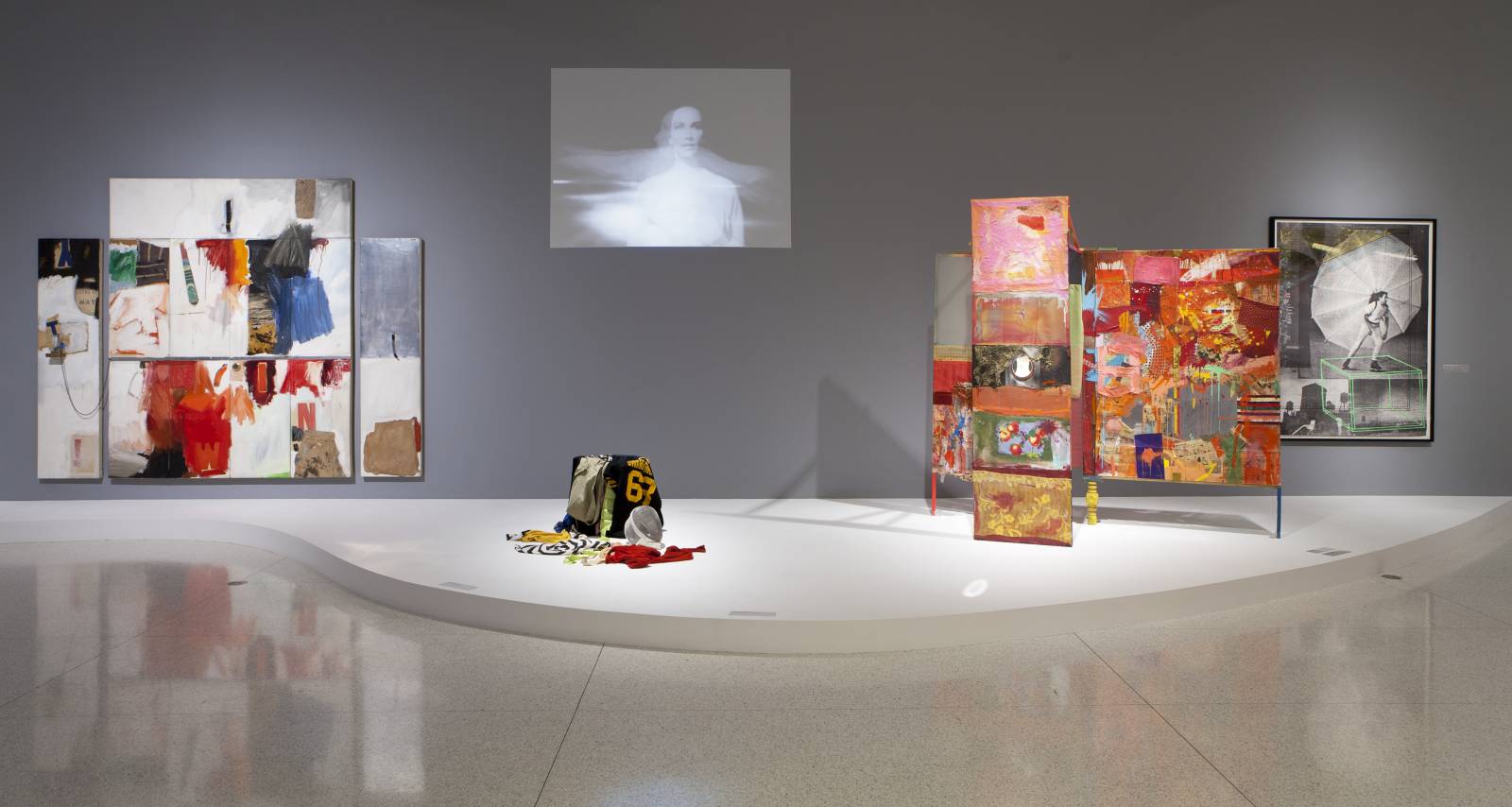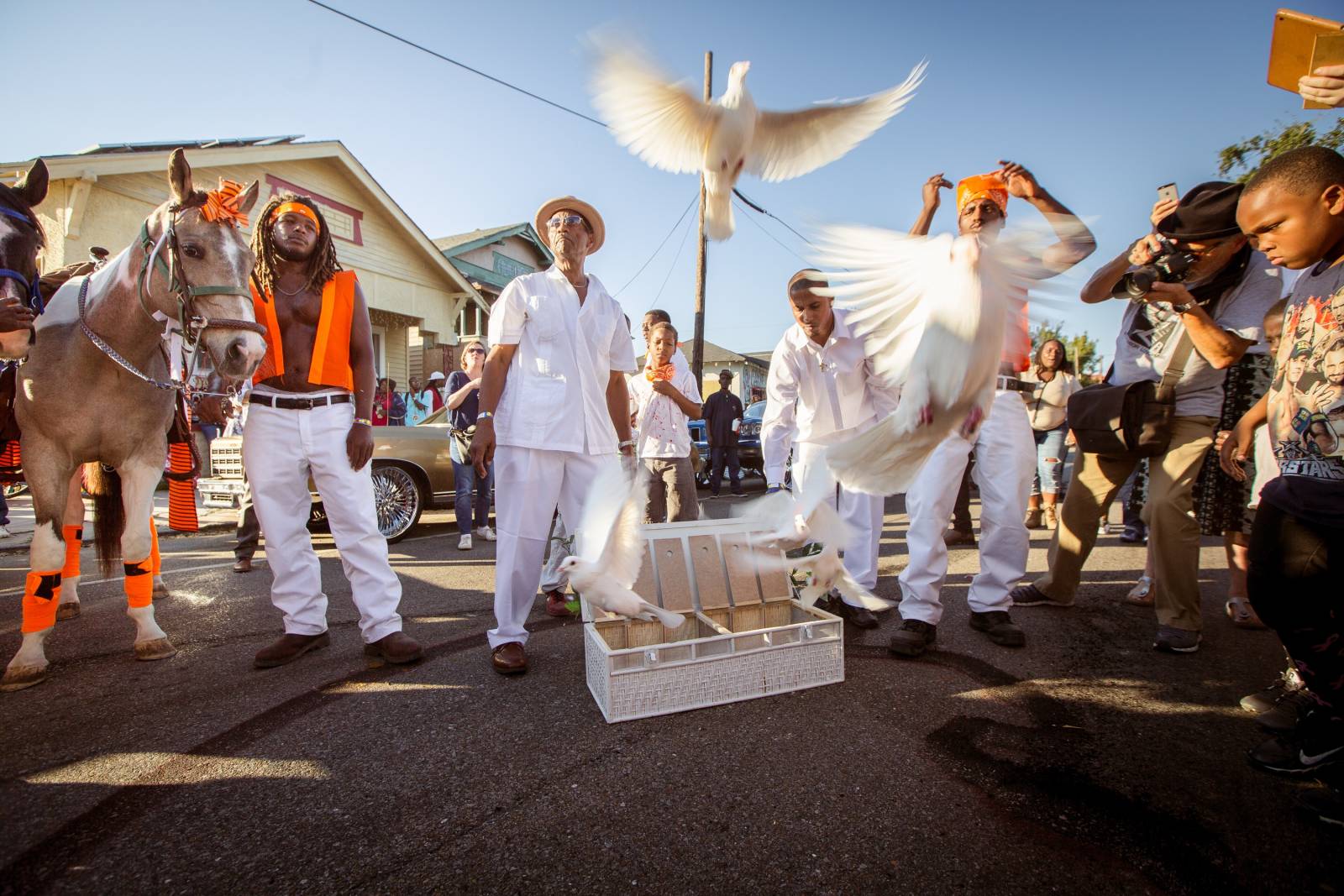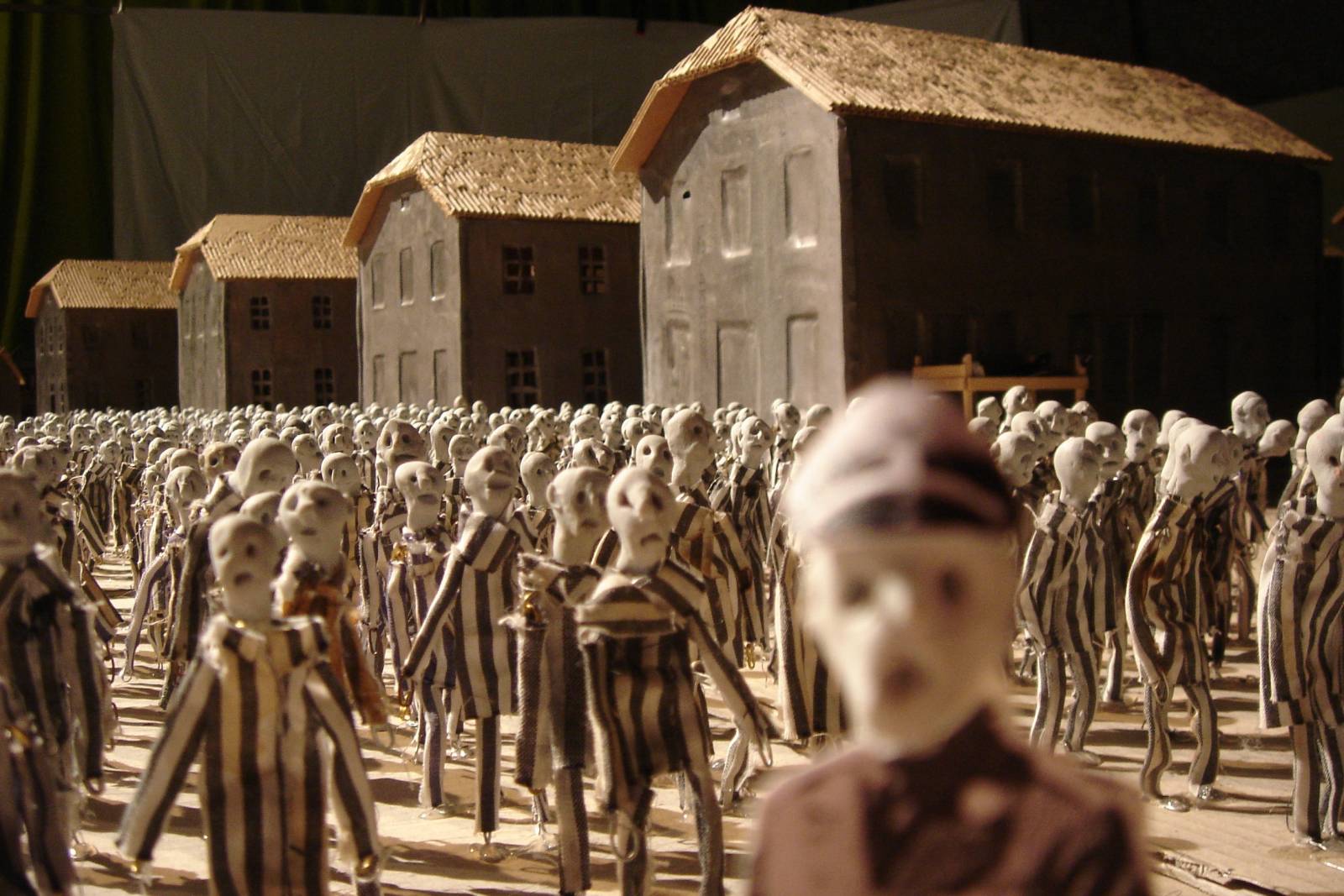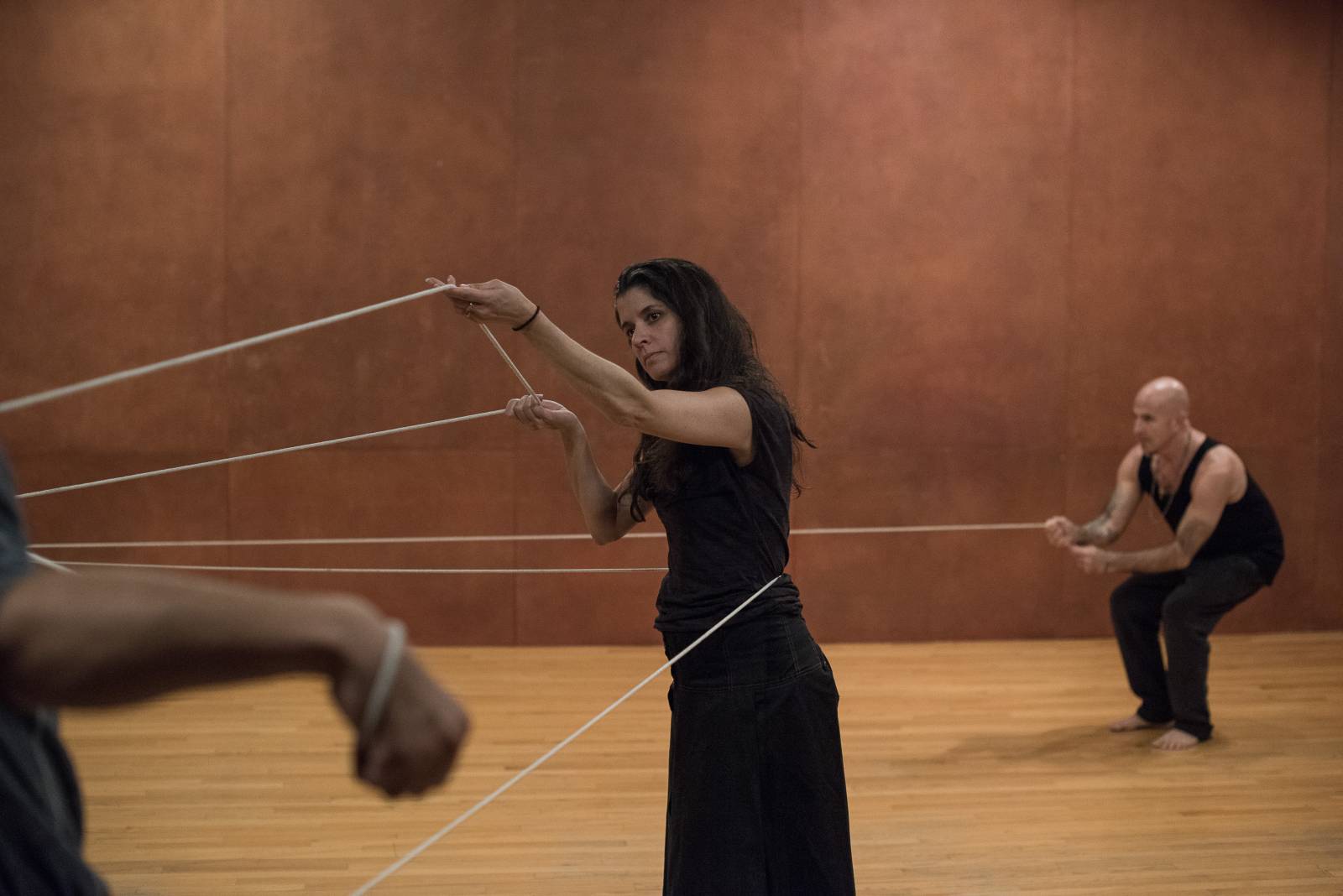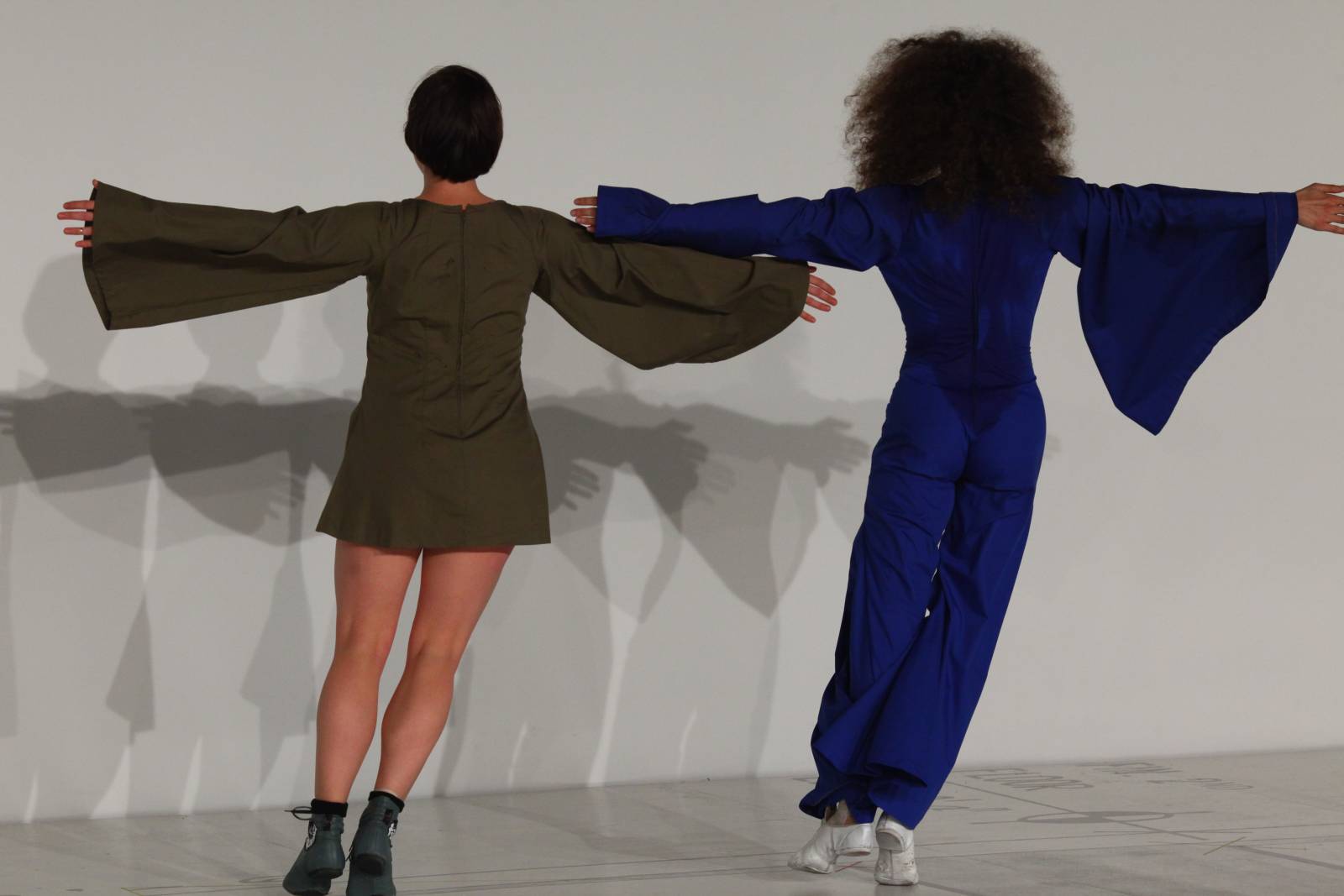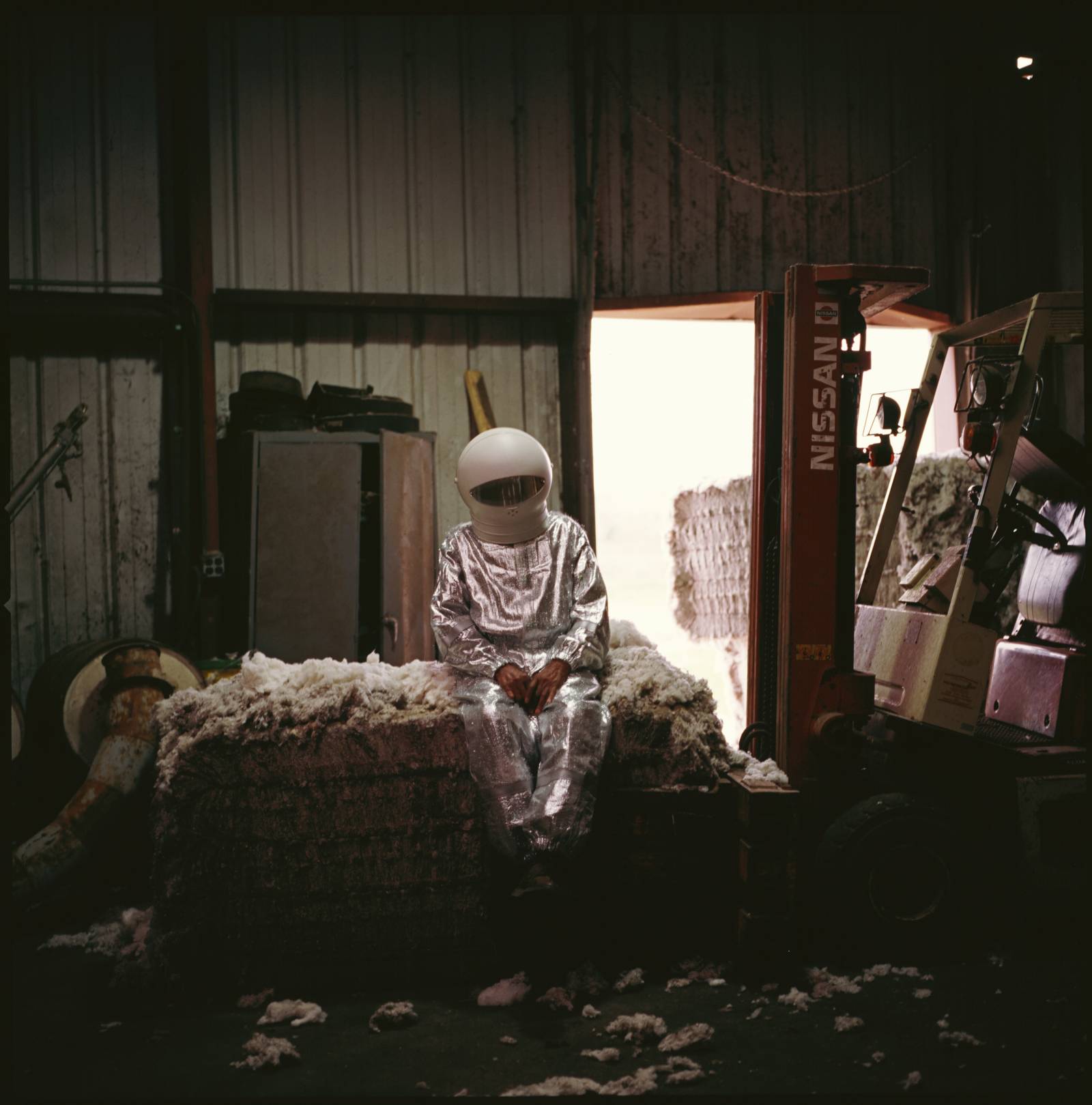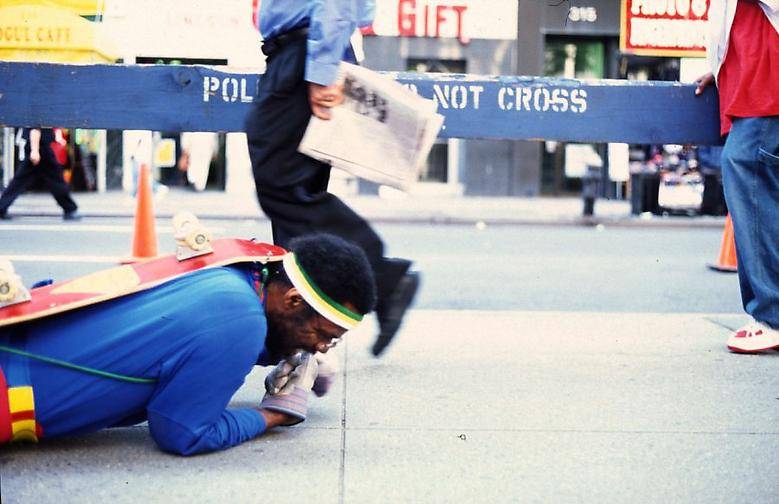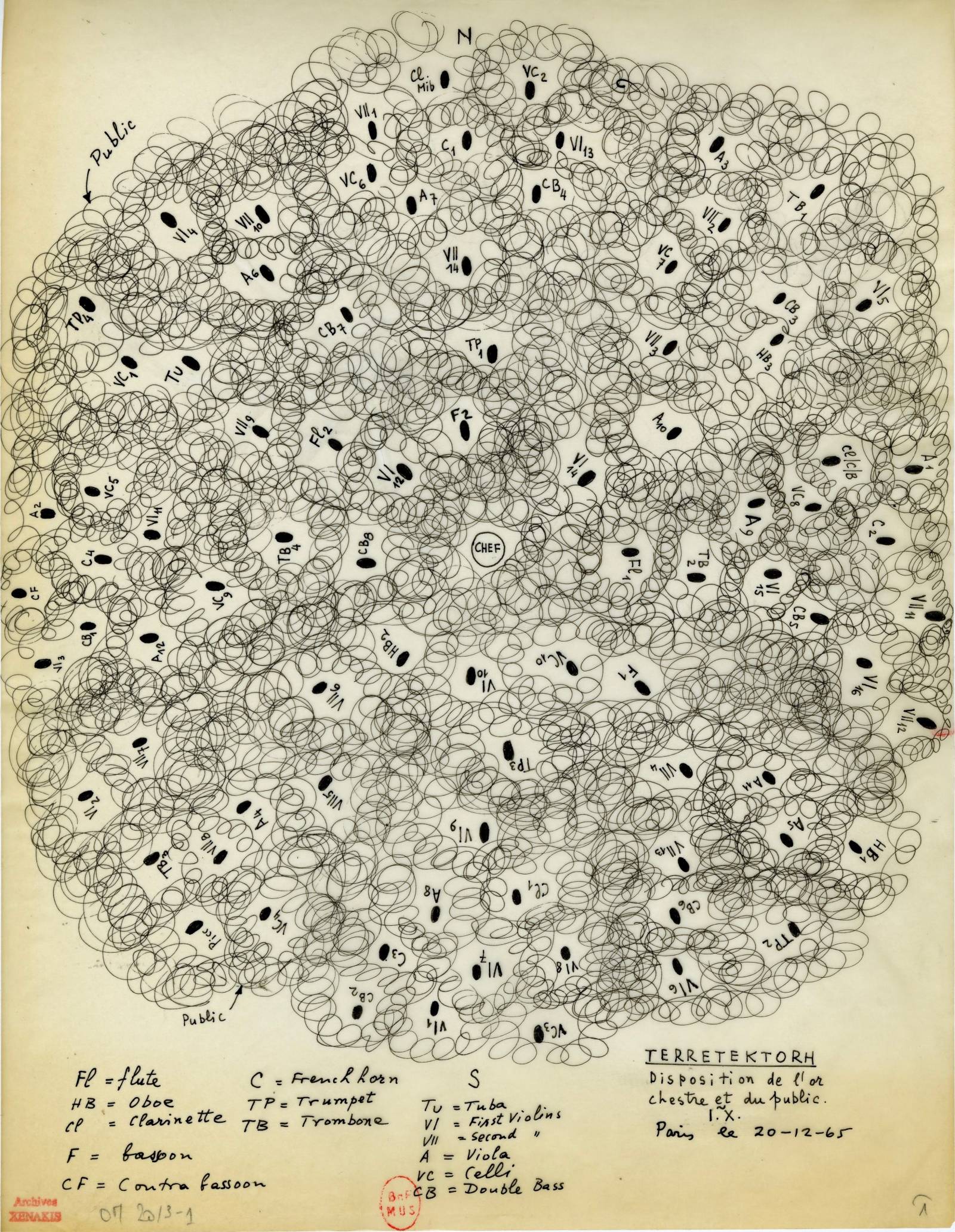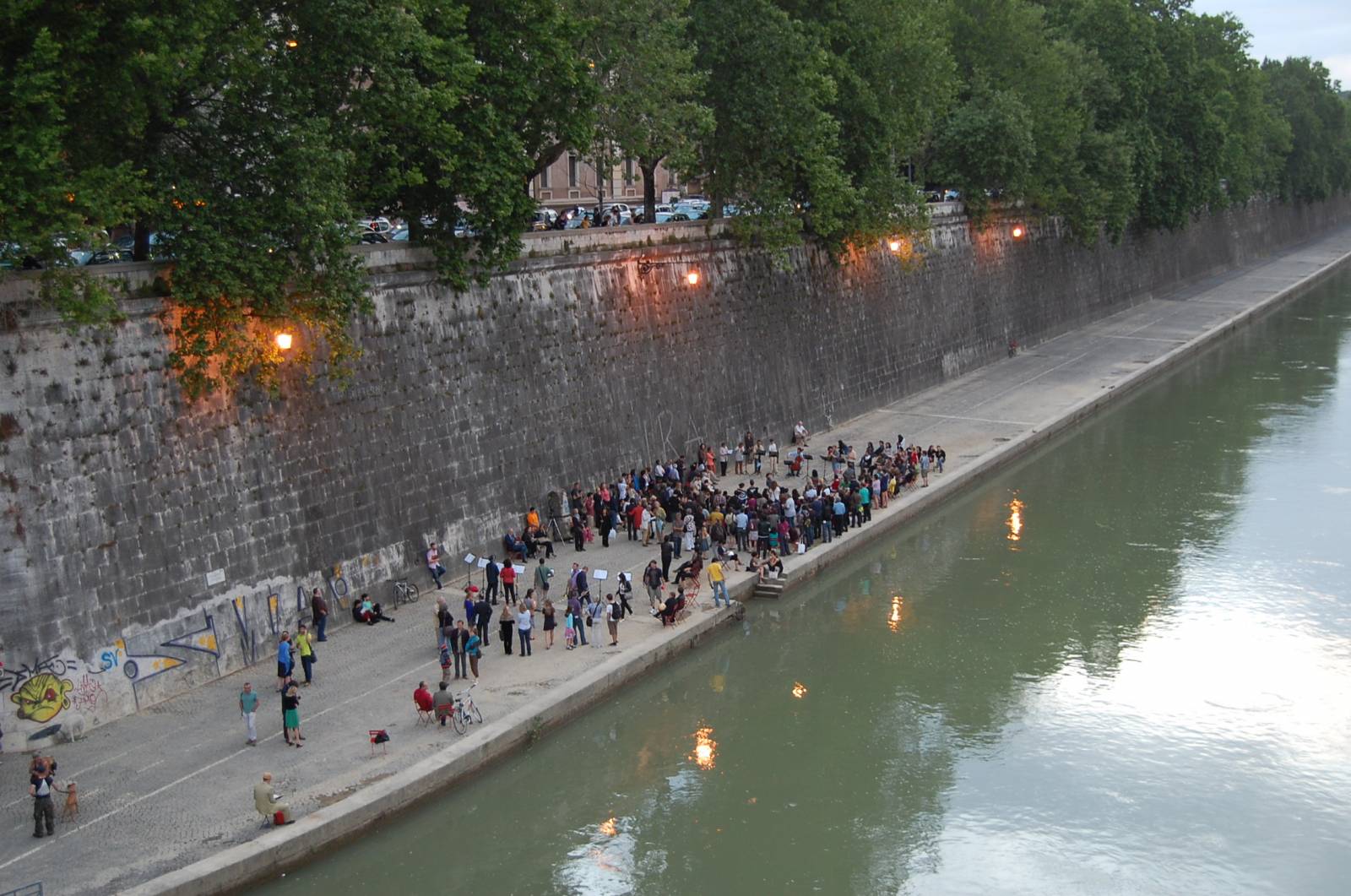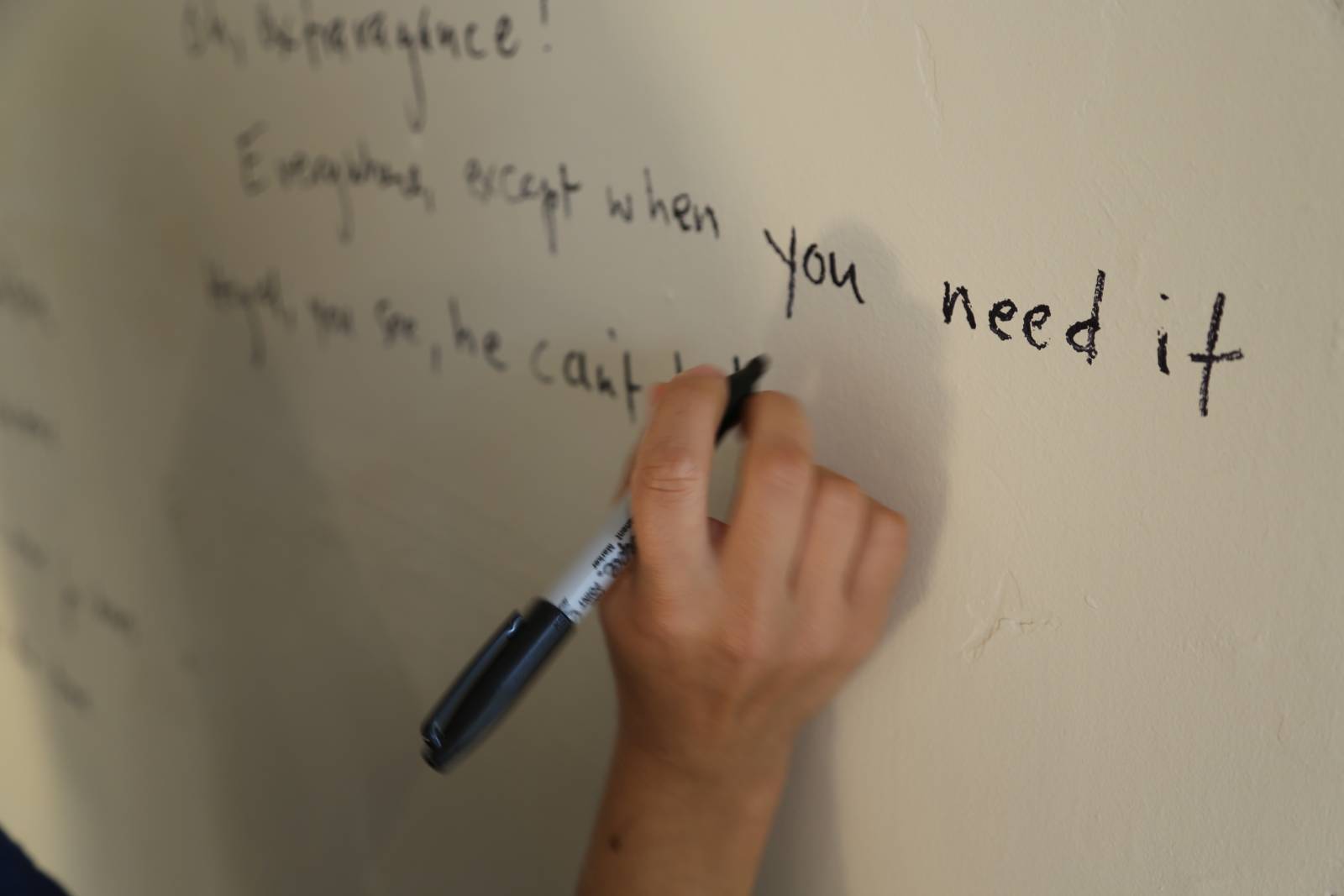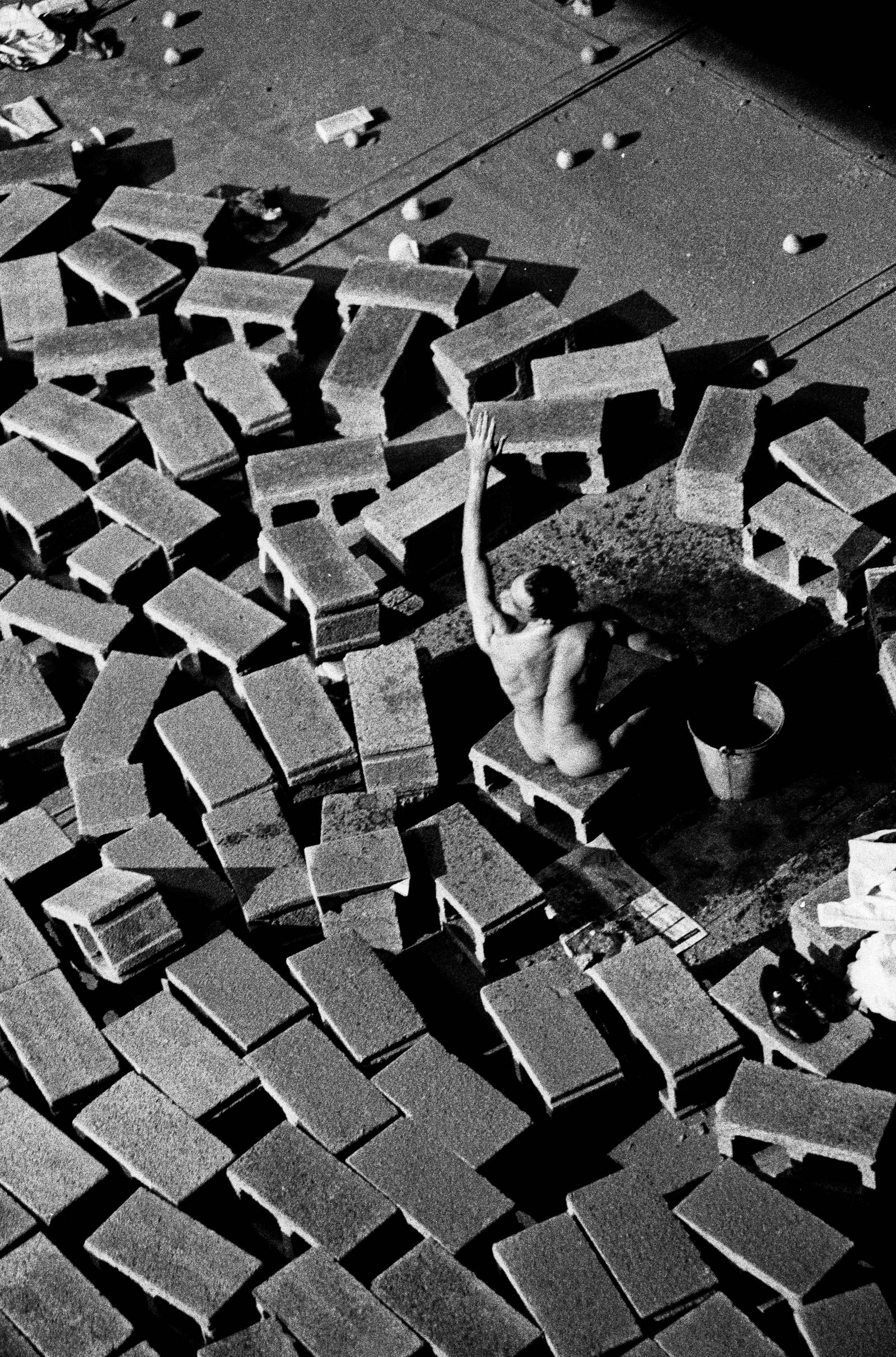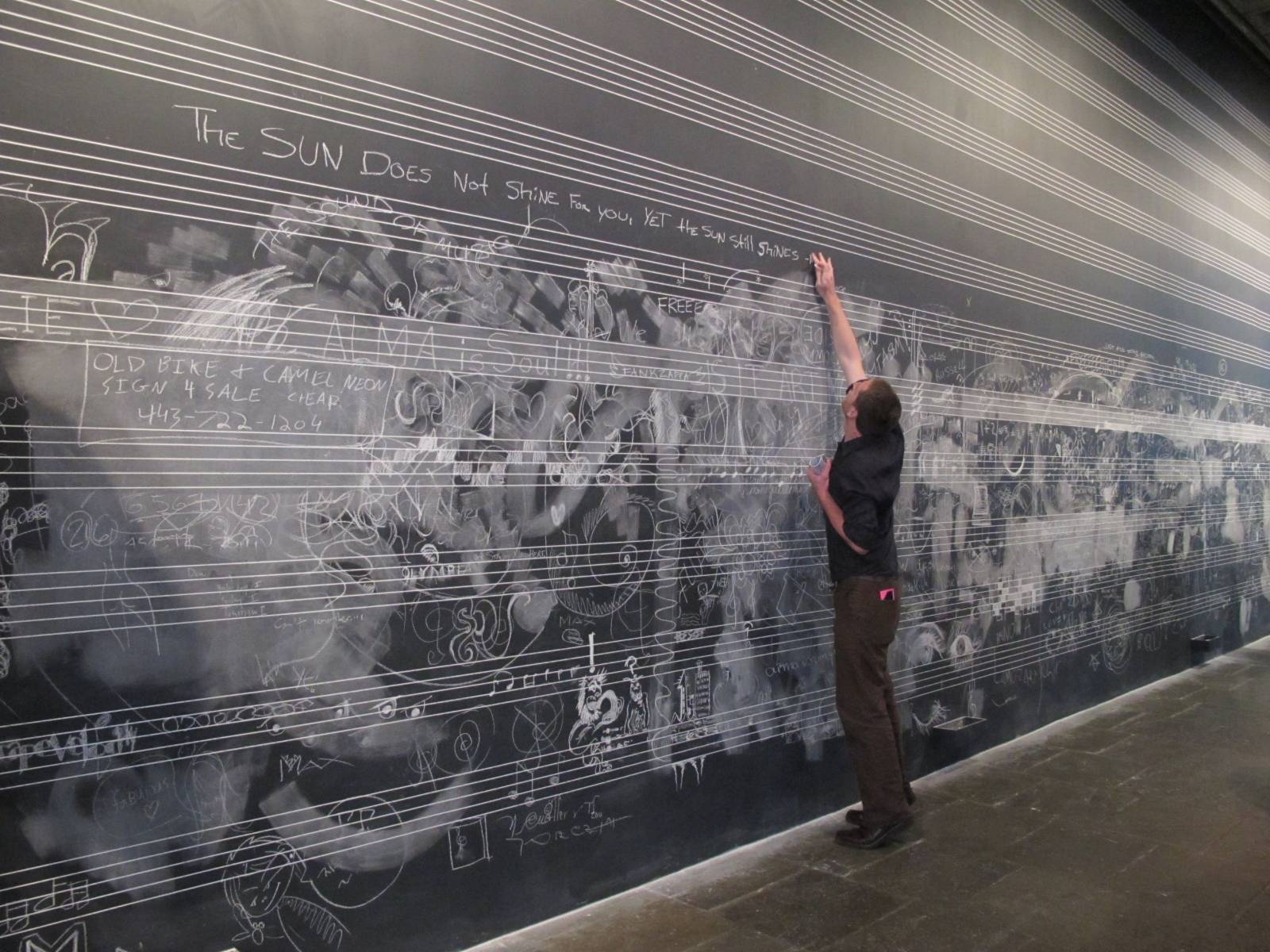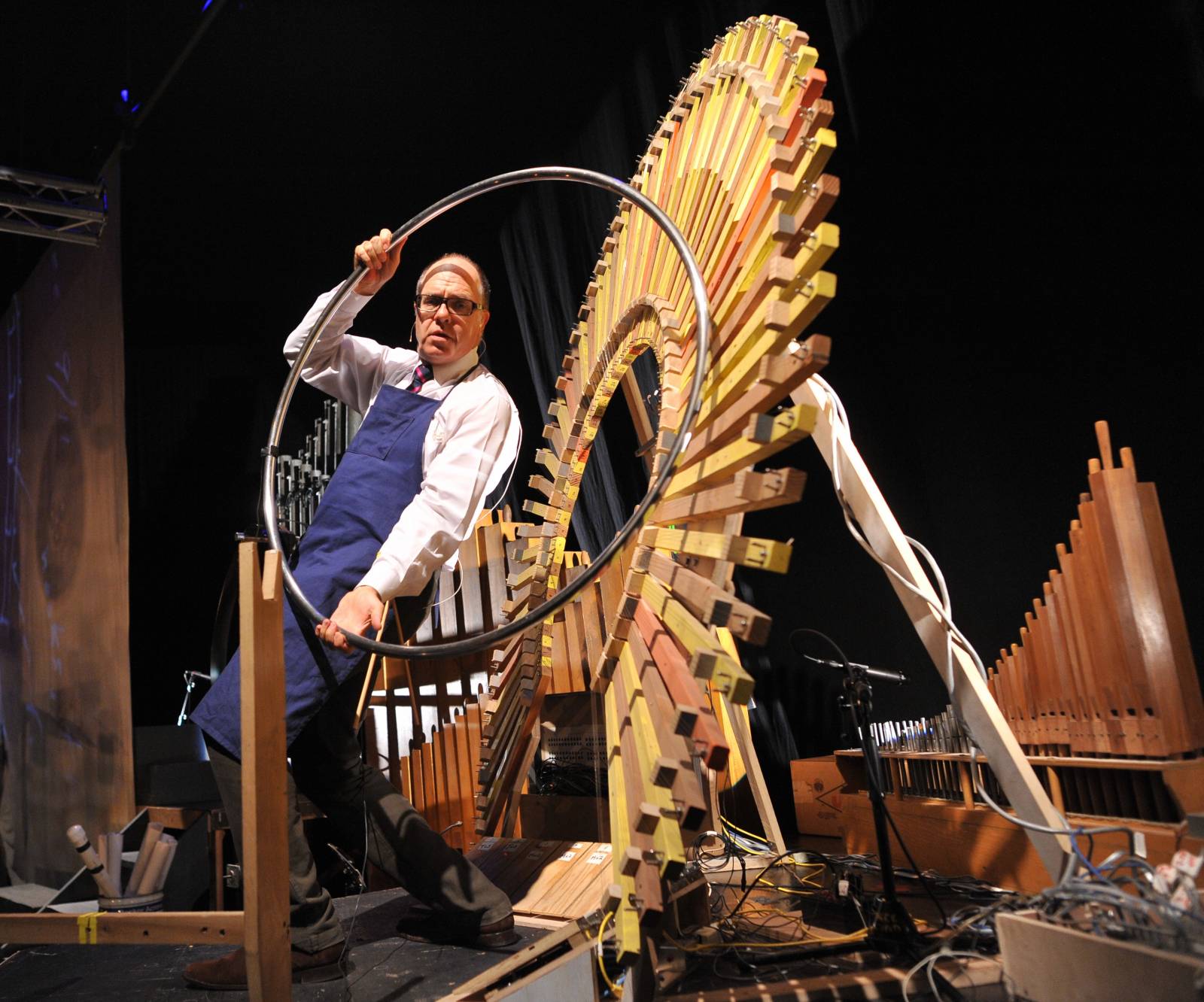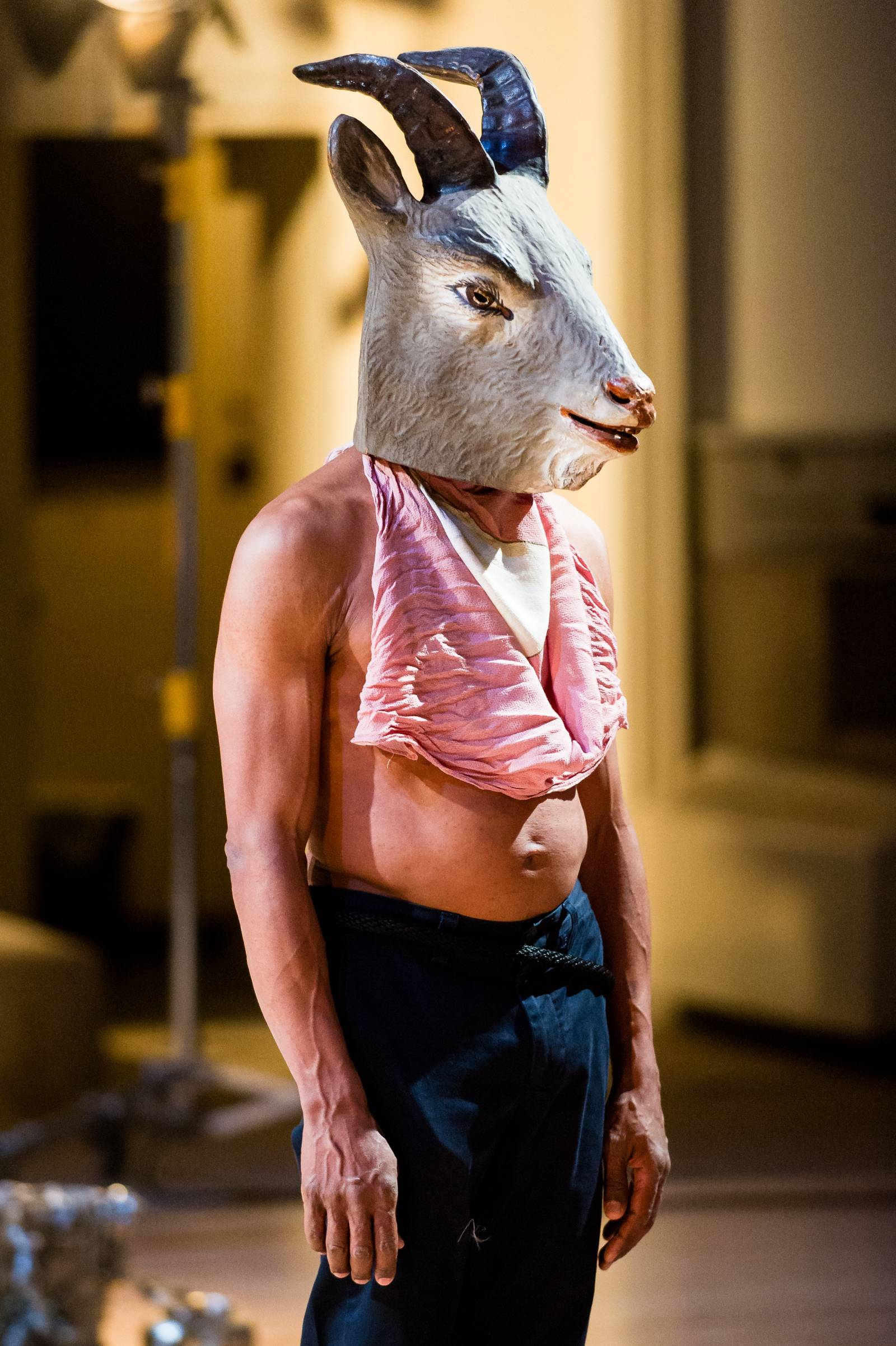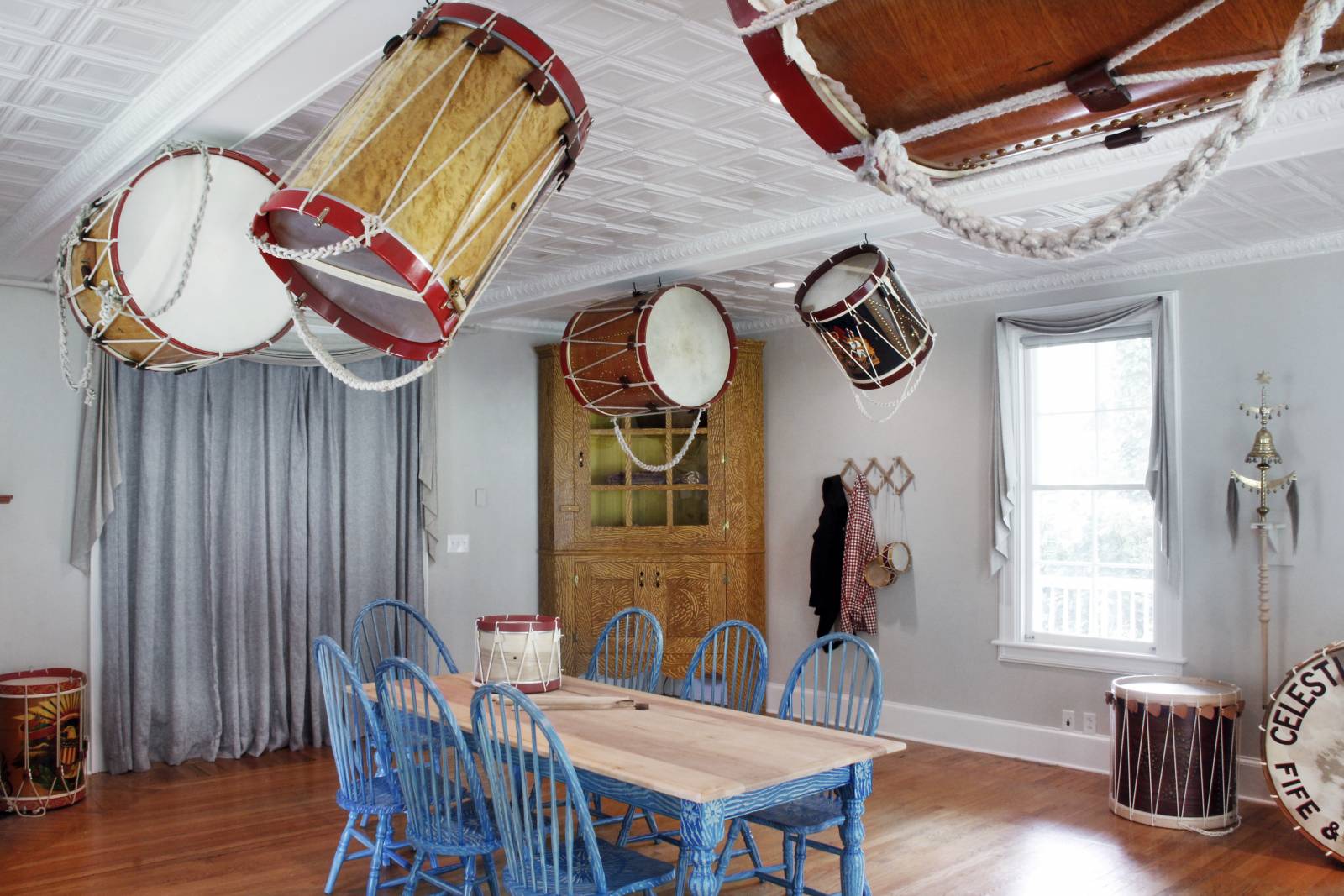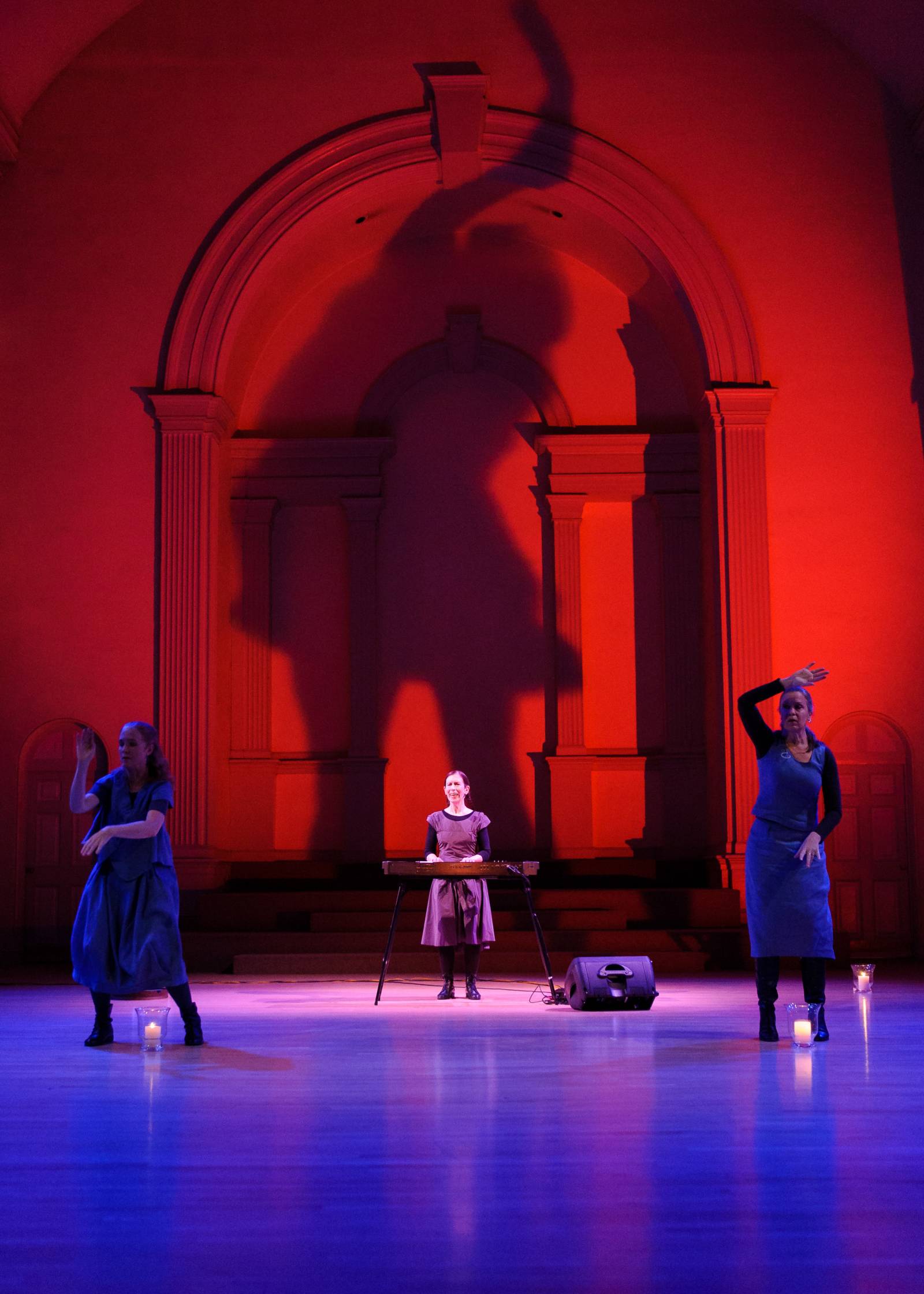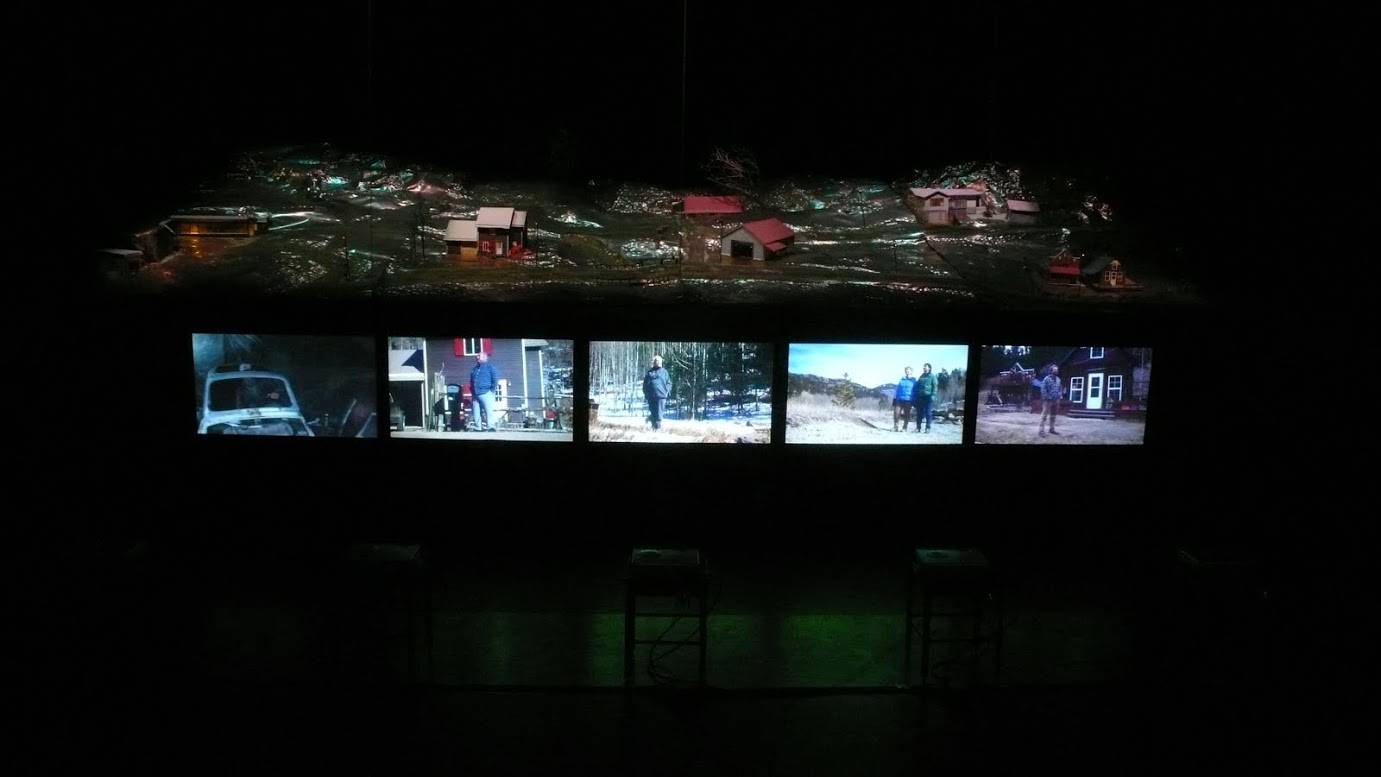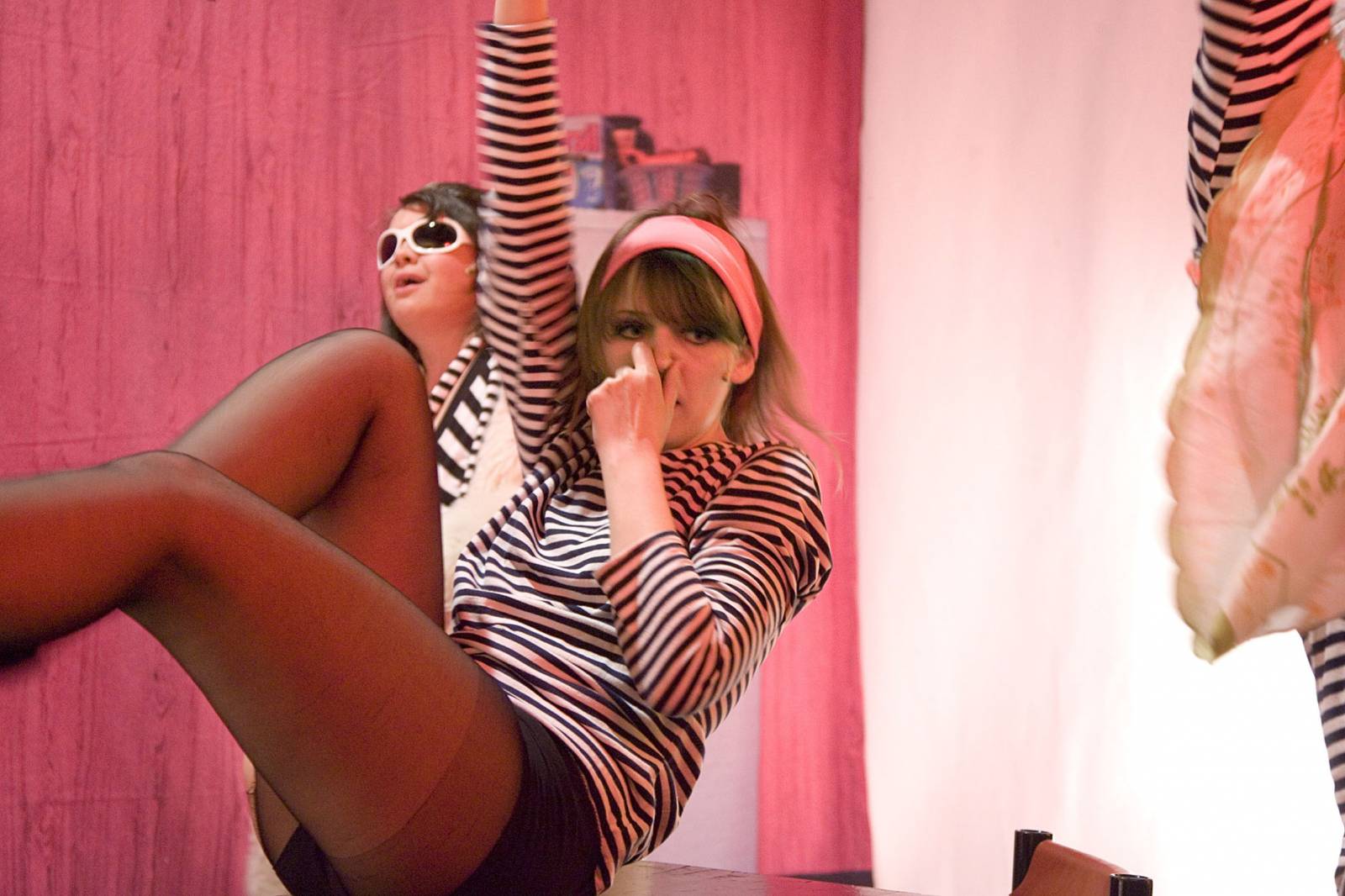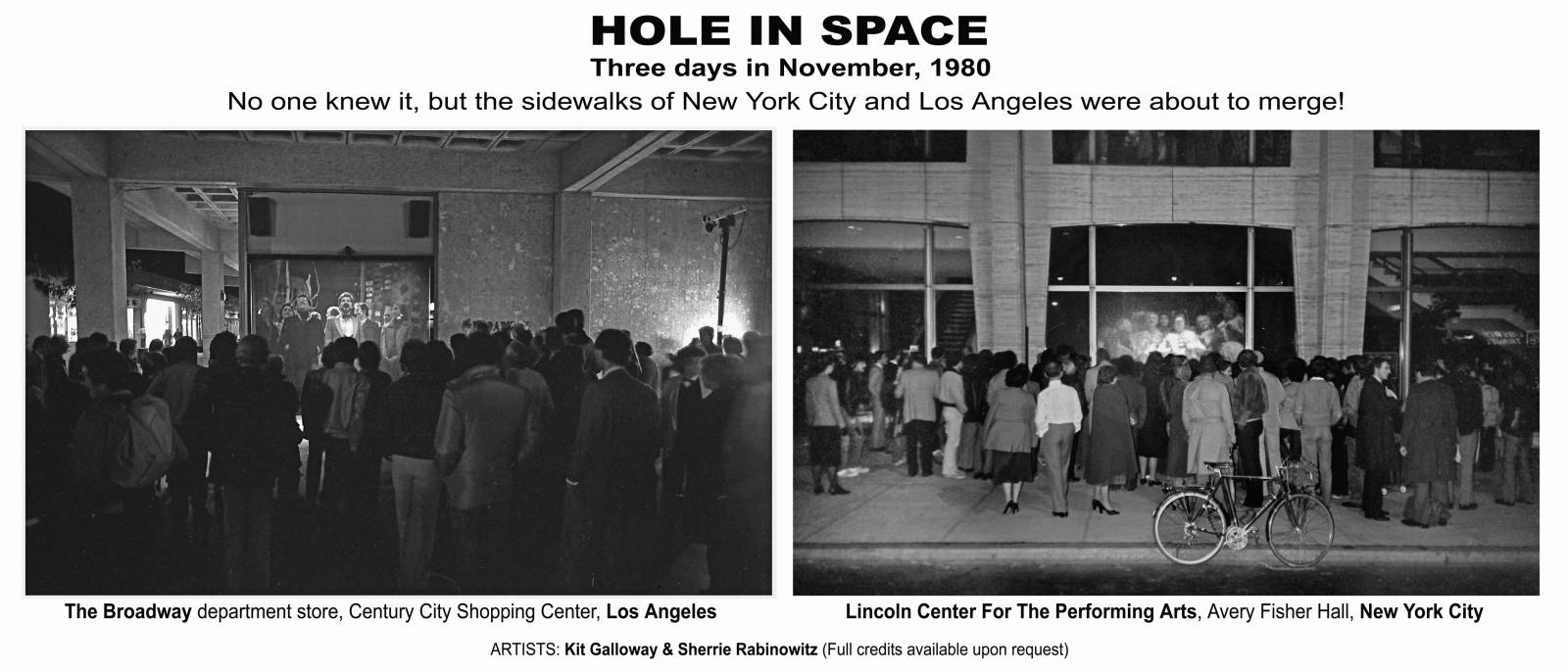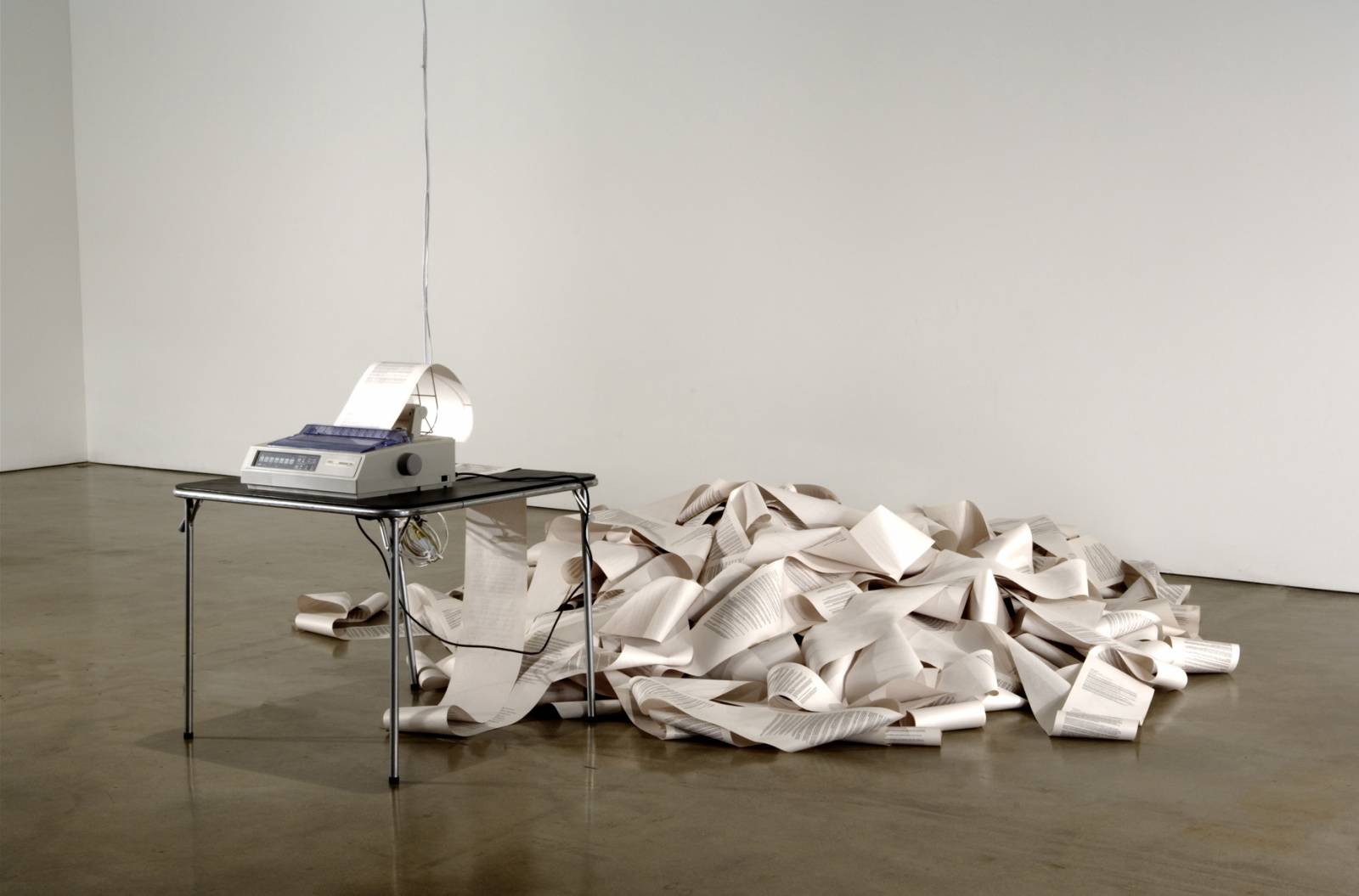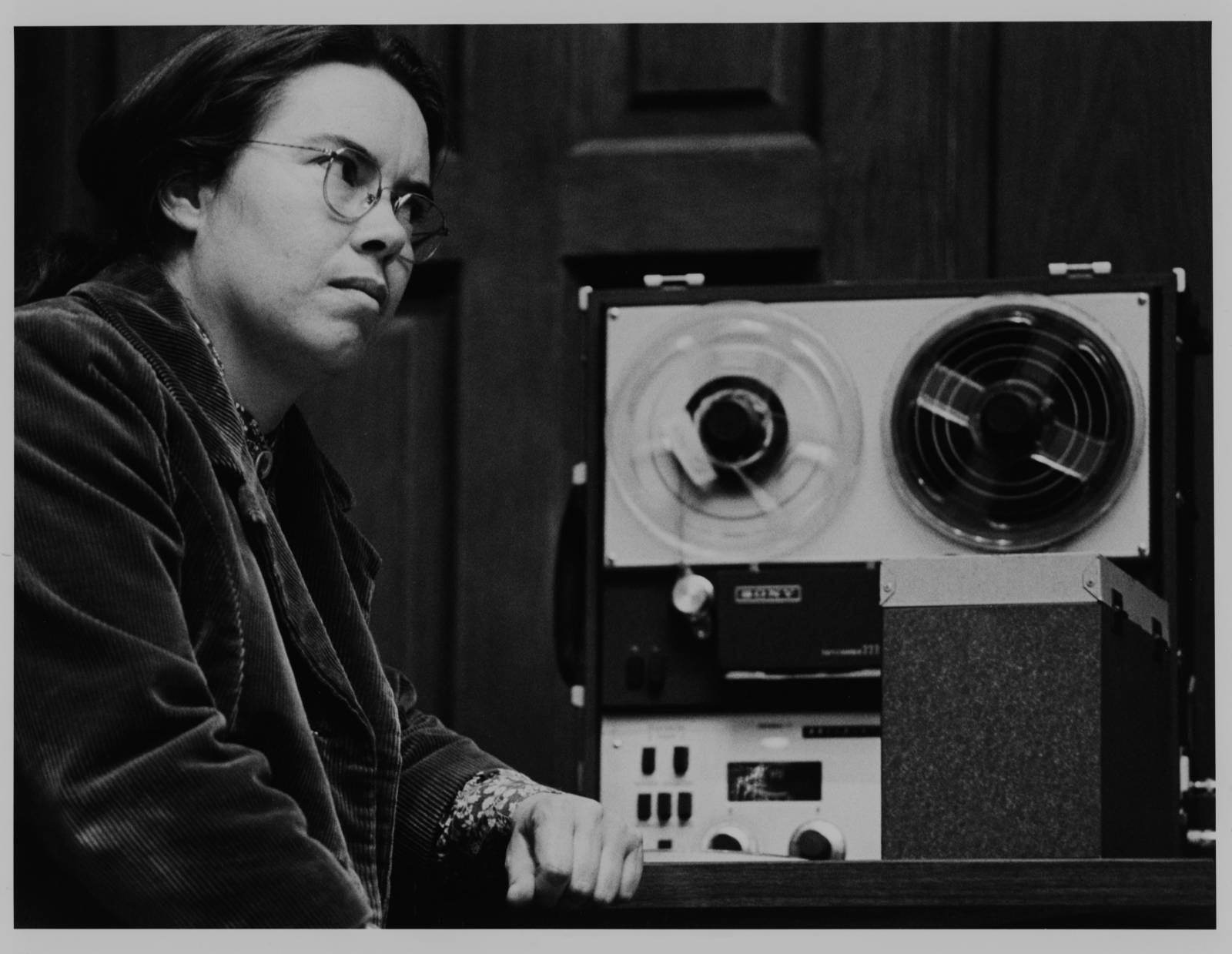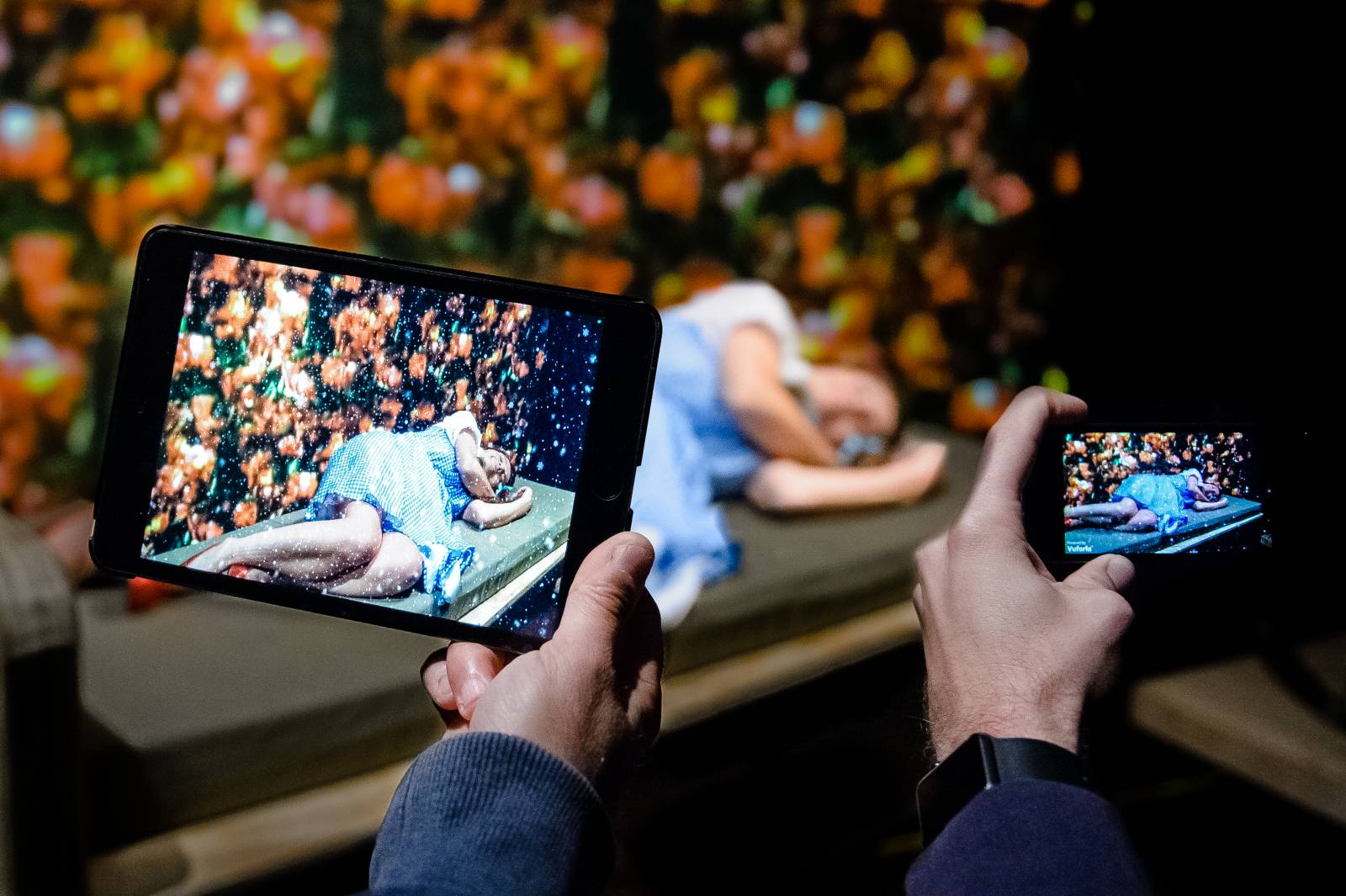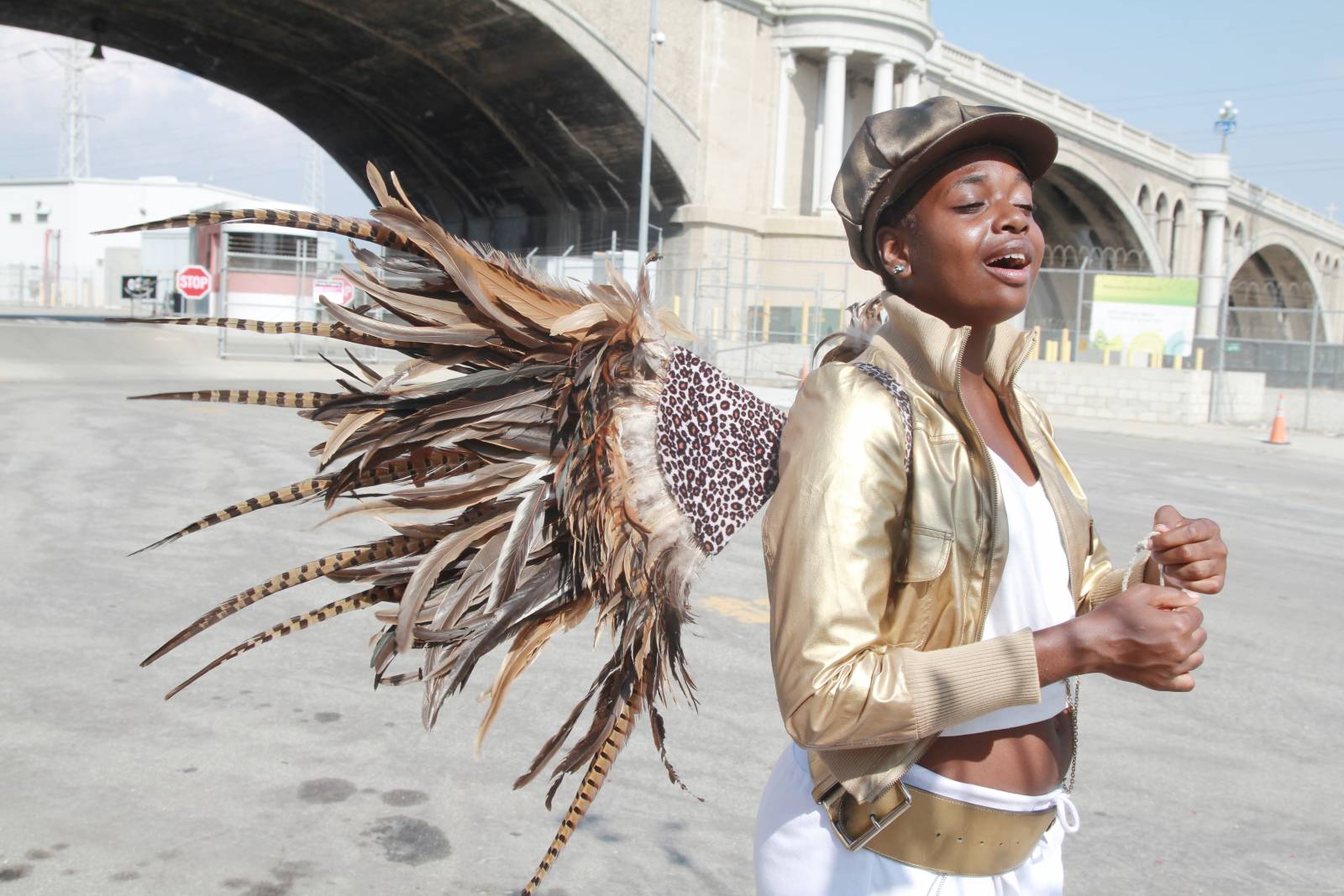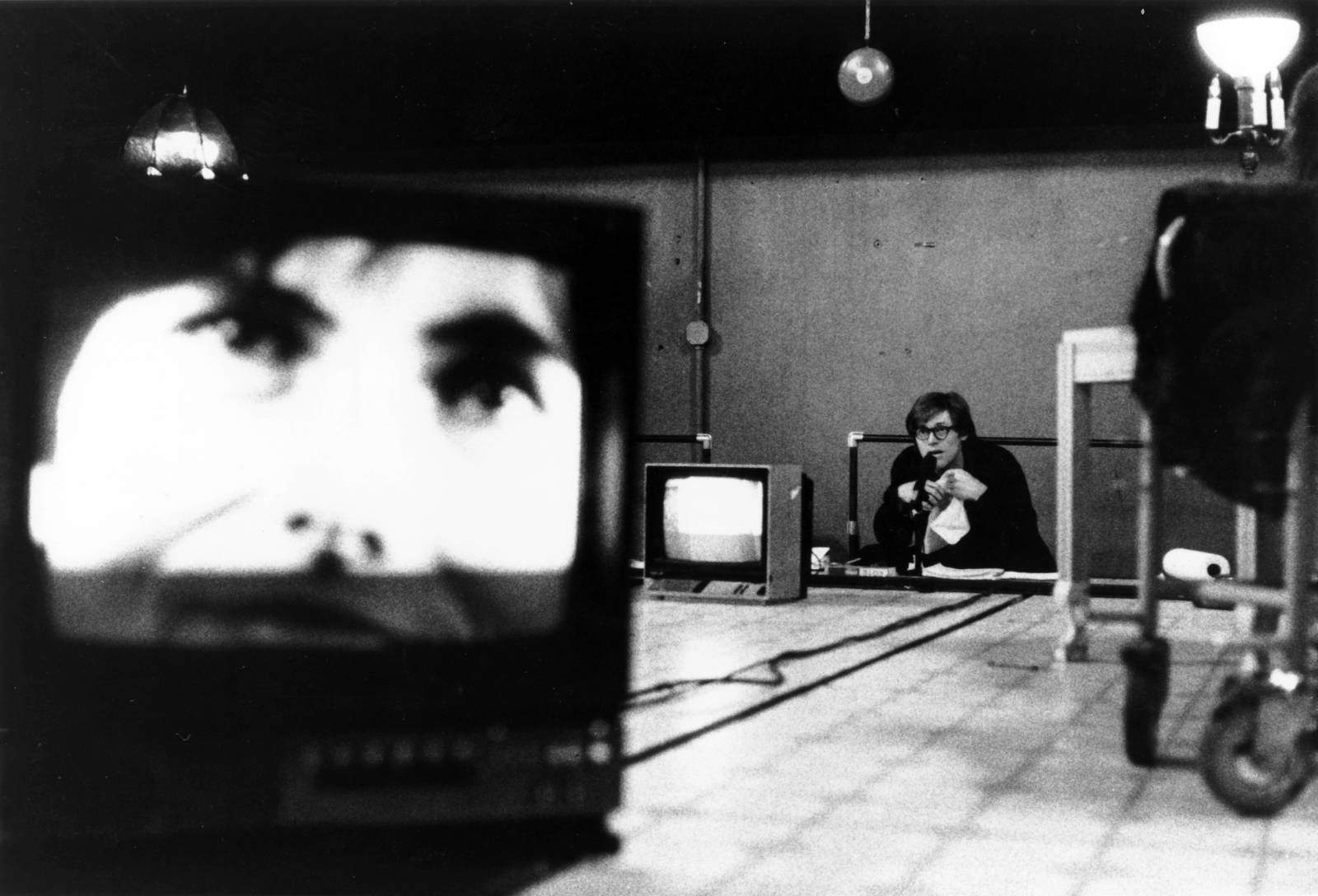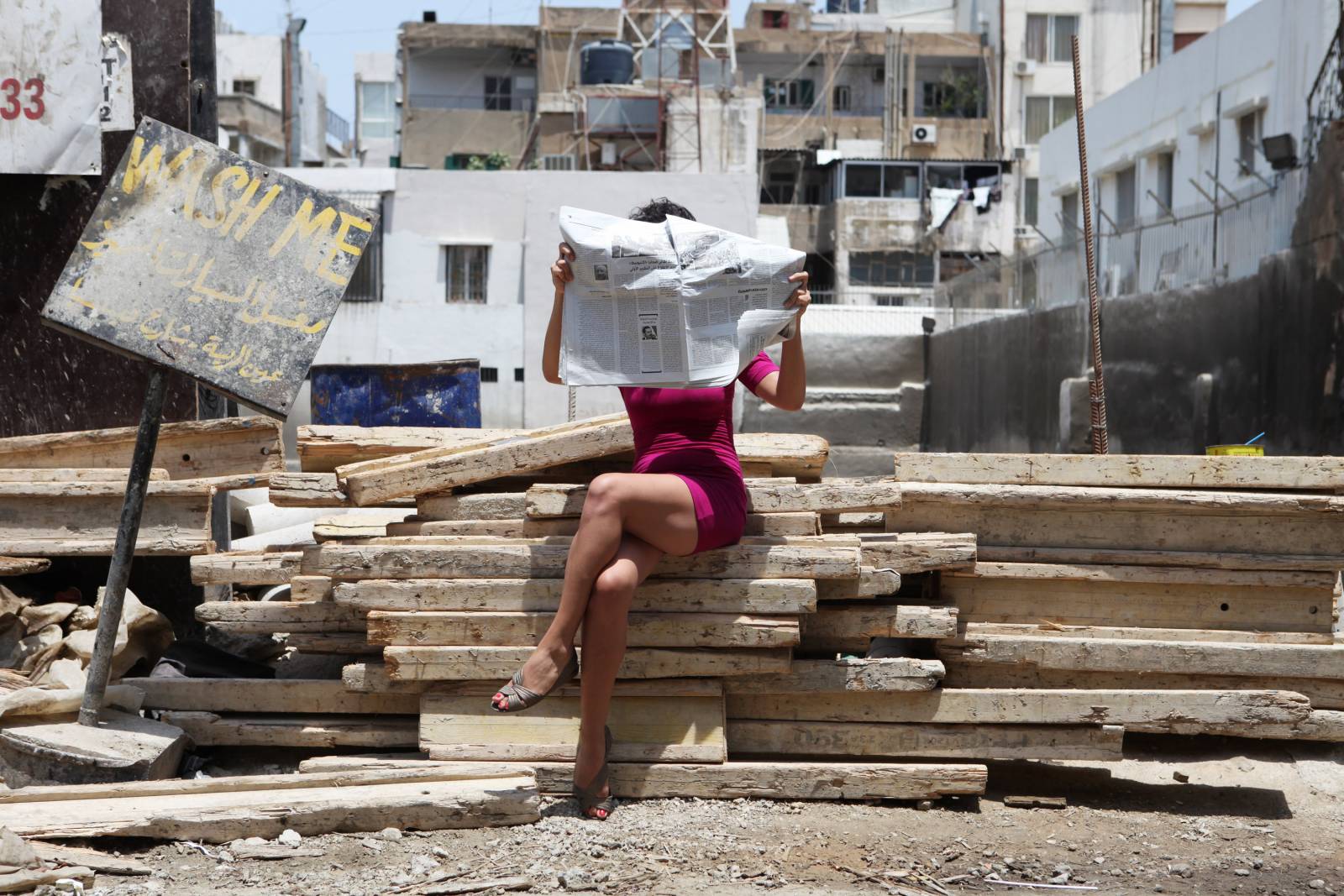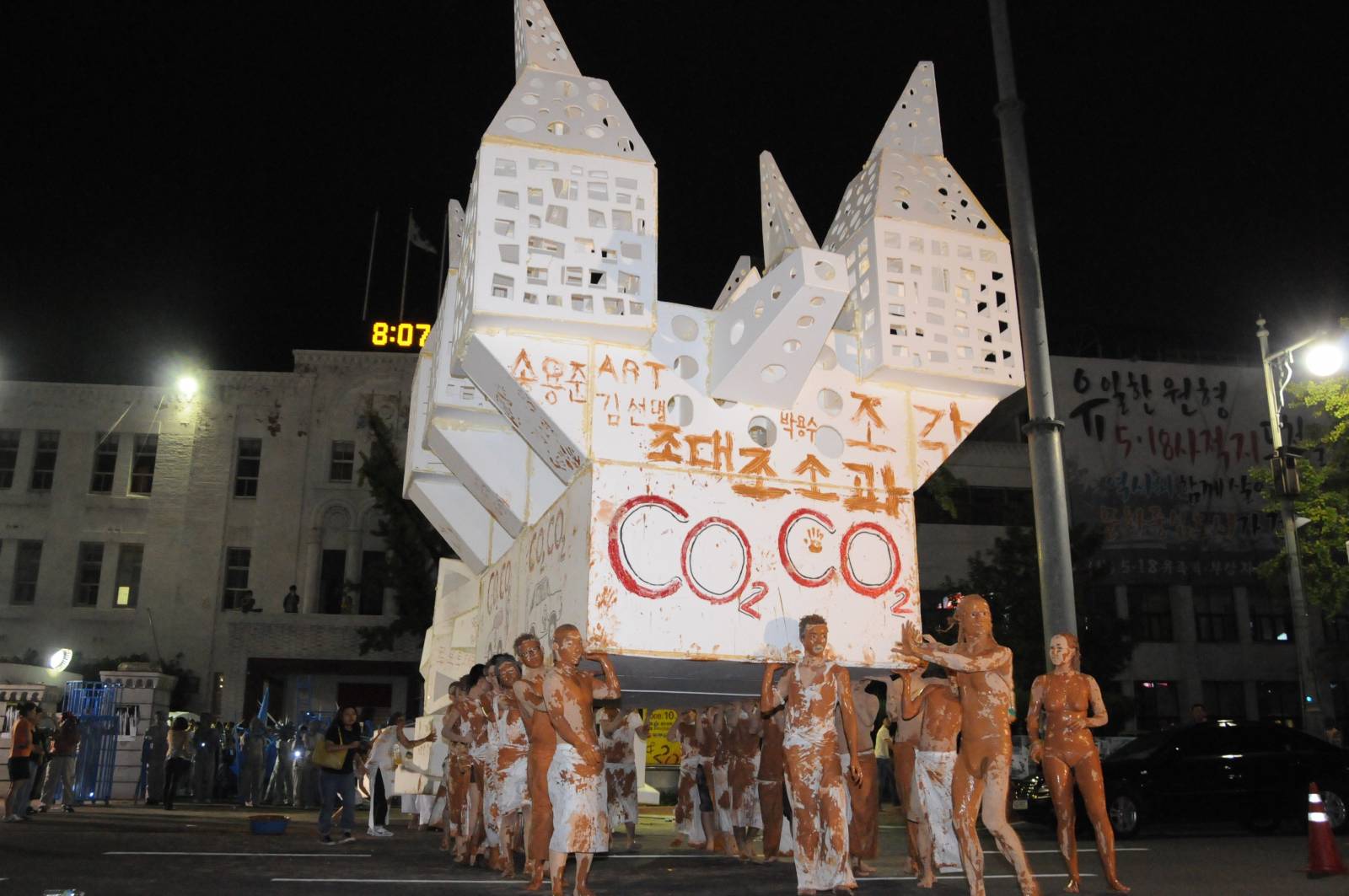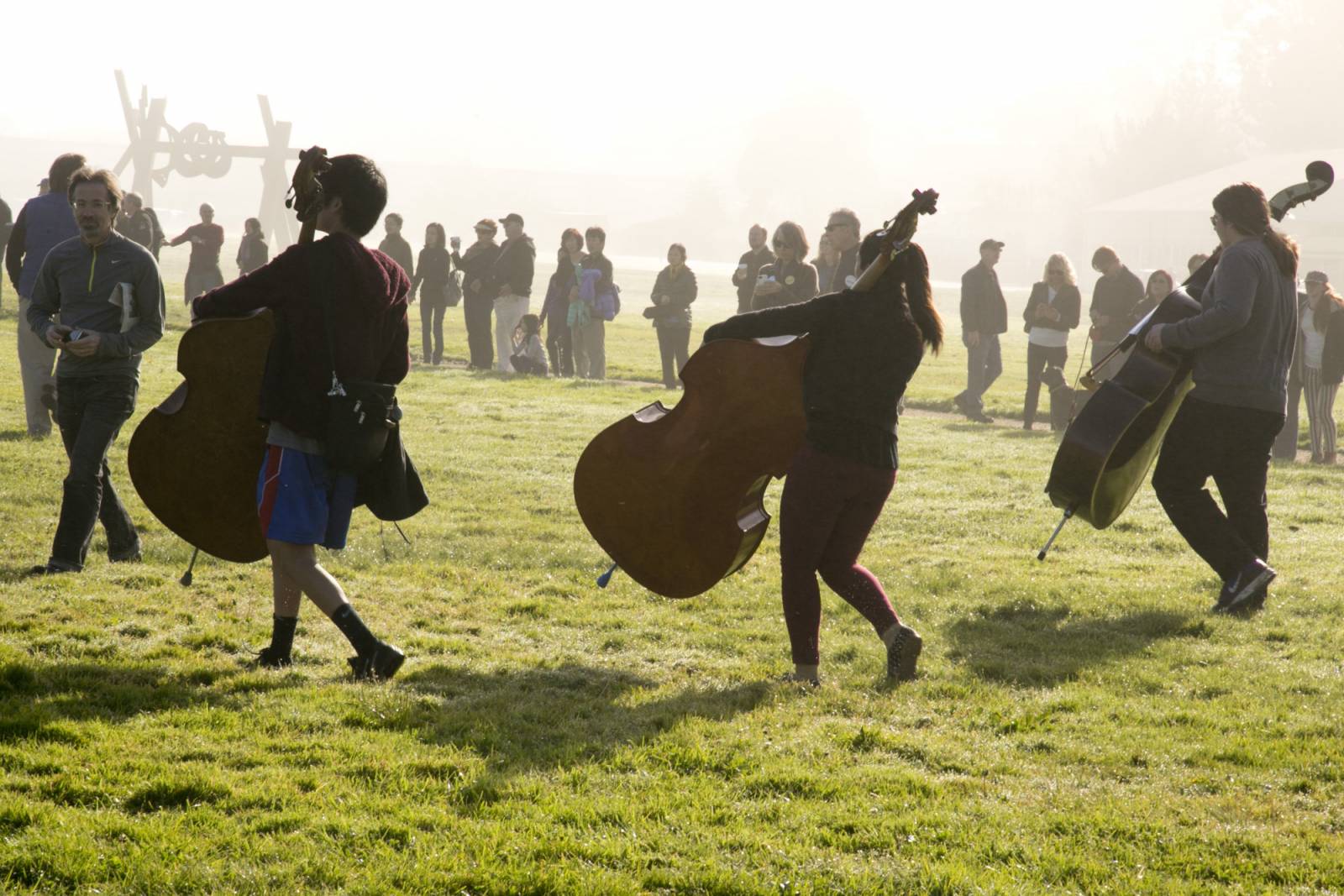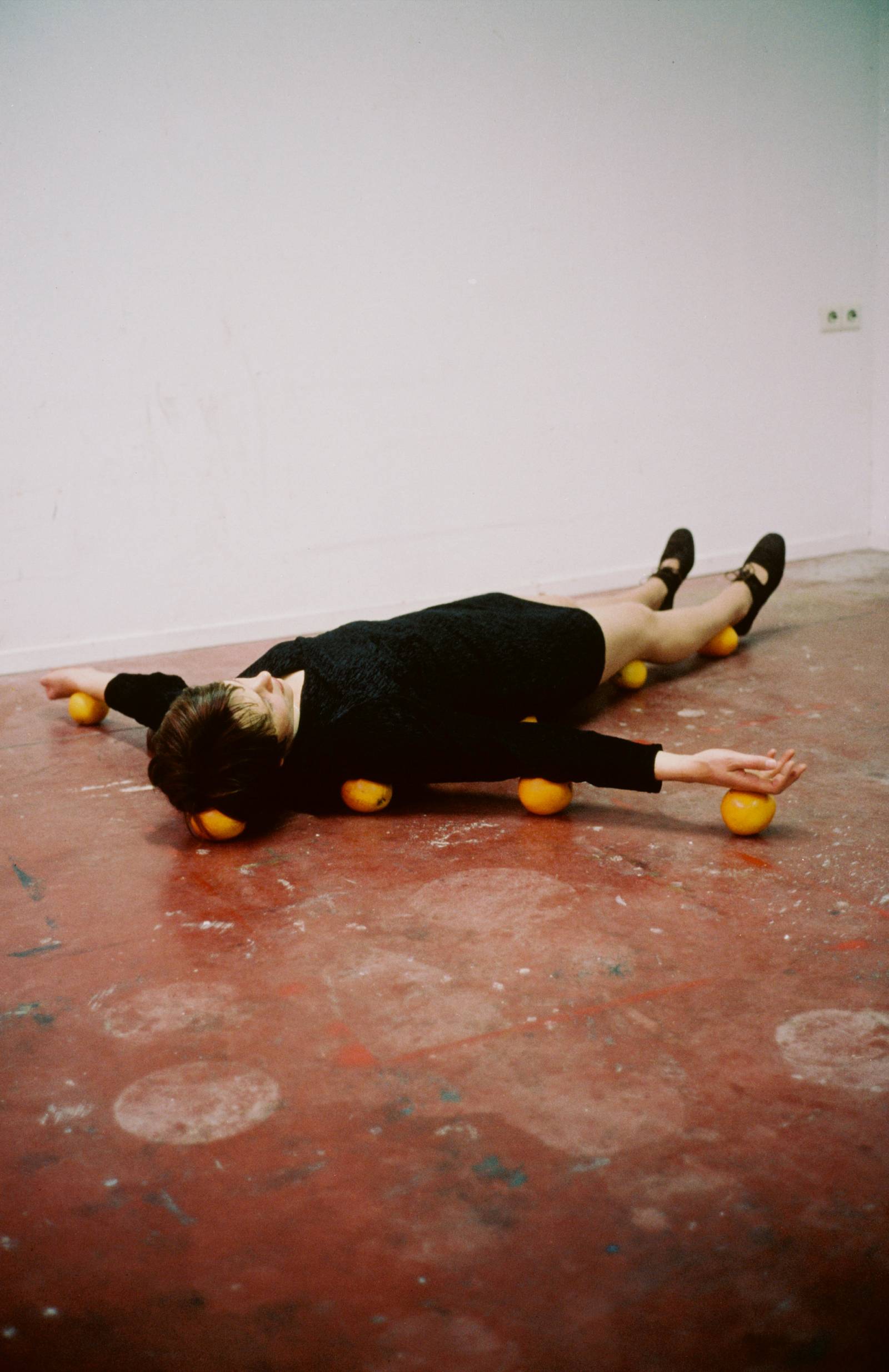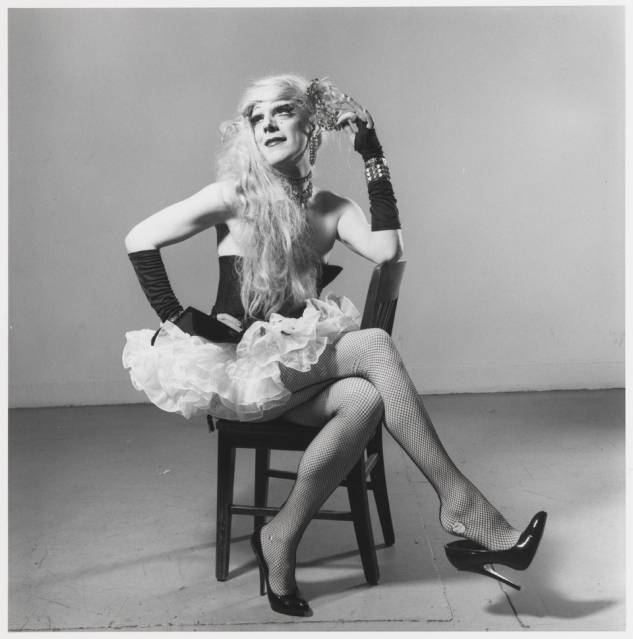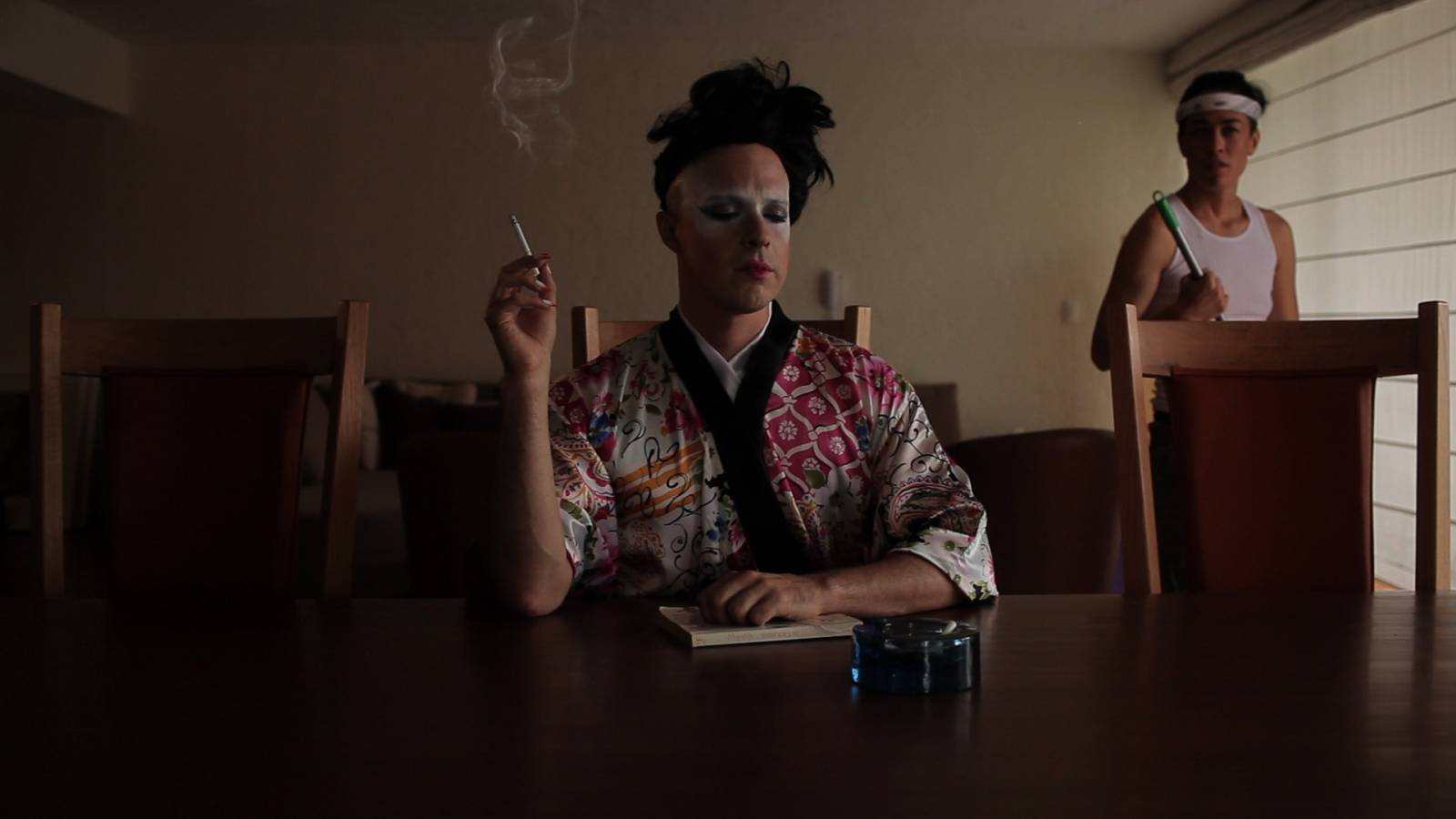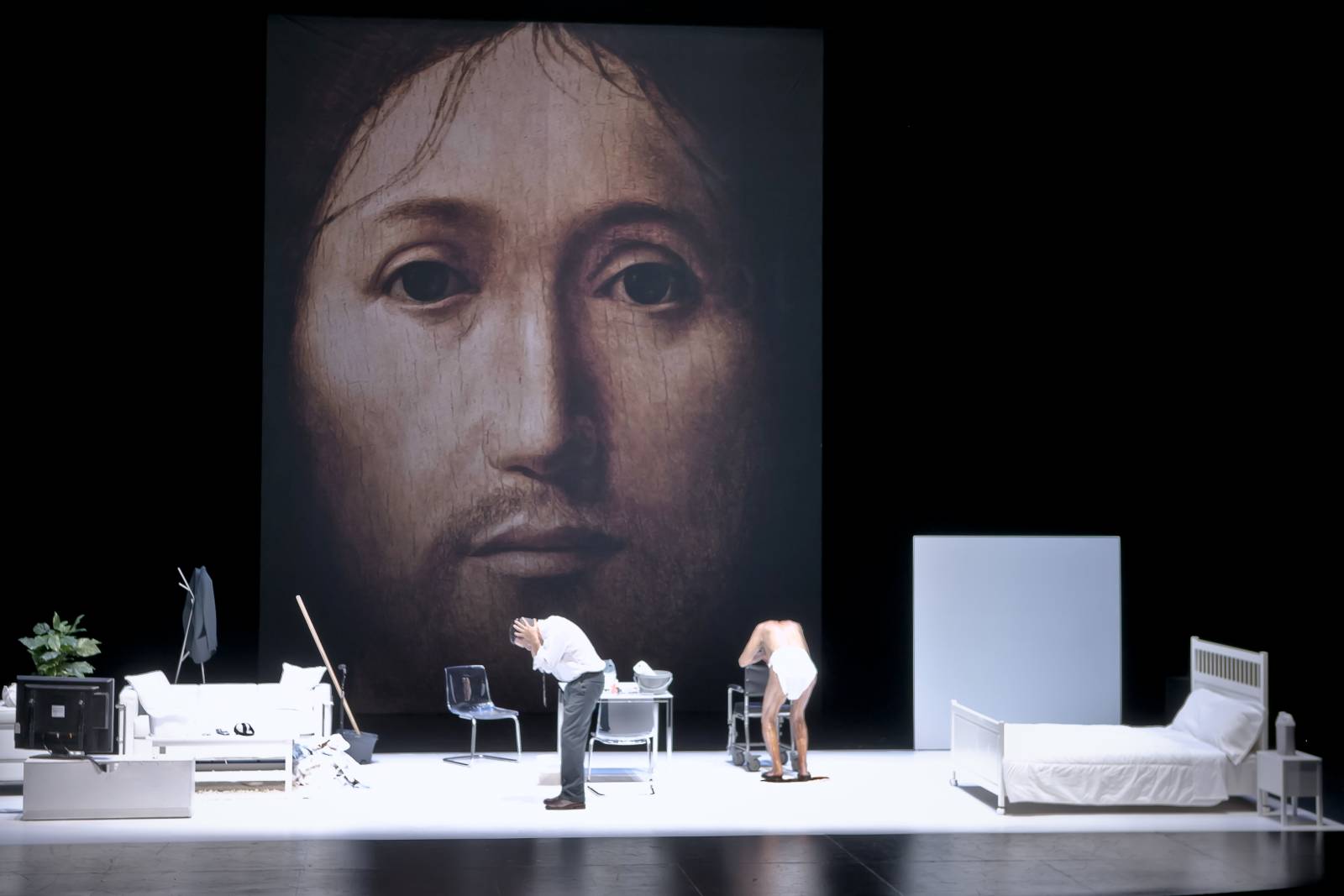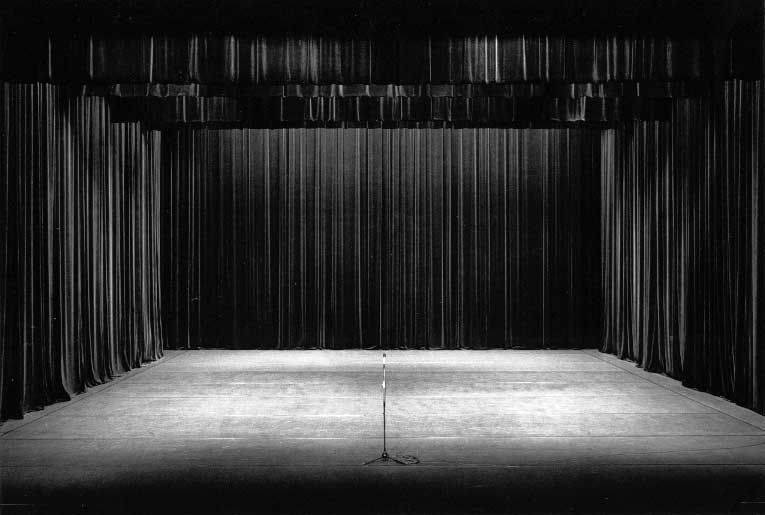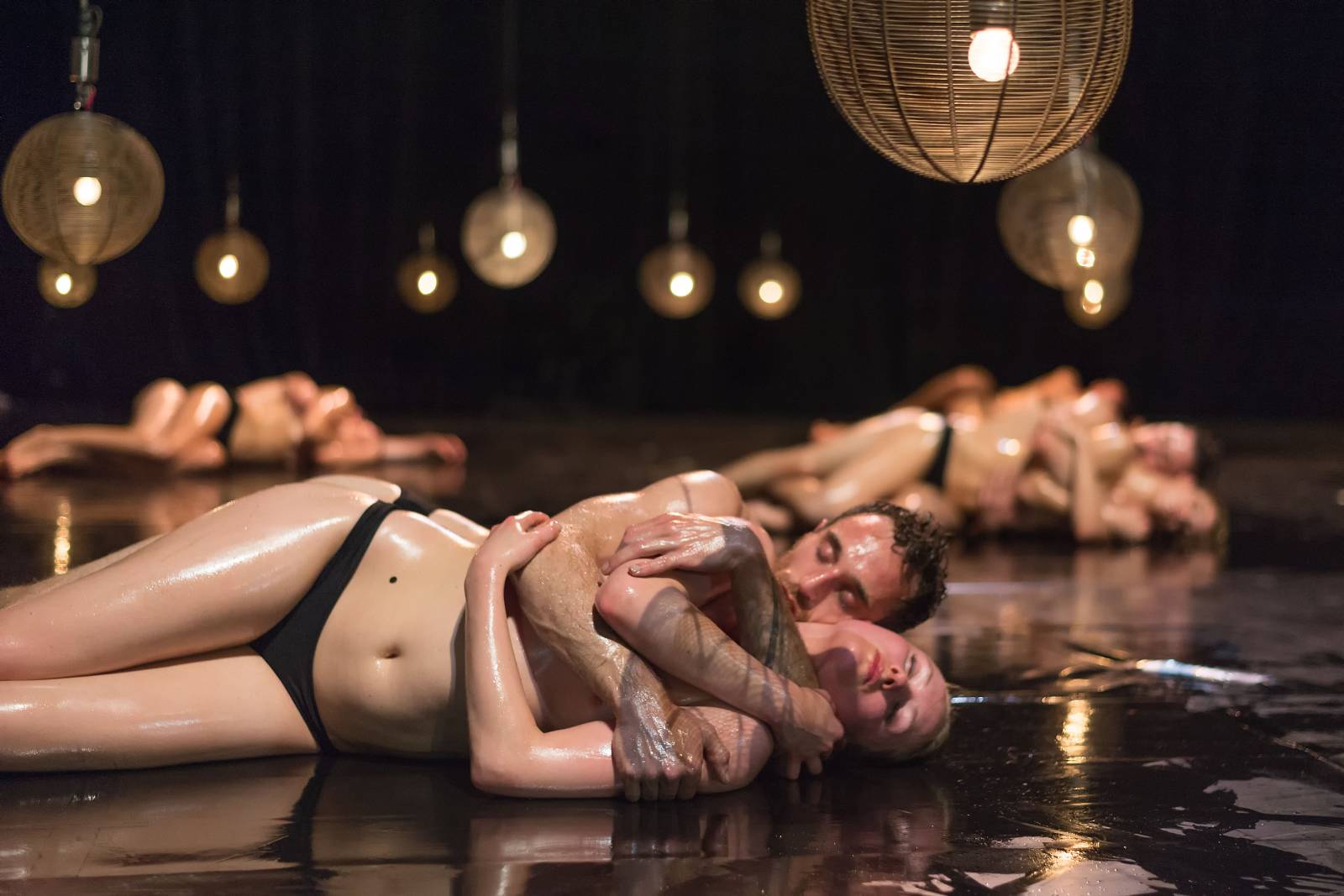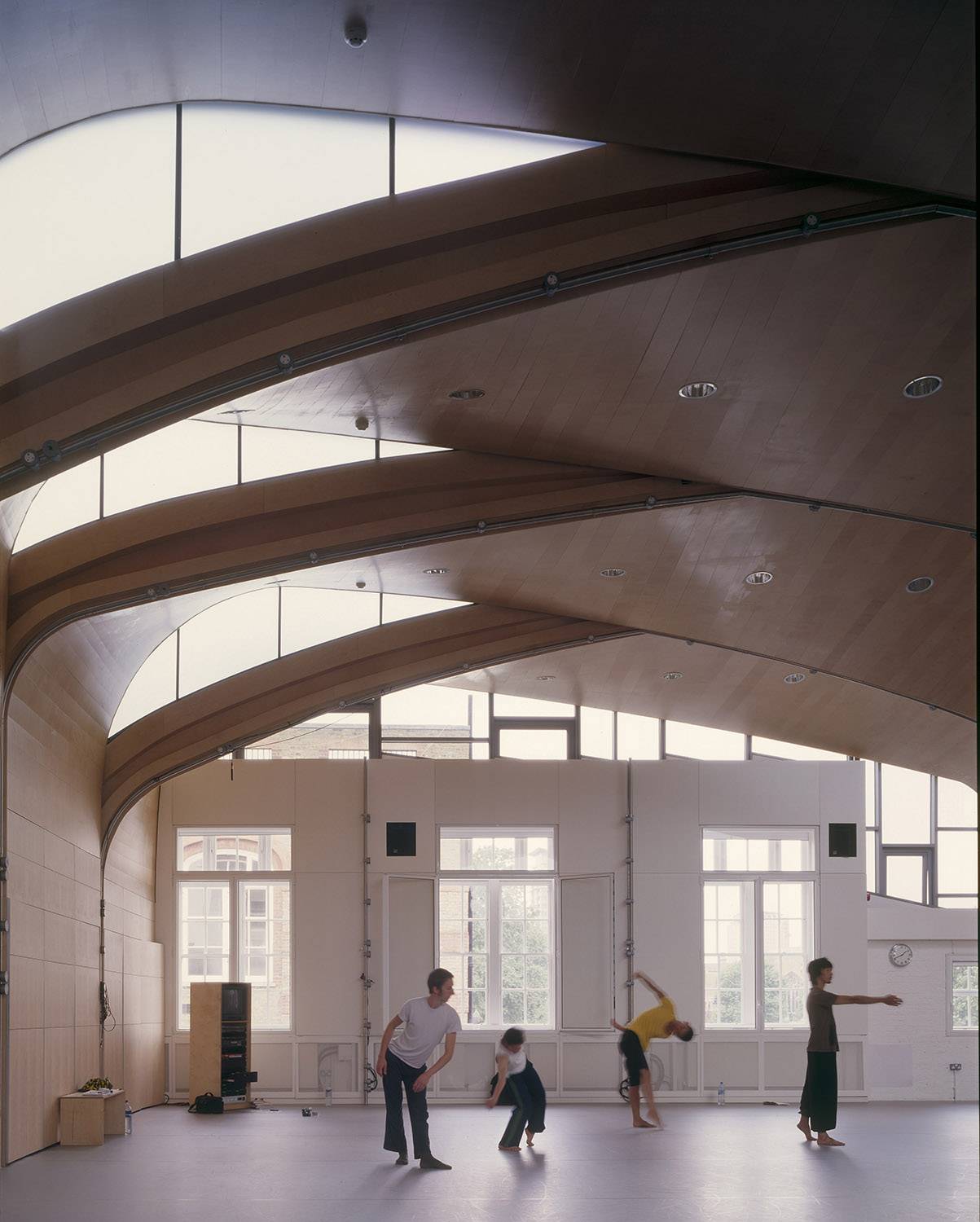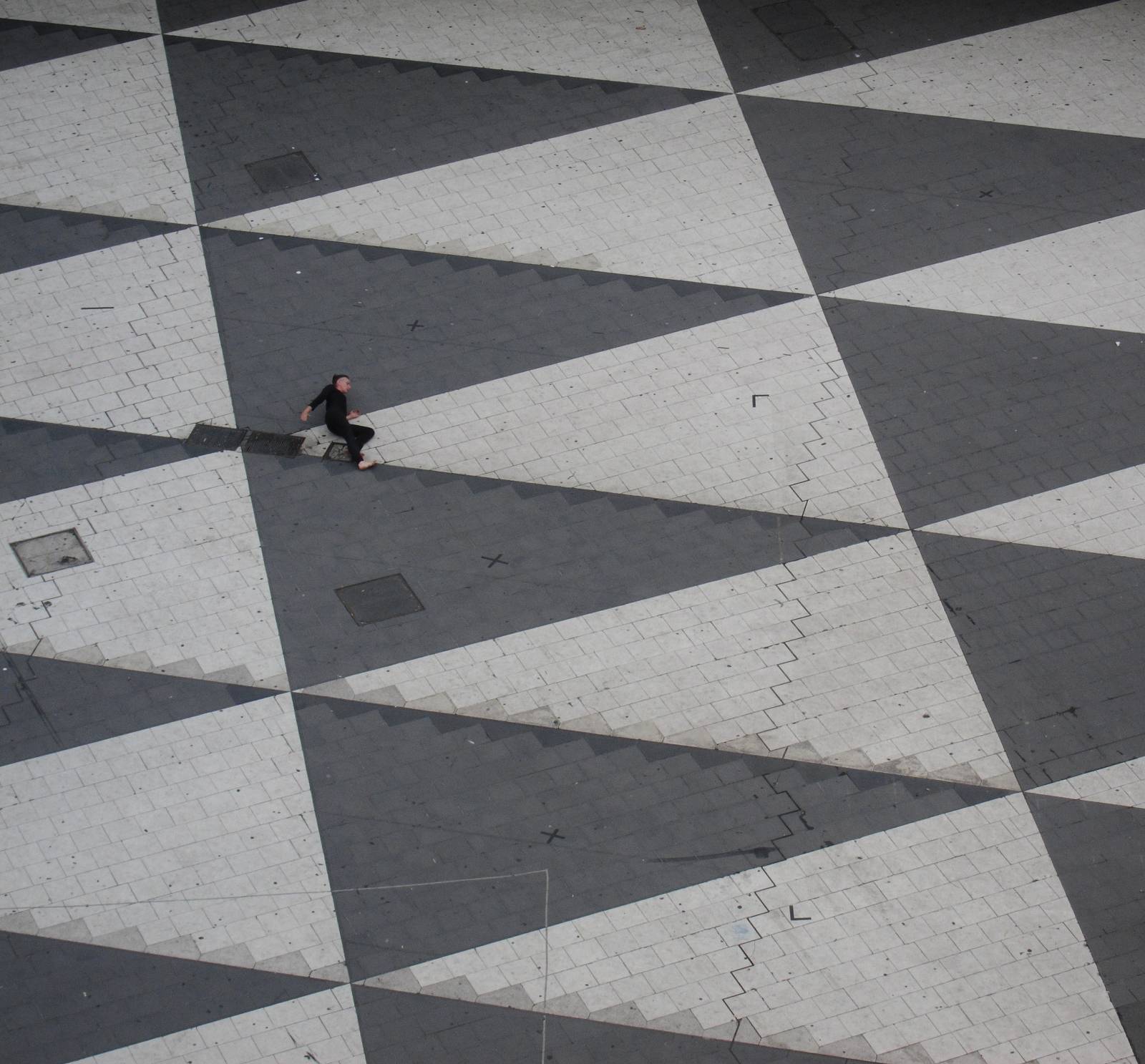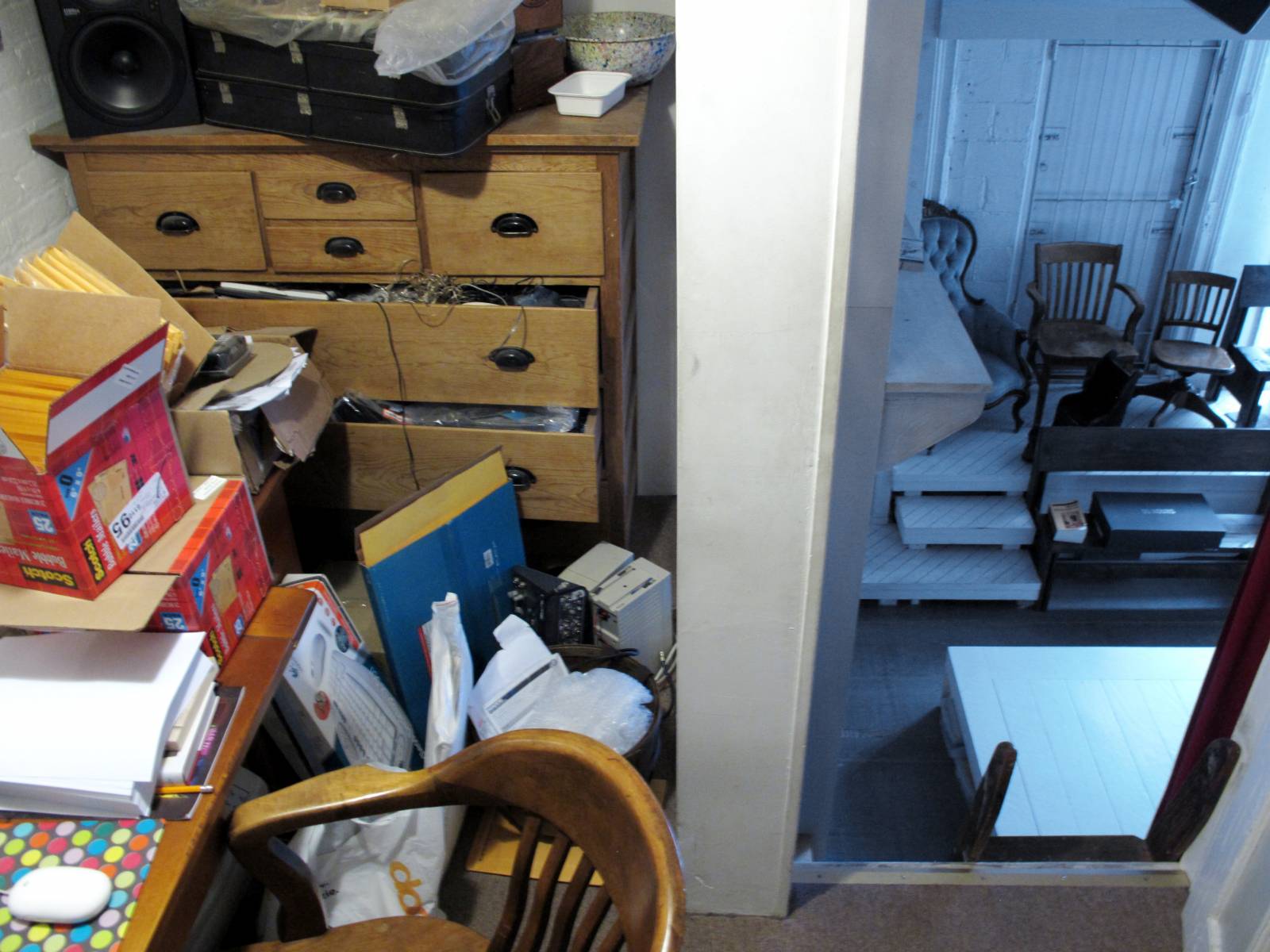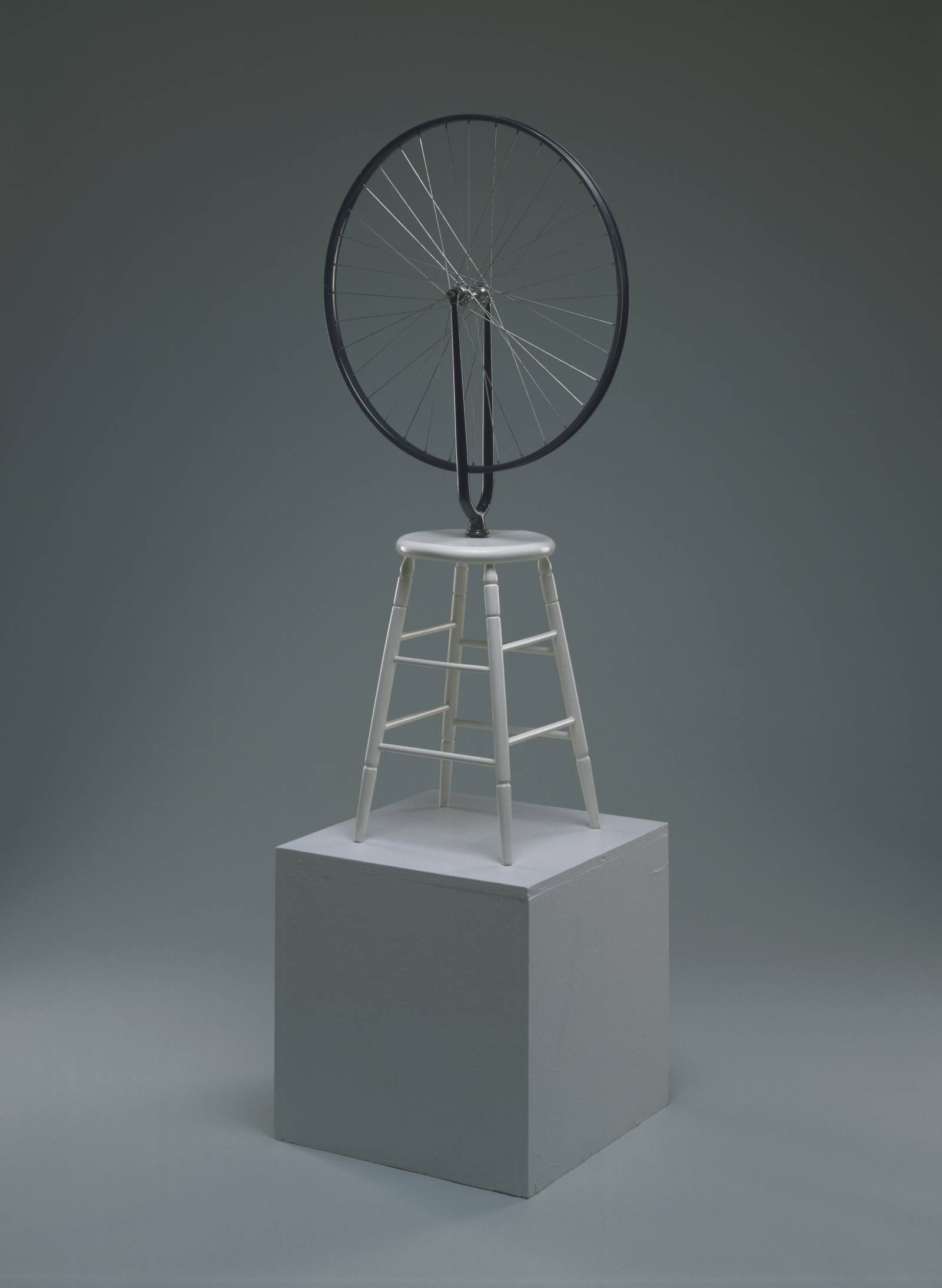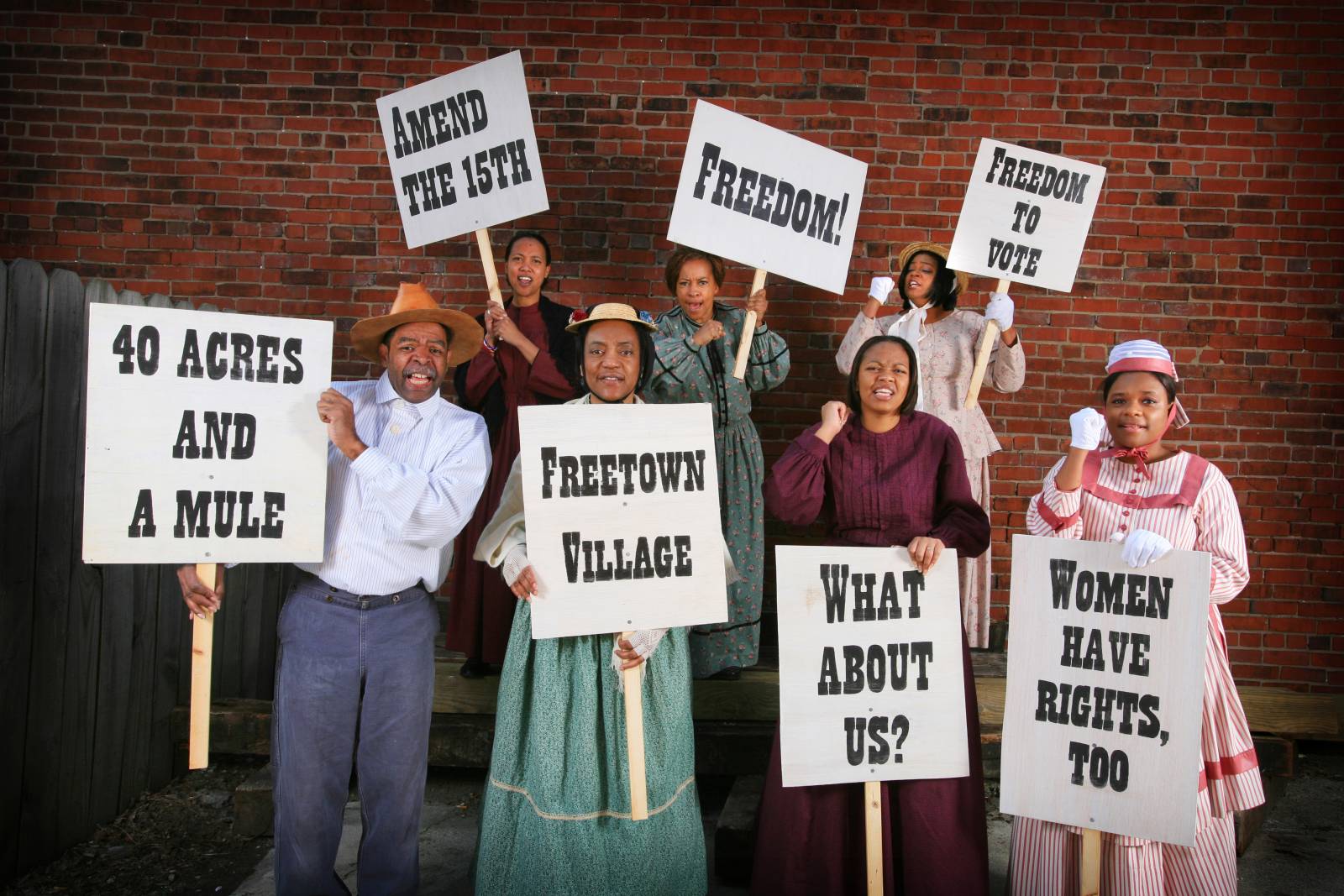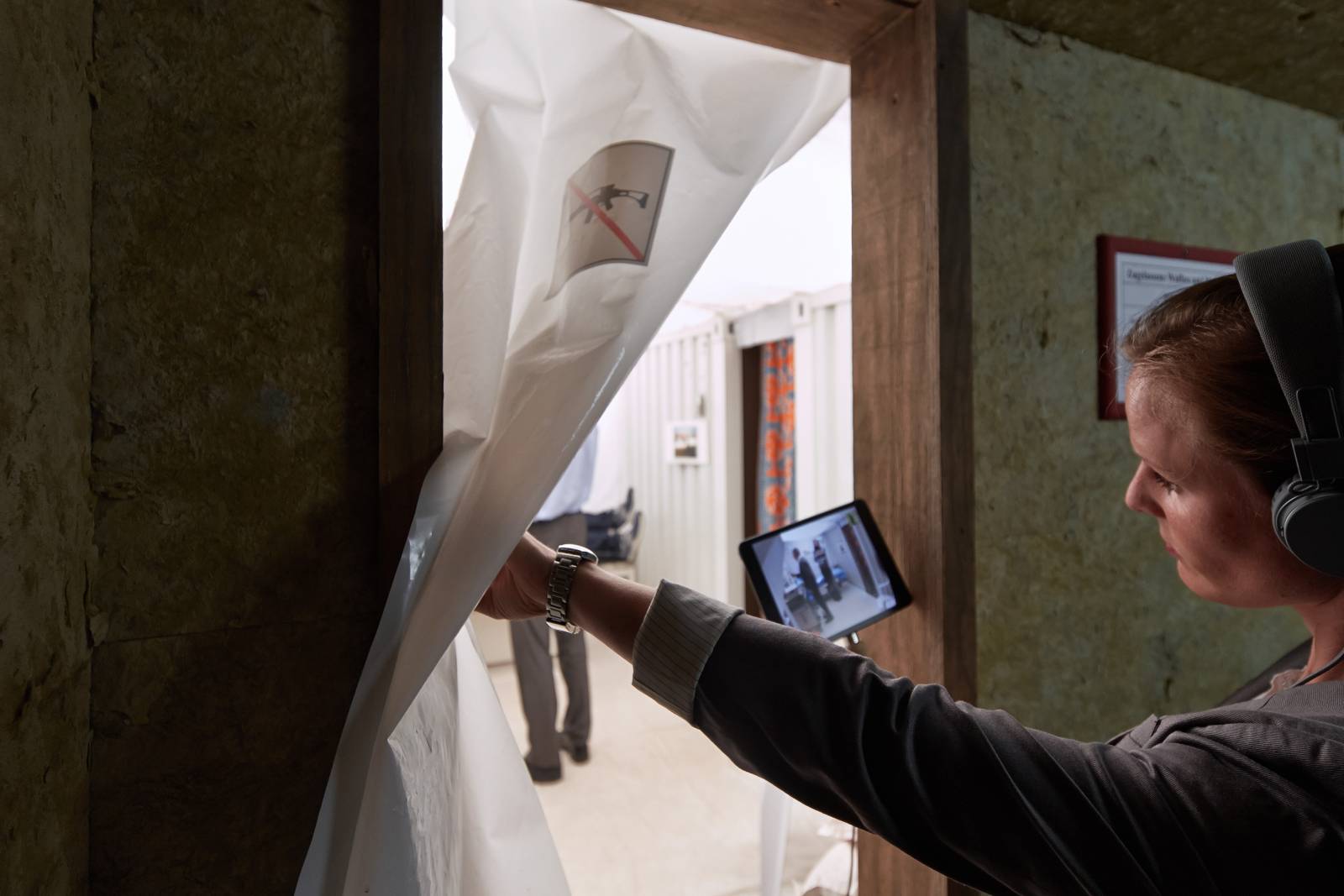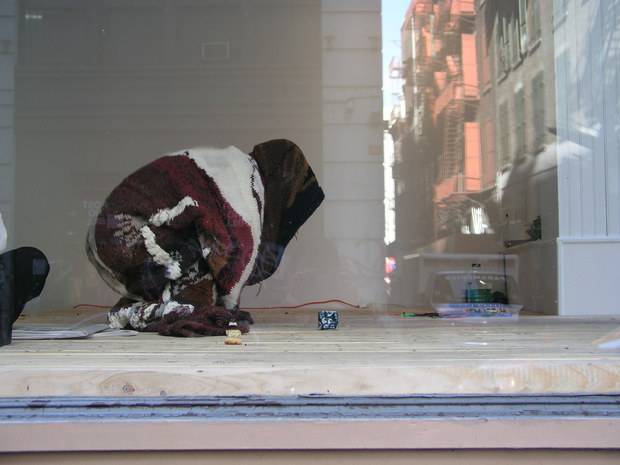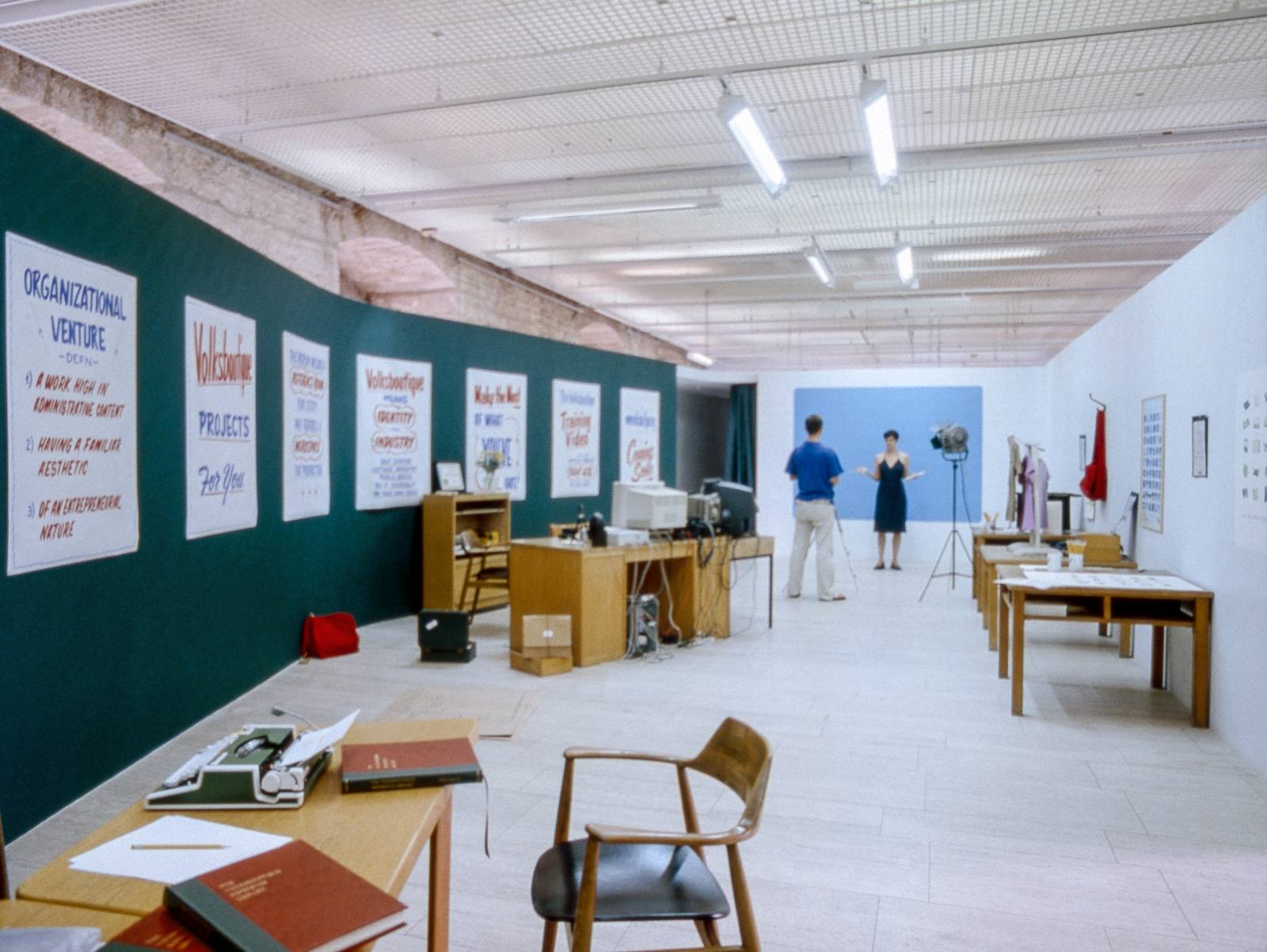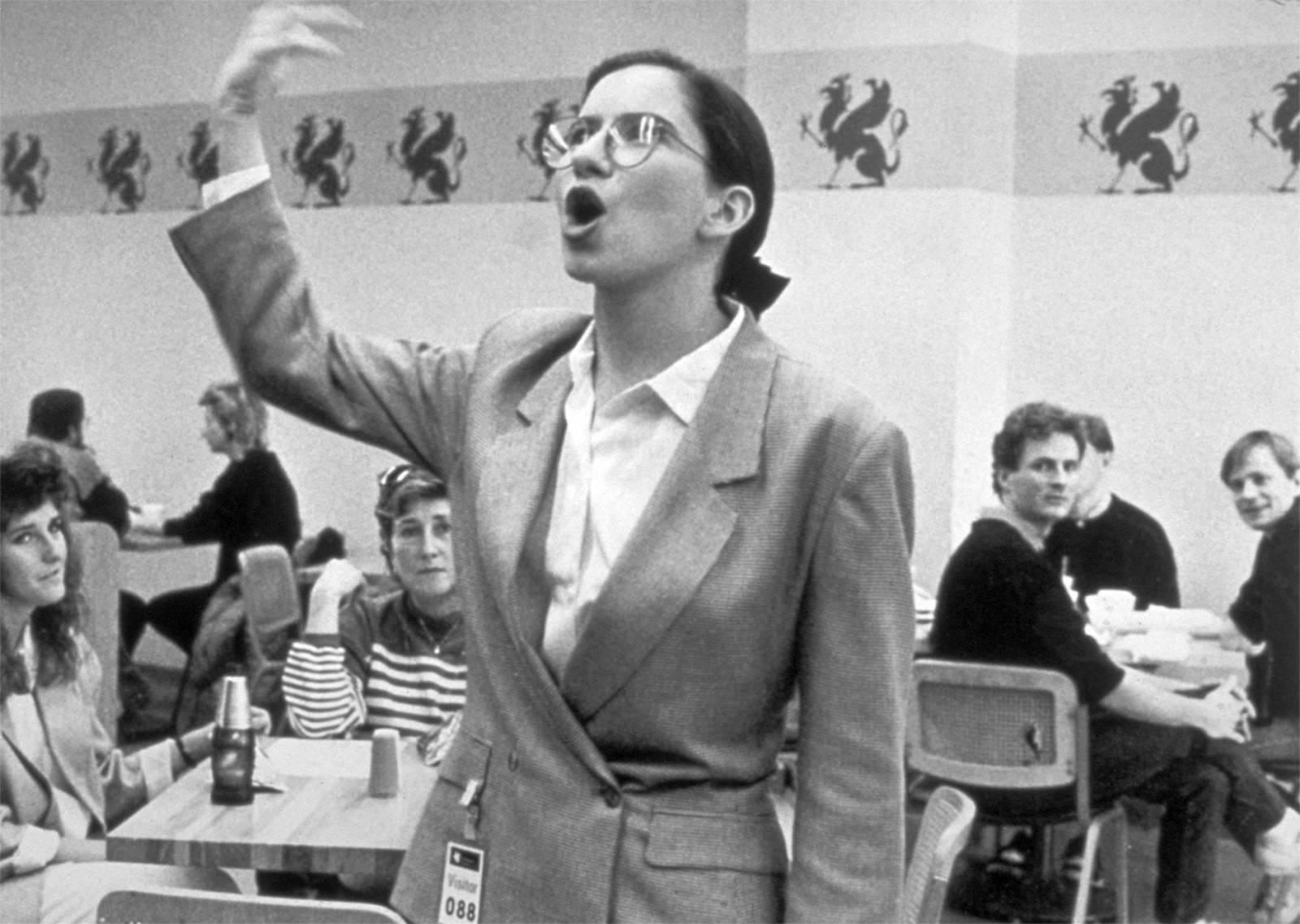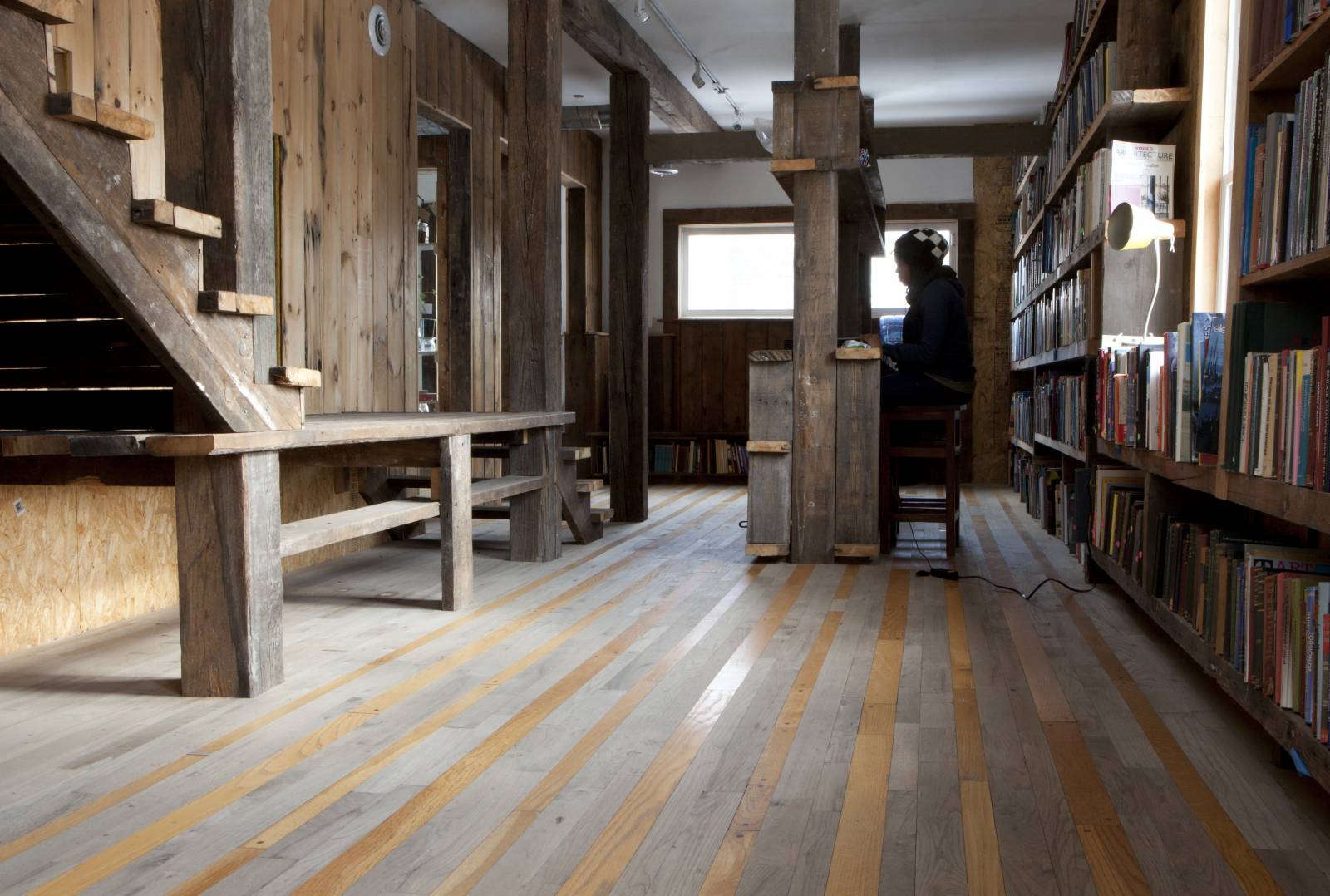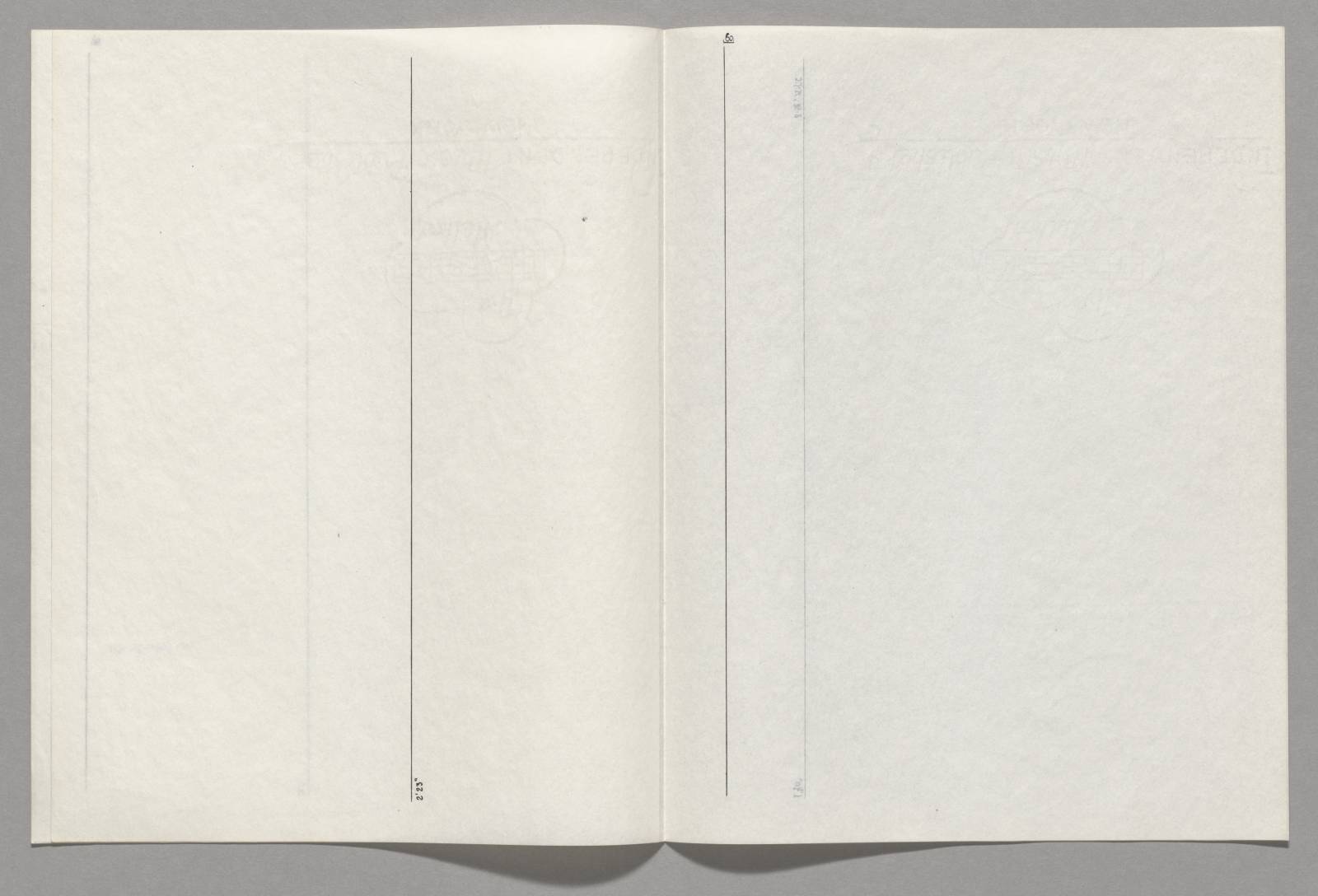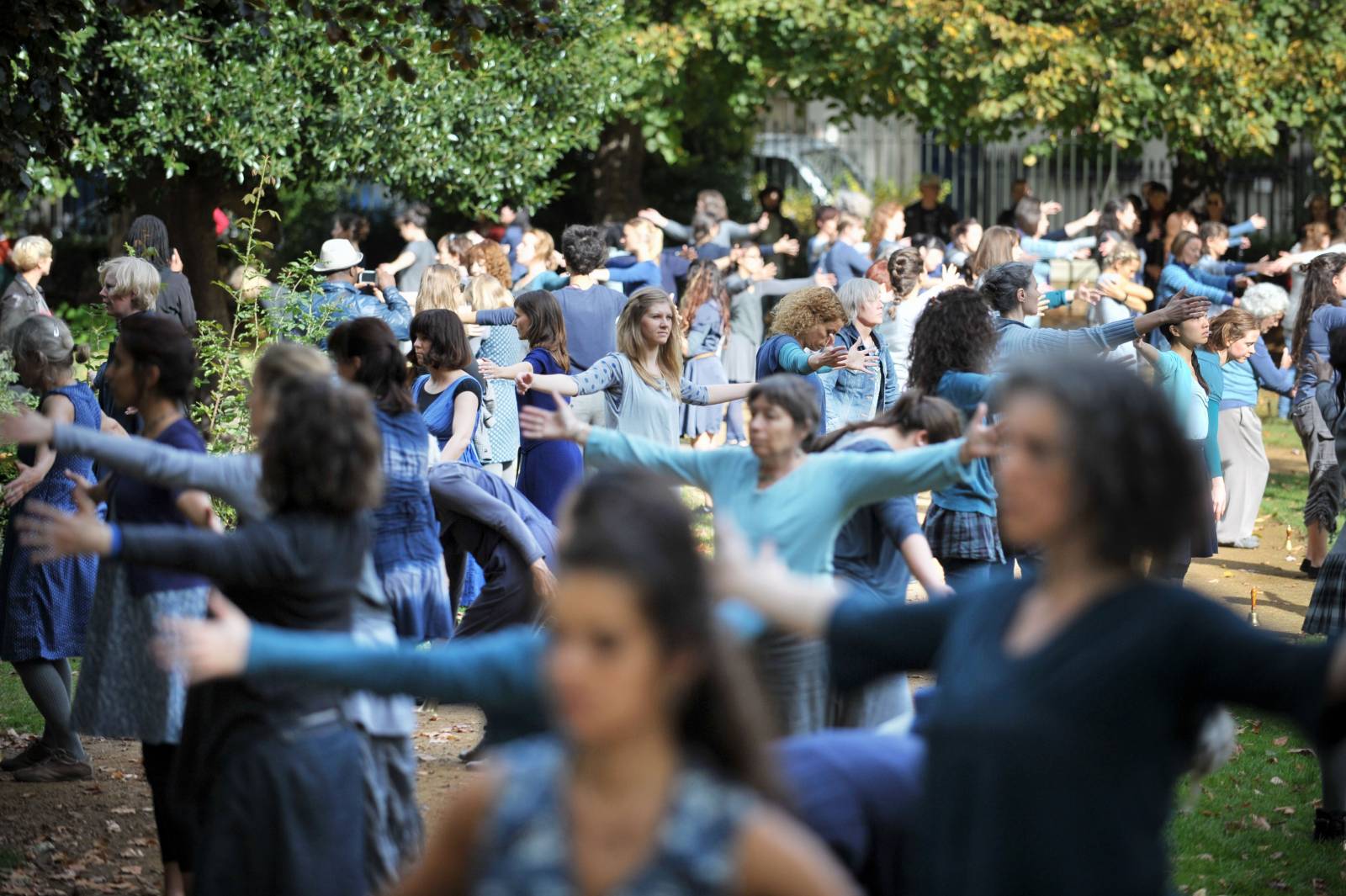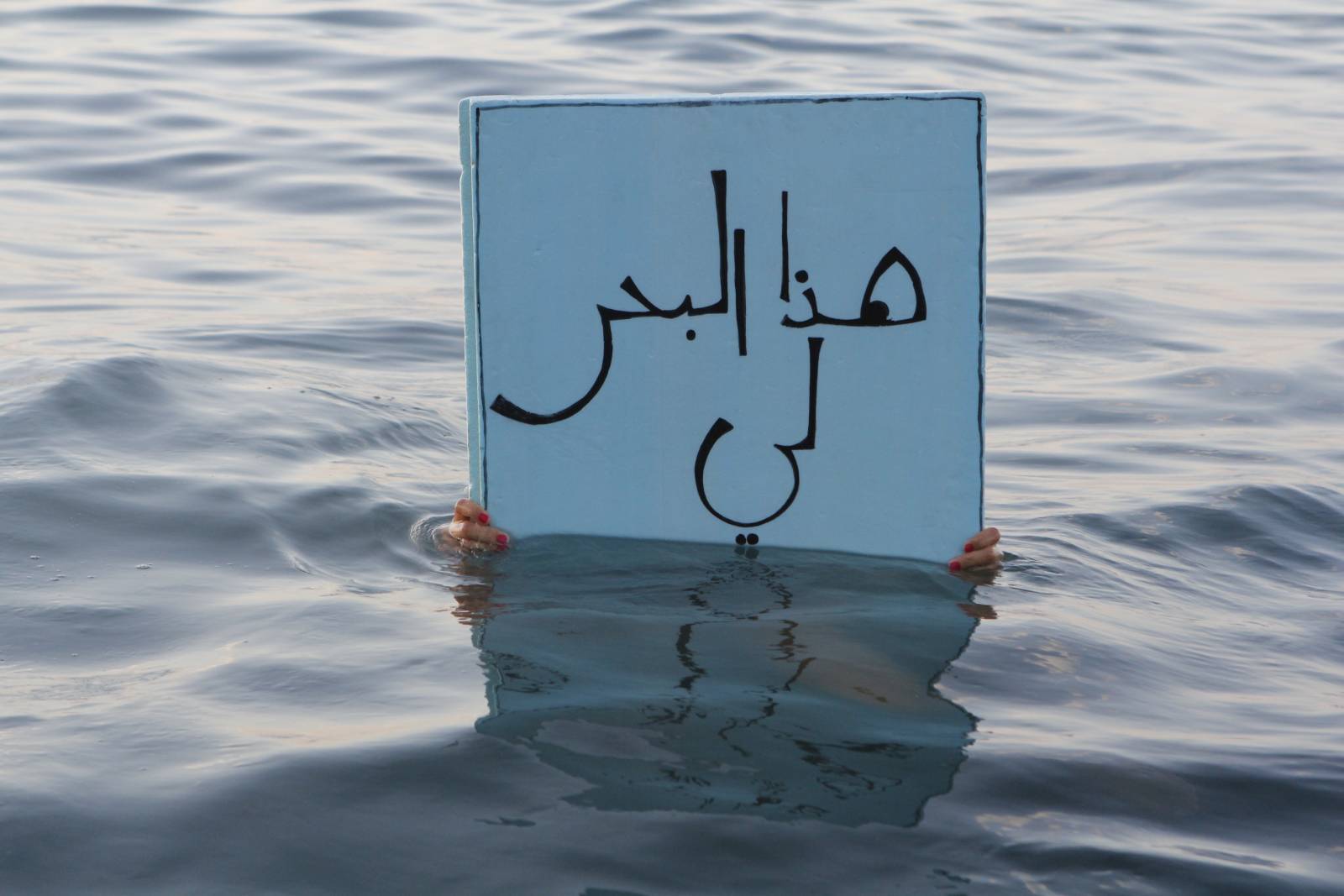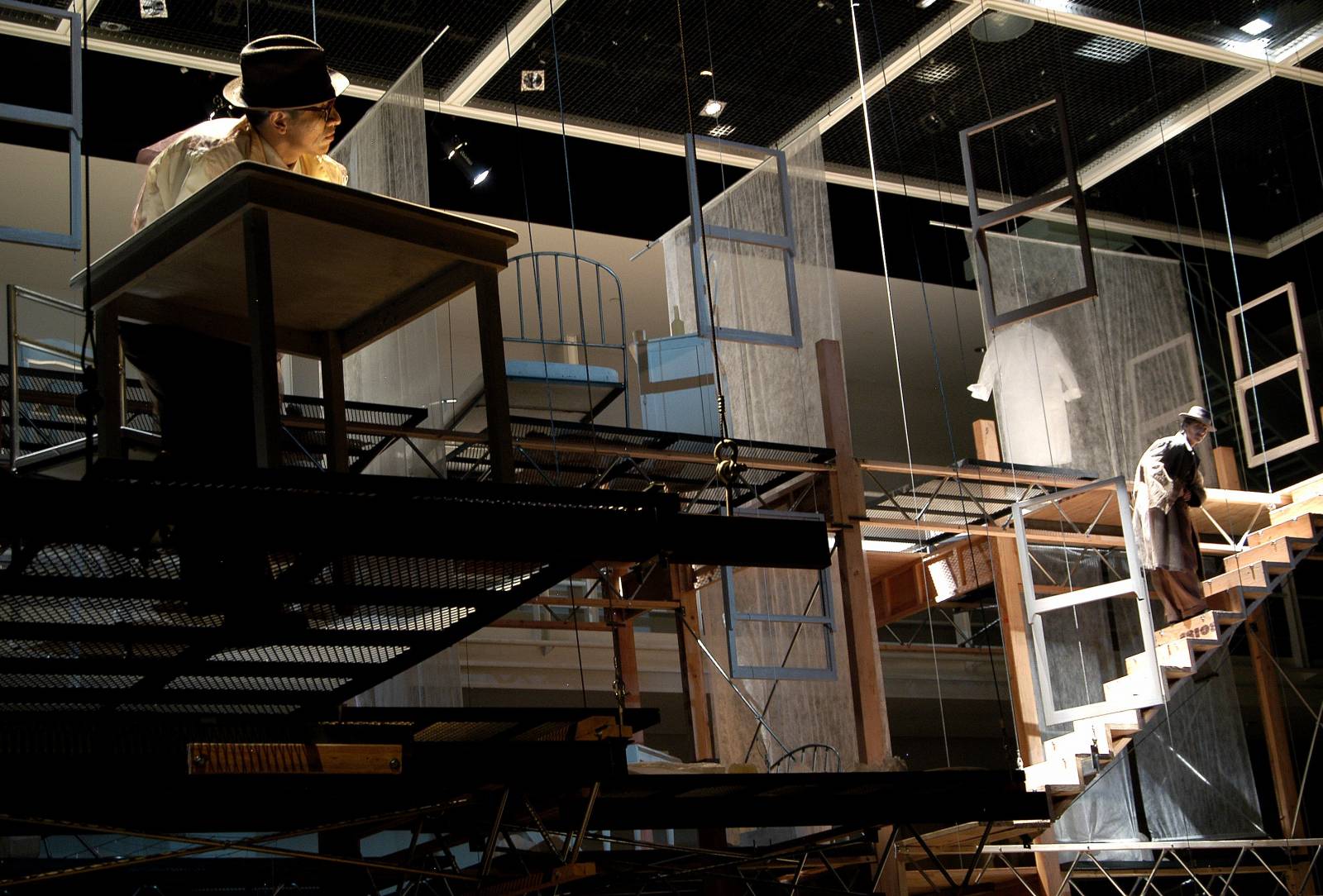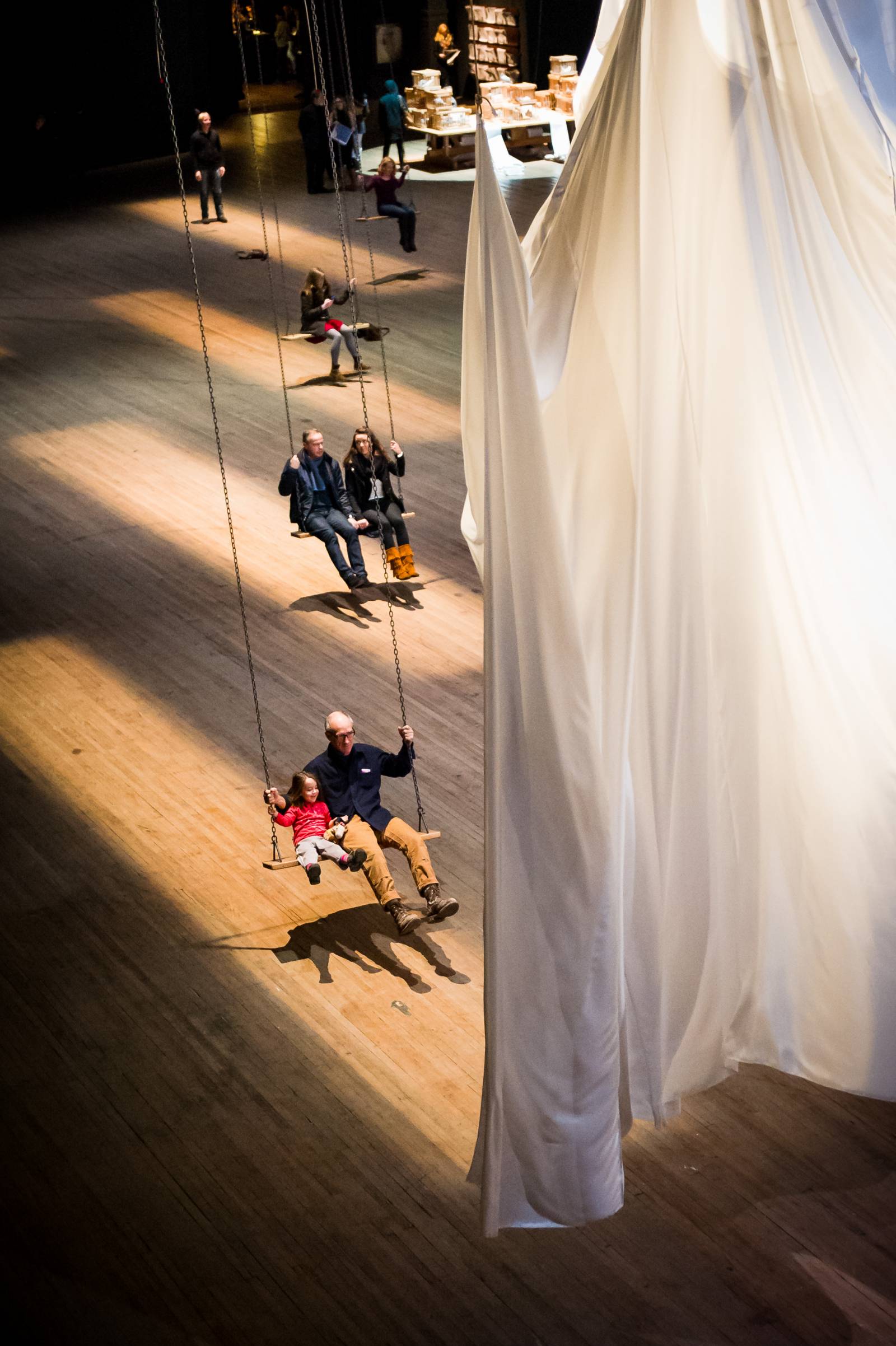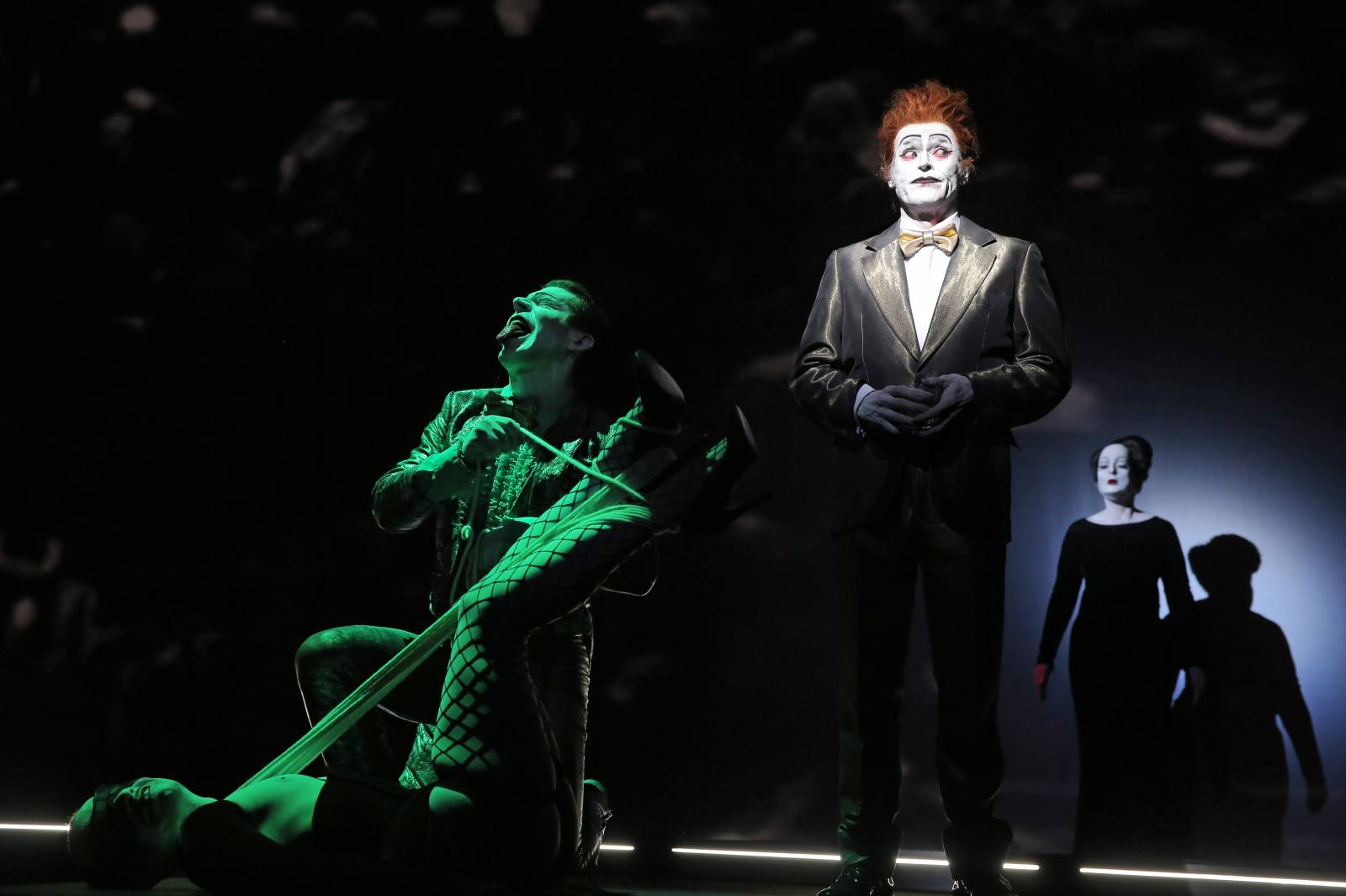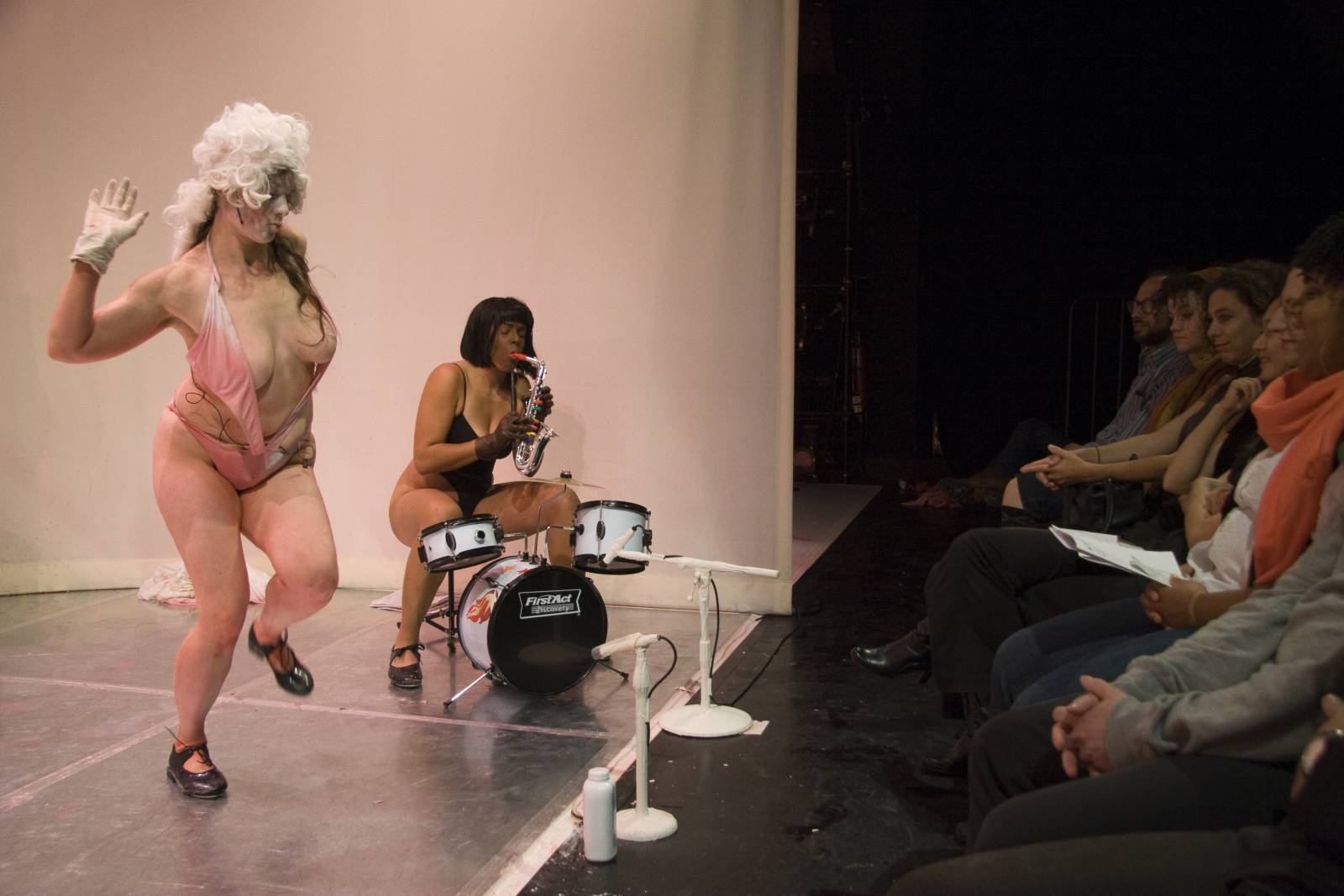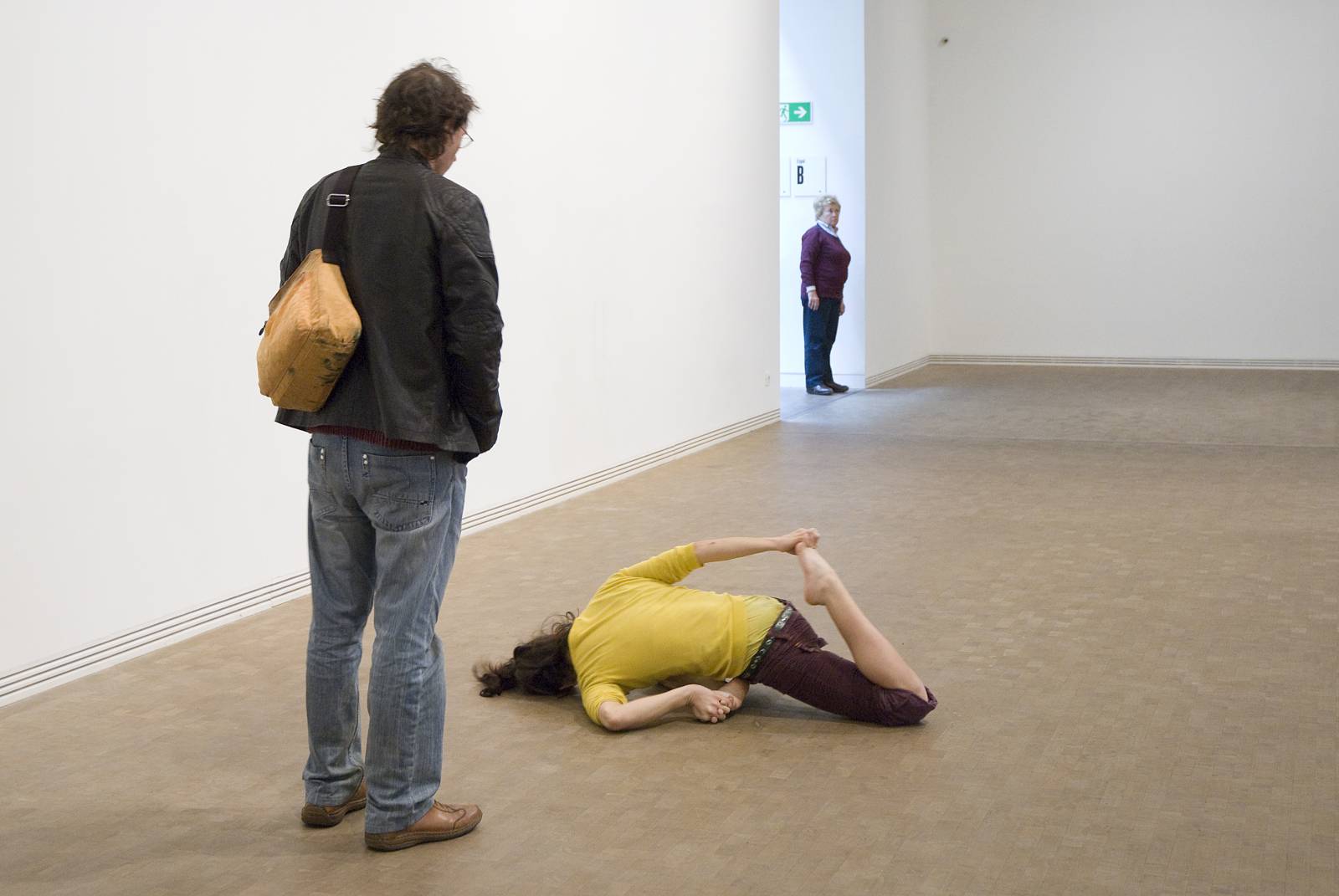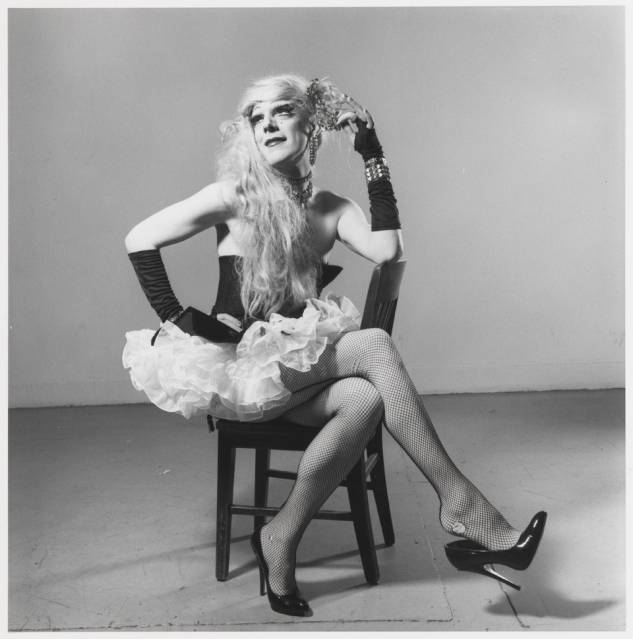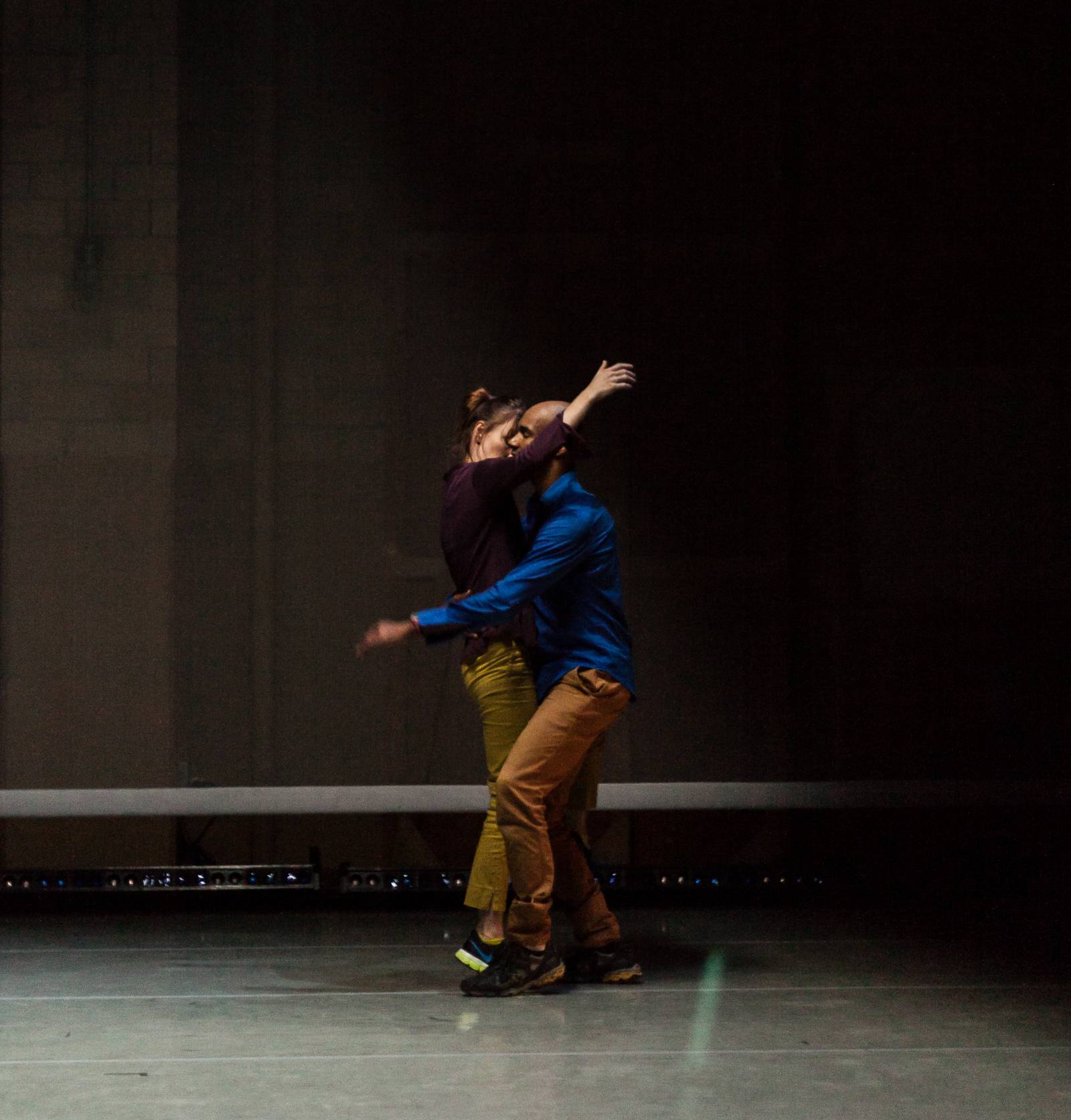Ain Gordon
Ain Gordon, a playwright, director, and actor, is co-director of the multidisciplinary platform Pick Up Performance Co(s) with his father, David Gordon, and was visiting artist at The Pew Center for Arts & Heritage in 2014–15.
Narrative is a dauntingly broad term. I both admire and feel confined by (what I perceive to be) its disciplinary engine. I relish people (“character”) more than story (“narrative.”) This stems from my personal allergy to streamlining life’s chaos into the traceable sequence that traditional narrative demands. (Theater does exist that offers that sequence while exploding it—that’s my pantheon.) As soon as I see a plot development looming, I pull back, where others may settle into the reassurance of that inevitability. (Notice that narrative’s cavernous expanse now has me include discussions of “story” and “plot.”)
Personally, I find narrative by accident. I begin work by purposefully untethering myself, shuffling the streets, browsing life. The first to arrive is never plot. I rarely experience that necessary beginning or end but rather a constant modulating hum chaptered by emotion. When I’m lucky, the force of that emotion accumulates into theme. Then character. Then I scramble for a container, a situation to tilt character and theme into action. Somewhere in there, I may (not always) ask myself what kind of narrative I am trafficking in. I often land in a cumulative narrative rather than a progressing one. Rather than a plot that develops to an end, I deploy a series of events that accumulate to pose an emotional question that may or may not be answered in performance. I have heard some people call this “writing to theme or mood” rather than to action. Sometimes those comments privilege action (or conflict) as a necessity in live theater, whereas I am attracted to burgeoning thought and the thinker’s process of self-interrogation as theatrical action. Sometimes, in defending these moments, I discuss the narrative implications of something onstage. By this I mean that some exchange or image provokes associative meaning without offering a naturalistic container or carrying it through a traditional narrative arc (oops, now we have naturalistic in this sea of terminology). When I am lucky, these moments gather to a resonance that offers a culminating but not necessarily concluding narrative moment.
By the way, I think everything everywhere has narrative implications. As soon as one female or male enters an empty stage, we have humanity, gender, solitude, emptiness, and the fiction of these private moments in the reality of a public performance. That’s a whole lot of narrative plus references to real life (which may become onstage “naturalism”) and a theatrical image, but it’s not a “story,” which is what many people mean when they say “narrative.”
Look at plays by Eugène Ionesco, Thornton Wilder, Richard Foreman, Harold Pinter, Bertolt Brecht, or any Samuel Beckett (especially the stage directions), or Franz Xaver Kroetz’s Request Concert (all stage directions, no dialogue). Try Tony Kushner’s Angels in America or his one-act Laura Bush play, Only We Who Guard the Mystery Shall Be Unhappy, or Roberto Athayde’s Miss Margarida’s Way. Look at the films Synecdoche, New York; Sunset Boulevard; or Erich von Stroheim’s Greed (the five-hour version if you can find it). Or just someone standing on a street corner.
For Further Reference
Eugène Ionesco, Jack, or the Submission, 1950 (premiered 1955).
Thornton Wilder, The Long Christmas Dinner, 1931.
Richard Foreman, Rhoda in Potatoland (Her Fall-Starts), 1975.
Harold Pinter, The Homecoming, 1964 (premiered 1965).
Bertolt Brecht, Kurt Weill, and Elisabeth Hauptmann, Happy End, 1929.
Samuel Beckett, Eh Joe, 1965, written for television (broadcast 1966).
Franz Xaver Kroetz, Wunschkonzert (Request Concert), premiered 1973. Seventy minutes, one character, no dialogue.
Tony Kushner, Angels in America: A Gay Fantasia on National Themes, 1993.
Tony Kushner, Only We Who Guard the Mystery Shall Be Unhappy, 2004.
Roberto Athayde, Miss Margarida’s Way, 1977.
Charlie Kaufman, Synecdoche, New York (2008).
Billy Wilder, Sunset Boulevard (1950).
Erich von Stroheim, Greed (1924).
